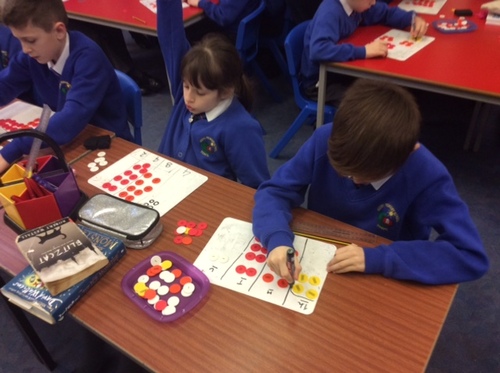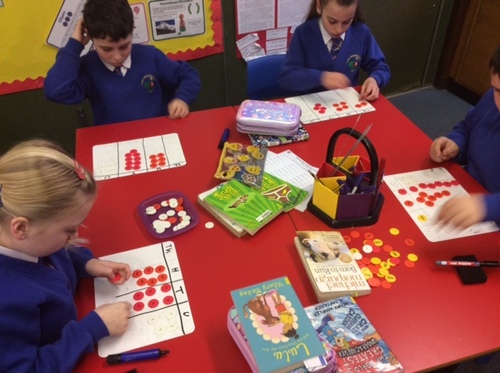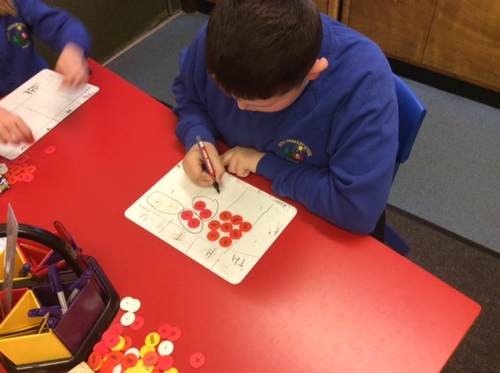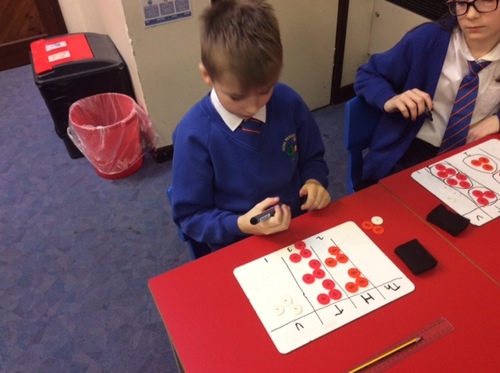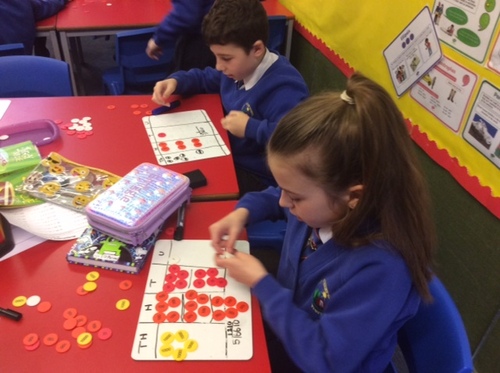We have loads of fun today. This morning we were climbing in the sunshine which was very tiring but great fun & lots of us overcame our fears and made it higher than we thought possible. Enguard - as we worked on our fencing skills!
This afternoon we have been loving the sailing centre at Portland as we got competitive altogether on the water in the dragon boats. Tonight we are looking forward to our camp fire.





All the children slept well after an exciting first day and night at PGL and are off to breakfast.
Today's activities include climbing, fencing and dragon boating and we have woken up to beautiful sunshine and a view across the bay.





Today we were lucky to have poet A.F Harold visit Huish. Ashley (as we were asked to call him) came to school to perform some of his most famous poems and to inspire us to begin writing our own. He shared with us some silly poems, some strange poems, some poems that rhymed and some that didn’t. Having performed some of his poems ourselves in assembly, it was fascinating to see him read with such expression and energy.
After reading some poems, Ashley talked to us about how to start writing poems, and how ideas can build. We had a go at some tasks where we thought creatively and combined some of our ideas. Soon, we will be writing poems for the Somerset Literacy Network competition, so will be putting his wise advice into practice.





Today, in PSHE, we shared skills! We have a very talented year group and this afternoon we taught our friends some new skills. Not only did this allow us to celebrate our diverse range of talents, but it continued our learning about how skills are developed. We had to carefully consider how we could help others to succeed in something they haven’t tried before. Many groups could be seen giving instructions, showing demonstrations and praising their peer when they did well.
Some of the skills on display included:
-Speaking foreign languages
-Playing chess
-Specific aspects of a sport
-Roller blading
-Cooking
-Playing a musical instrument
-Creating abstract art
How did your partner help you to learn?
Bella – they did it step by step
Harry – they demonstrated it first
Otis – Finlay communicated well
How did you know if you were doing well?
Autumn – they complimented me, “that’s really good!”
Finlay – Otis gave me feedback about the moves I was making in chess
What did you find challenging?
Ezra – the teachers sometimes had to repeat their instructions.
T – our teachers had to slow down their instructions so that we could understand.





This week was Art Week! We have been studying African Art and an artist called Gakonga. We studied Gakonga’s art work and created a mood board to express our thoughts and feelings about his work. Then we practised our paint colour blending of warm colours and made different shades by adding white or black.
We were really proud of our final pieces and we enjoyed learning about Africa and its artwork!





Today, Year 5 performed poems for Key Stage 2 in Assembly. Both classes have been practising poems by A.F Harold. In rehearsals, we analysed the poems to understand what they were about. We discovered that A.F.Harold writes in a quirky, funny style. Year 5 read with expression to make the poems entertaining, adding actions as well.





On Friday 18th October we had a visit from Tim from Wessex Water. He taught us about the safety of water, the water cycle, how water is extracted from rivers, problems and issues relating to water, how water gets dirty, unblocking pipes, what things are put in the toilet and found in the pipes and sewers and many other things!
Tim did a demonstration on how water gets dirty! He added body wash used for showering, bath liquid used to make our bath soapy, milk left from cereal, coffee left from Mrs Hodgson's cup and toothpaste from brushing our teeth! We even had to add toilet paper, pee and poo! This water ends up back at Wessex Water for them to clean so that it is safe for us to use again.
We had to test whether tissues, wet wipes or toilet paper should or shouldn’t be flushed down the toilet. We predicted whether they would break down and be flushable or if they would clog and block our drains. The tissue and the wet wipe did not disintegrate and would block the drains. The toilet paper started to disintegrate so can be flushed down the toilet.





In Geography we looked at the Year 5 pick and mix homework for our topic ‘Rivers’. We explored both classes and wrote down 3 facts that we found out from someone else's homework.
Thank you to all those who took the time to produce some fantastic homework! The children enjoyed sharing what they produced.





After months and months of hard work and practise, we finally performed the clarinet to our parents and carers! We played Twinkle Twinkle Little Star, Mrs Muddle, Laxton’s Pearmain and Uptown Funk and some of us performed a solo or as part of a small group. We were nervous but our nerves were overcome with our excitement and we put on an excellent show!





The children enjoyed lots of activities yesterday, including the high ropes, archery and fencing. The sun shone for us, the children were exhausted after such a busy day.





After a great night's sleep and a hearty breakfast the children have travelled to Portland for Dragon Boat racing and are looking forward for a fun filled afternoon back at Osmington!





The children arrived safely at PGL, but sadly the weather was very wet so there was no trip to the beach. The children have all settled in to their rooms, toured the site and are enjoyed activities indoors. Everyone is looking forward to the activities tomorrow, where hopefully the sun will put in an appearance.





Today is vocab day! We got to dress up as a tricky word and had to explain what our tricky word meant. In the morning, we joined with the rest of Year 5 and celebrated Vocab Day by finding four new words that we didn’t already know. We had to explain what the word meant, put it in a sentence and draw it.
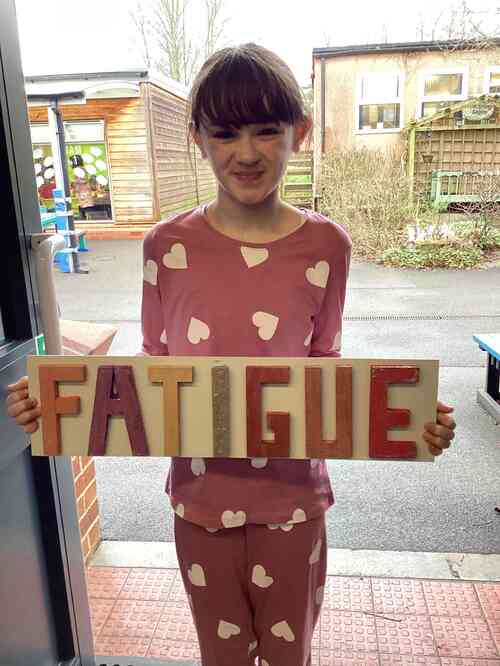
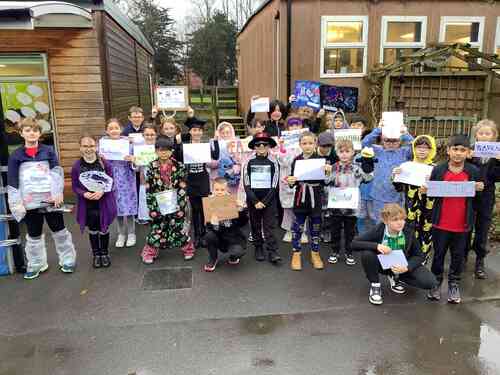
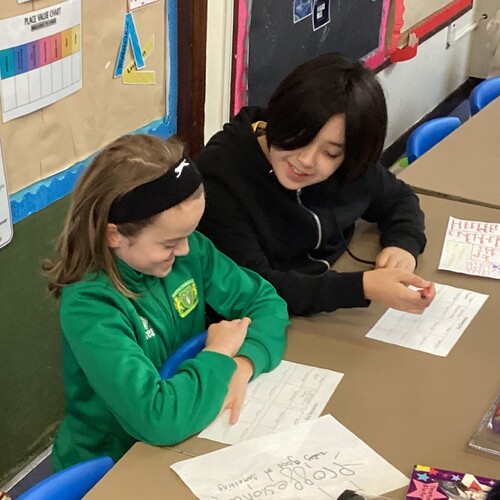
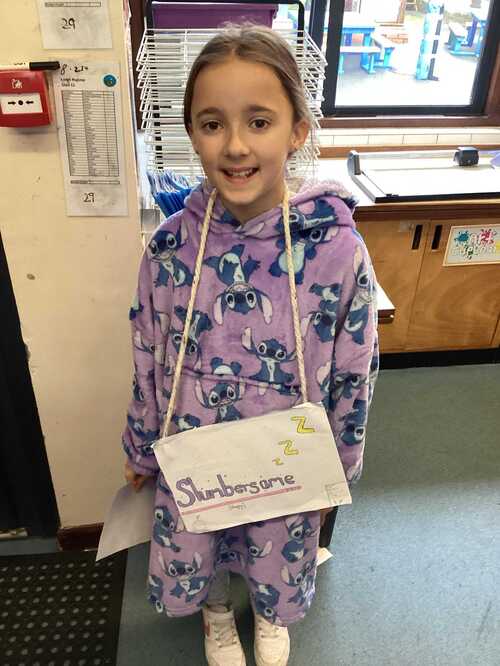
We studied a an African artist called Gakonga and practiced our painting skills to create our own pictures in his style. Some of these were displayed at our art exhibition while others are on display in the corridor for everyone to admire.
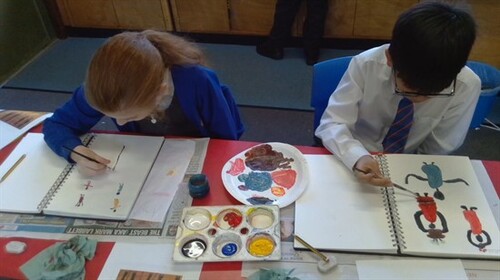
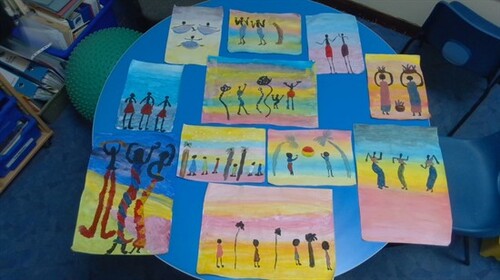
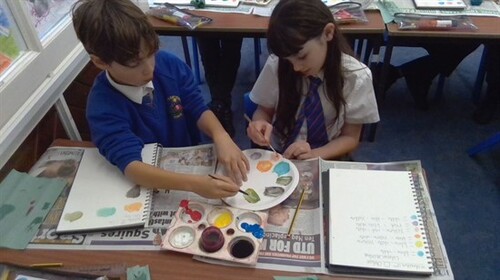
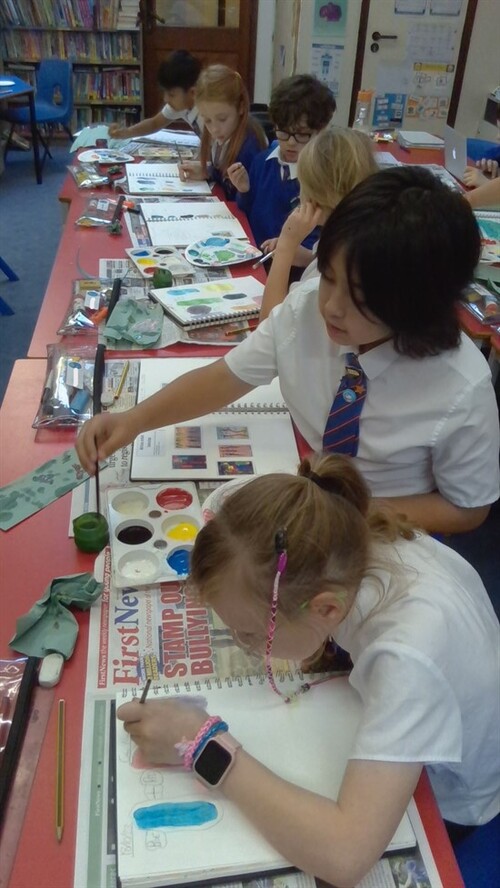
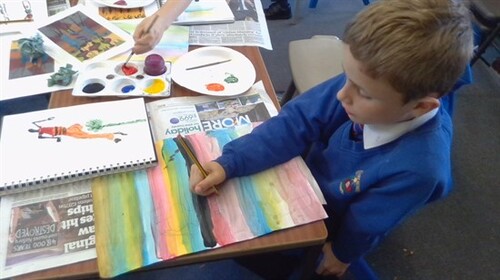
A fun session with a Keri Hill instructor as we showed off our dance moves.
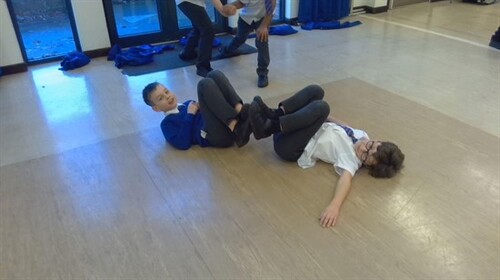
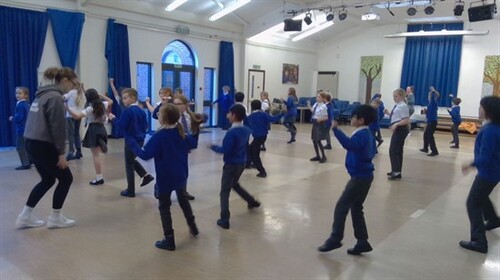
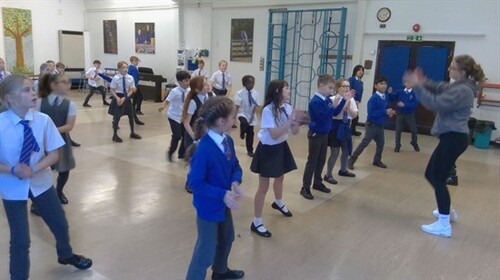
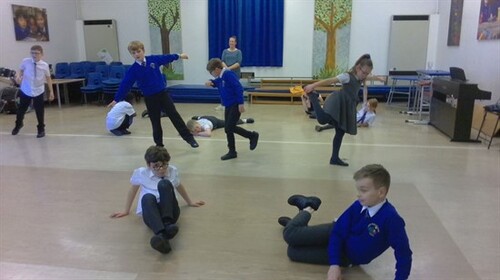
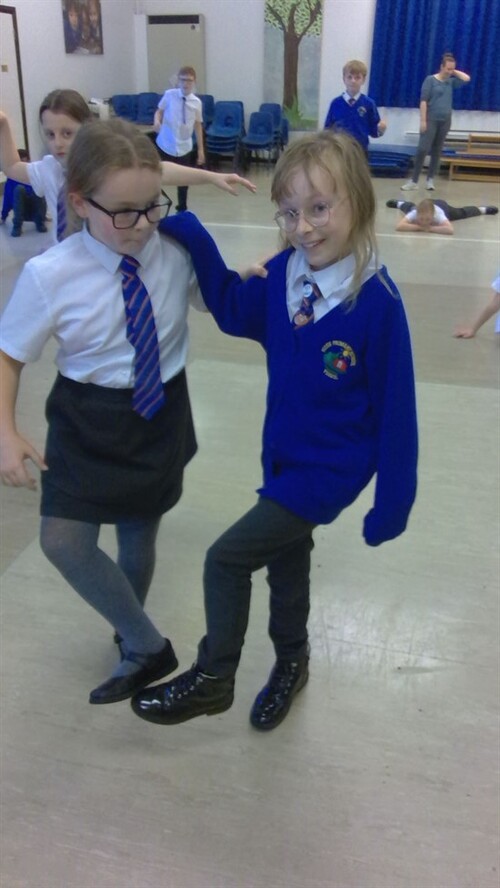
We have done lots of fun and exciting Science experiments in our materials topic. Here we are separating materials having created our own filtering system and looking at irreversible changes where we made Casein plastic and inflated a balloon with carbon dioxide.
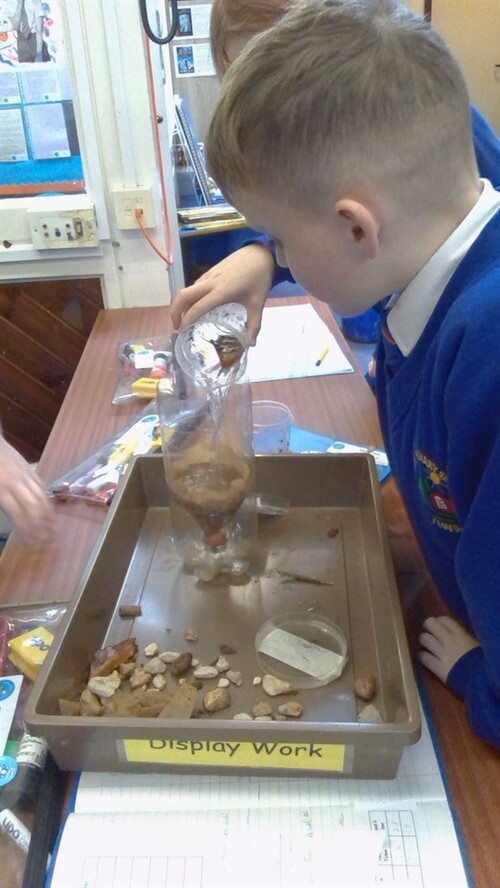
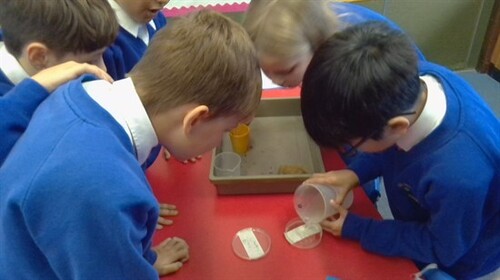
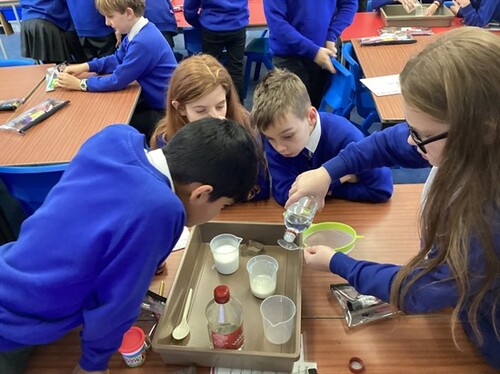
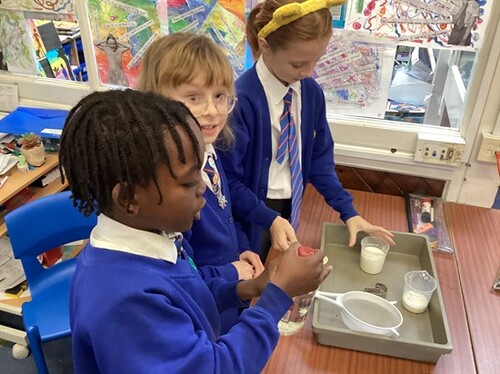
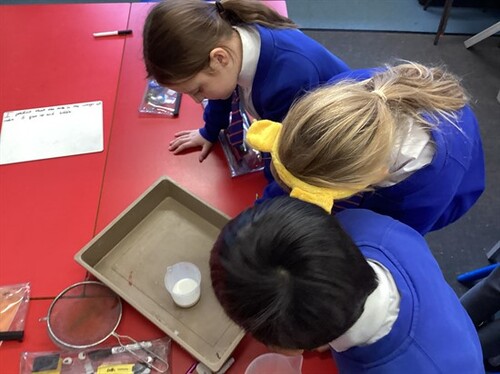
We had a fantastic day as we were joined by five Leonardo employees who led us in a series of STEM workshops where we created a rollercoaster and a boat that could float after weight was added. We evaluated and improved not only our scientific and DT skills but also our teamwork and communication.
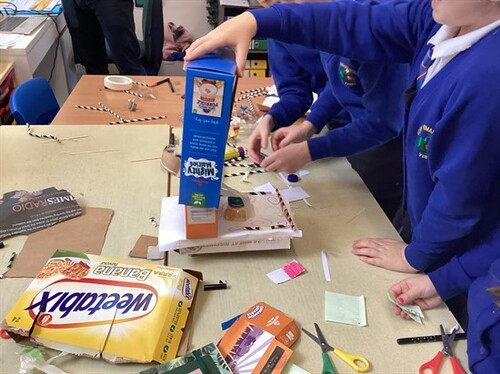
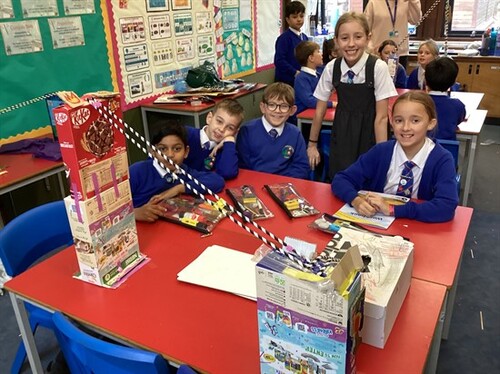
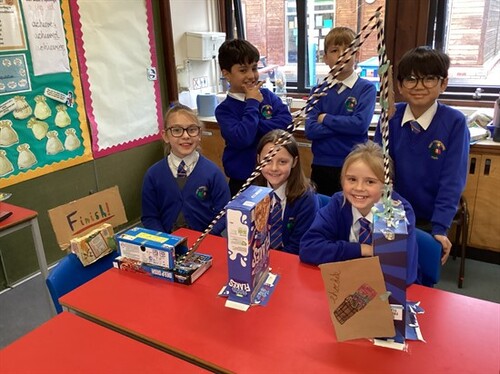
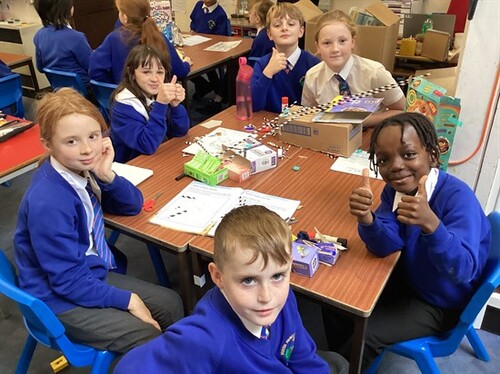
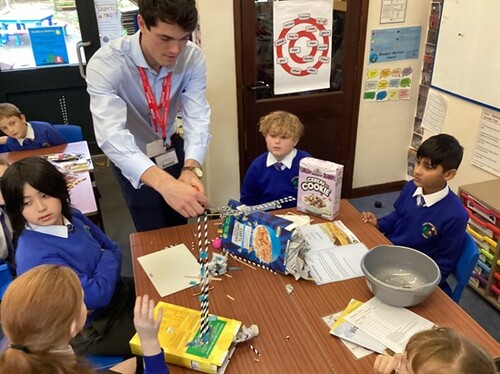
Take a look at our amazing homework that we shared across Class 11 and 12. We did a fantastic job and learnt lots of fascinating facts about South Africa. Well done and thank you for your hard work.
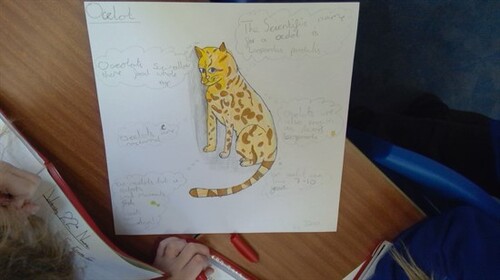
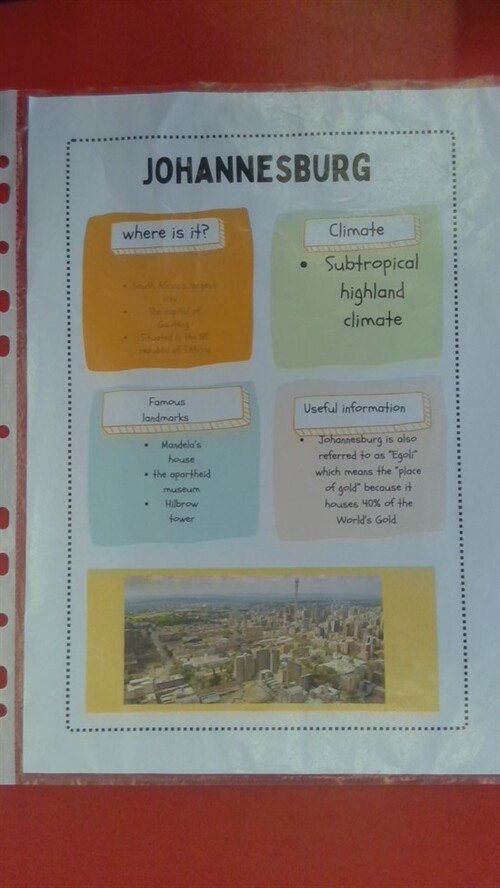
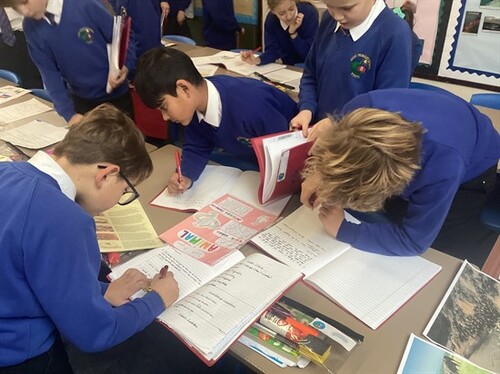
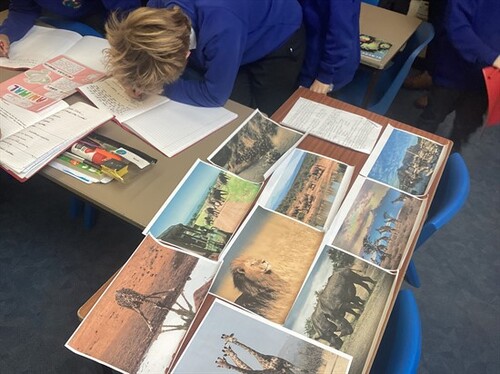
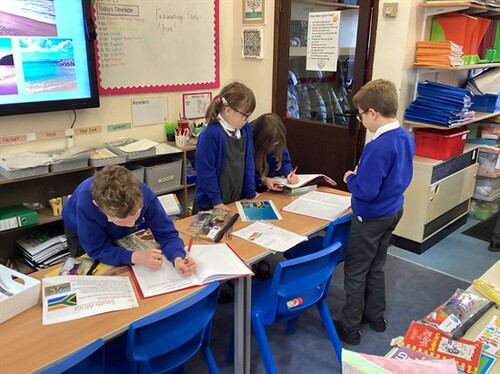
We are very lucky in Year 5 because we get to learn the clarinet for the entire year!
In our first lesson, we learnt about each part of the clarinet, how to make them, how to clean them and, most importantly, how to play them! Most of us were able to make a sound without too many squeaks! We are now able to take home our clarinets to practice.
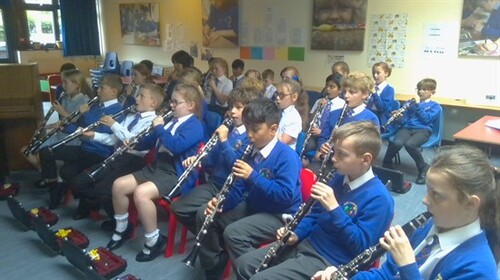
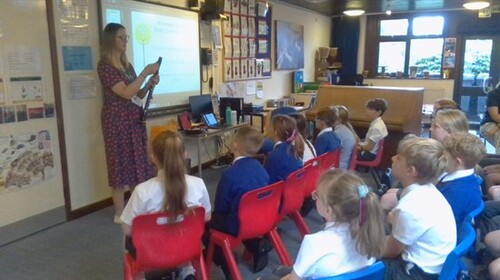
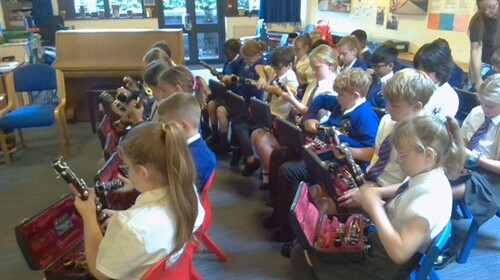
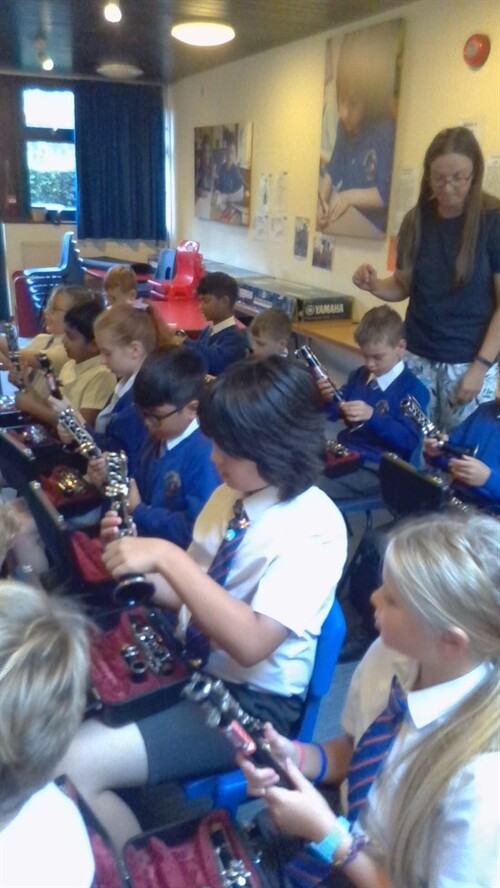
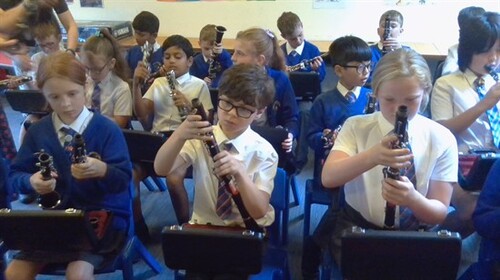
Across Year 5, we shared our brilliant Pick 'n' Mix homework pieces all about rivers. It was wonderful to see their hard work and new geography knowledge to support our rivers topic.
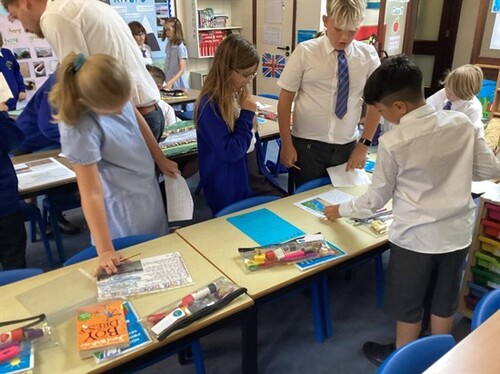
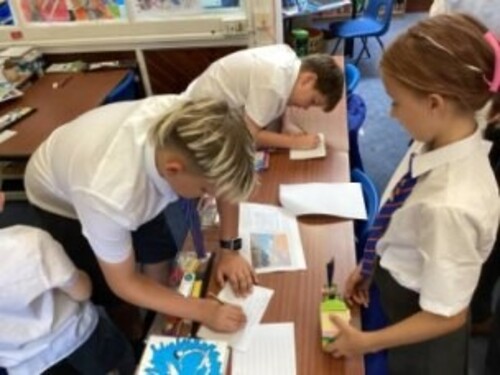
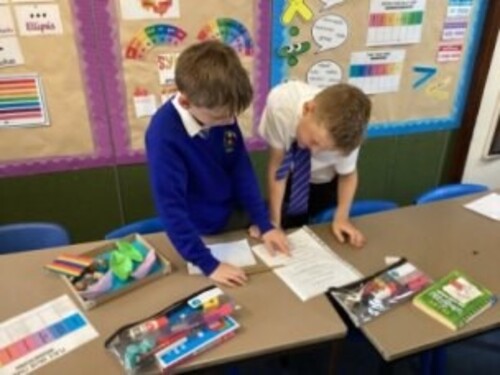
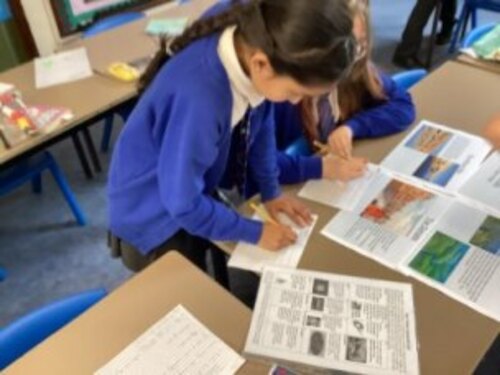
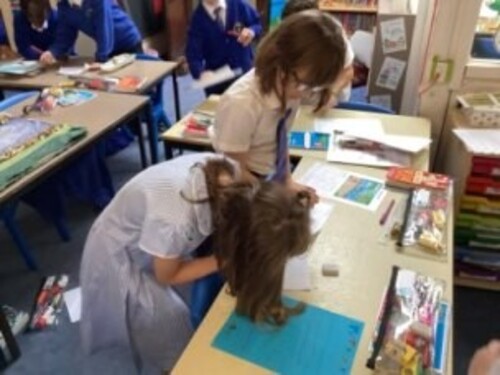
We were introduced to our new class text The Arrival. Firstly, we have been using our inference skills examining artefacts and the pictures to infer meaning. In addition, we have immersed ourselves in role play to capture the feelings of the characters. This aided some powerful writing tasks.
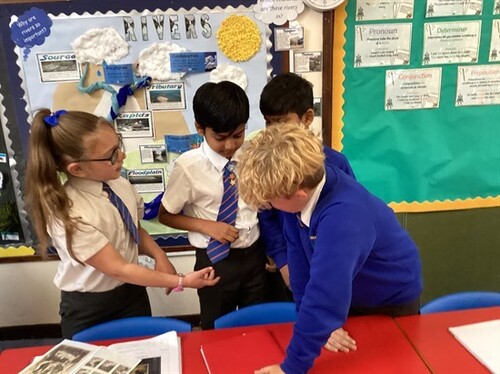
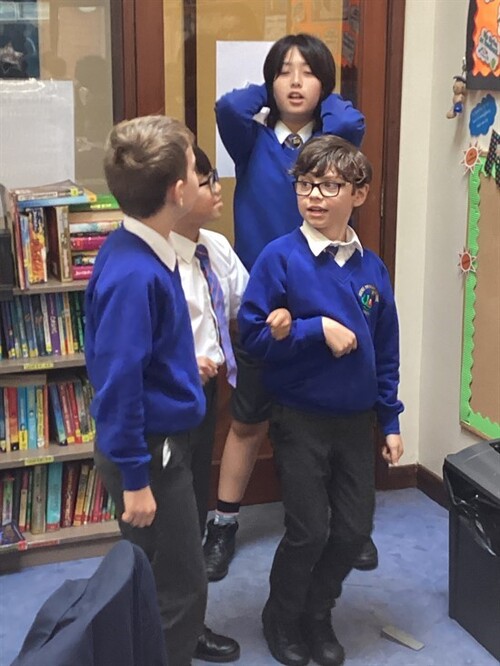
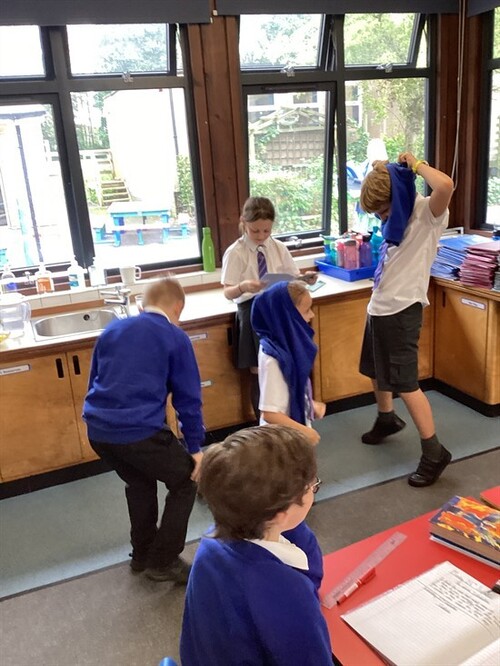
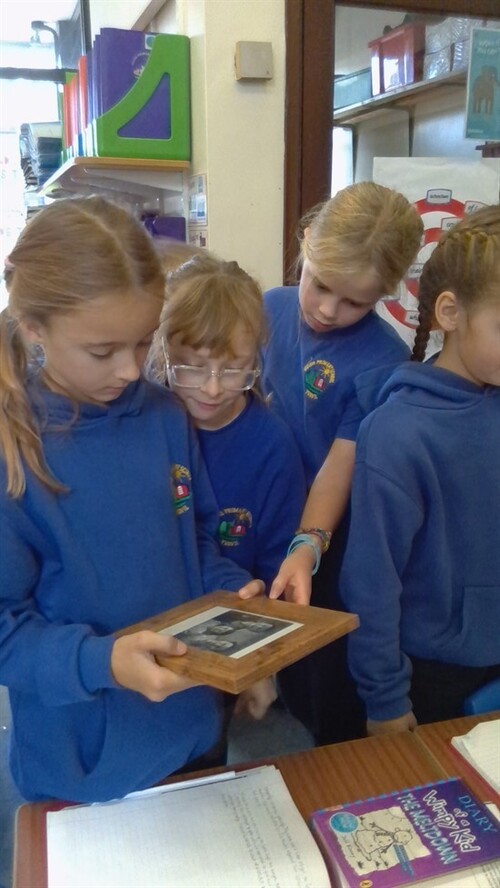
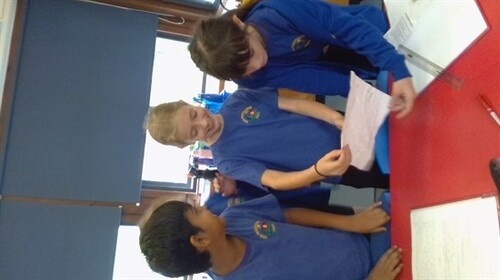
For our first week back, we studied abstract art and made our own abstract art pieces. We included sentences about ourselves so that our new teachers could get to know us more!
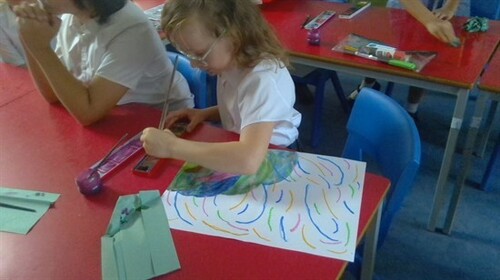
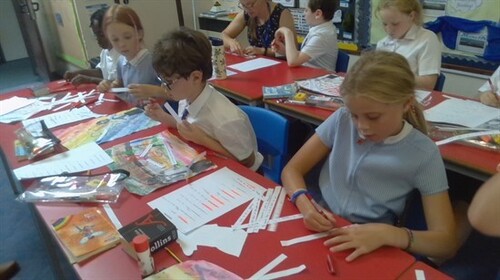
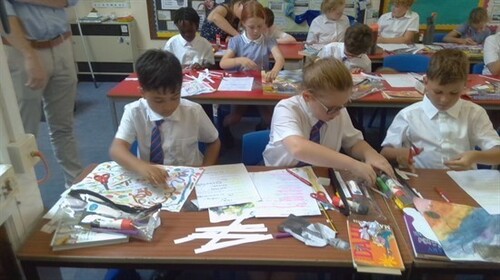
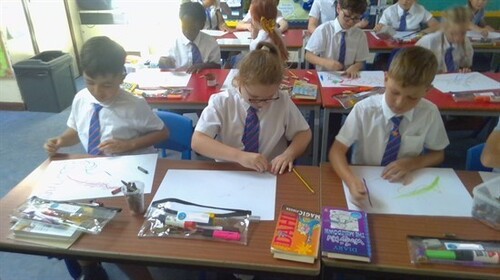
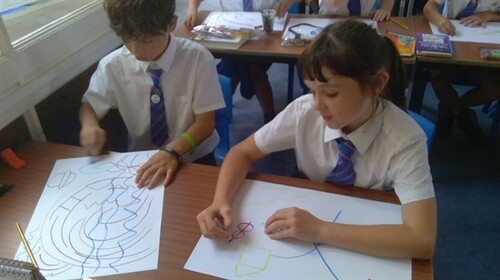
Over the last few weeks, we have been investigating materials and their properties. We sorted materials before carrying out tests on them. We used pipettes to test for permeability and absorbency; magnets to test for magnetism and electrical circuits to test for conductivity. Some of the results surprised us. We added these results to our mind maps. In the next lesson, we then thought about why specific objects were made of certain materials and how the properties made them suitable. We did a treasure hunt around the school looking at different objects.



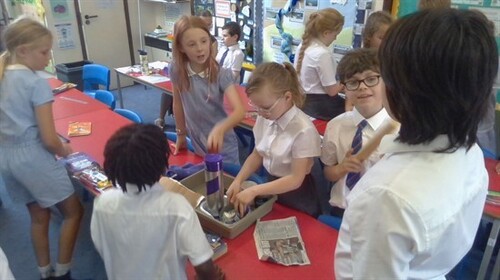
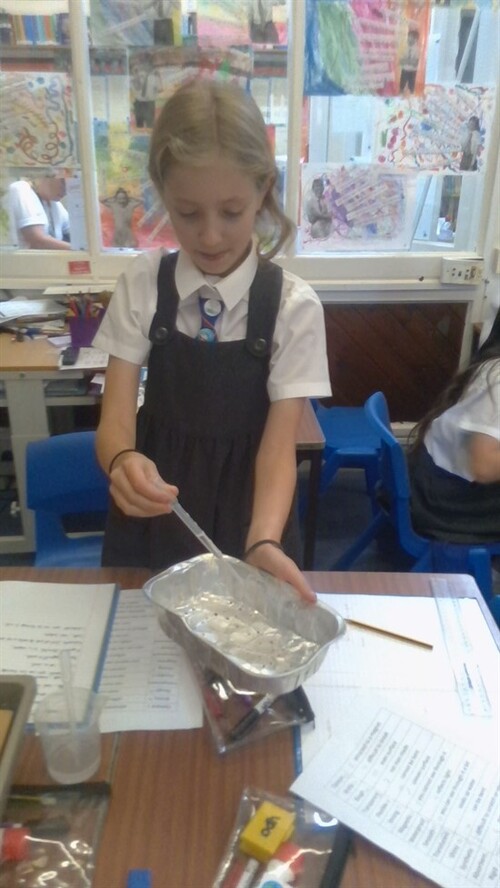
The children in Year 5 have been learning The Highwayman poem ready to perform in front of the school in an assembly. Auditions for the main roles were completed and the children worked on how to say each line using their knowledge of APE, using actions and small acting parts. They practicsed and worked hard to make the performance engaging and interesting and the final result is available in the film below.
The weather was much kinder to the children on Day Three and so year 5 were able to enjoy the high rope activities during the day. They also managed to enjoy some archery and finished with sporting activities. Below is a small selection(!) of the photographs taken!
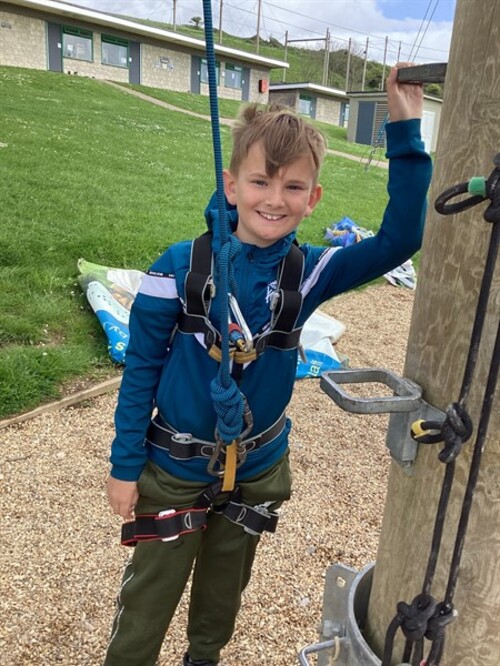
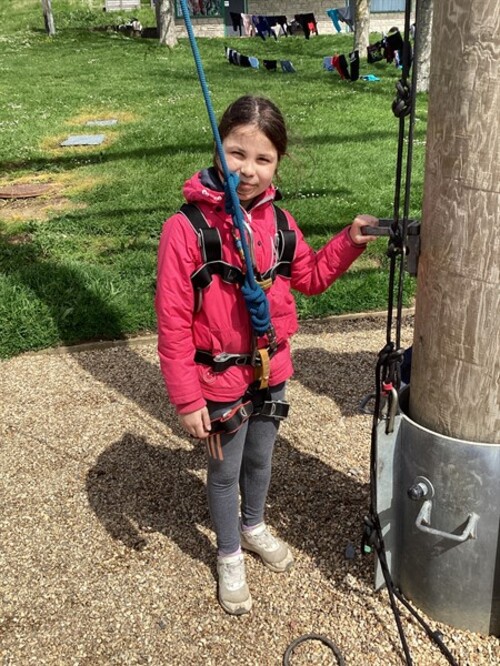
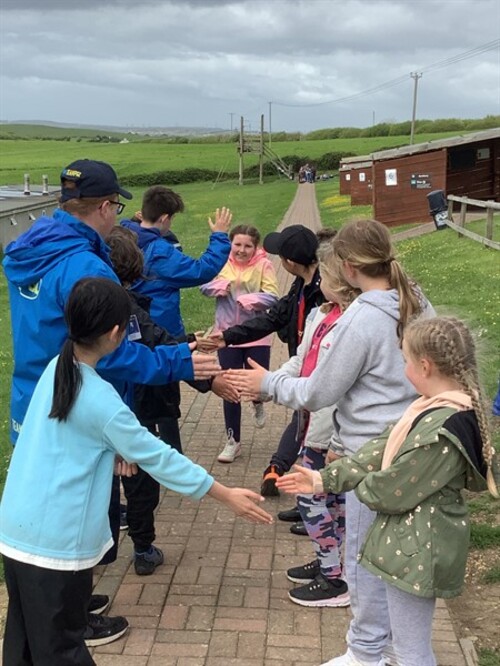
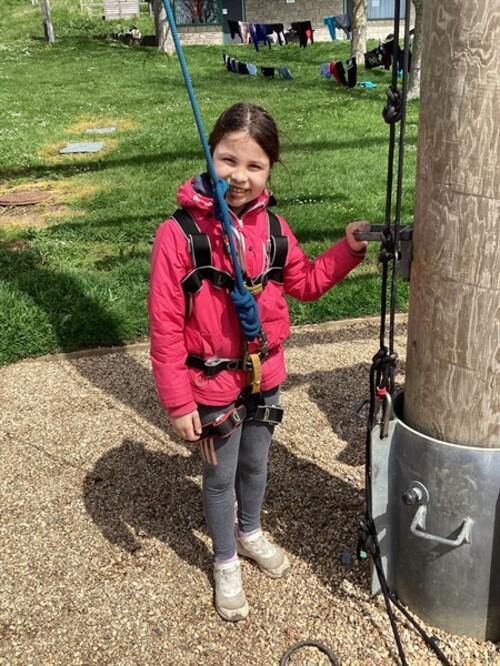
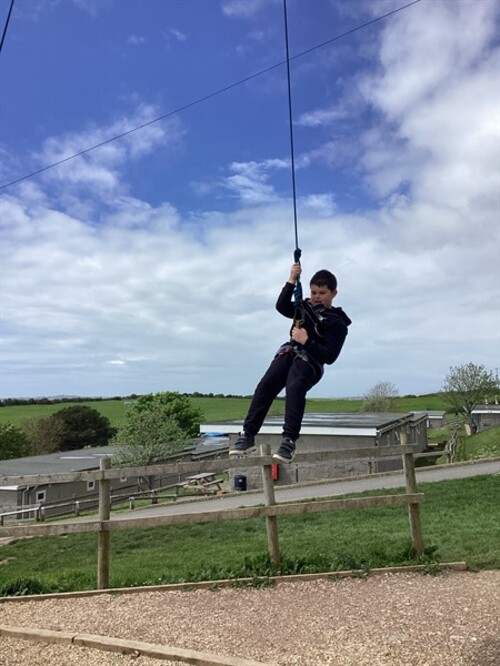
Year 5 have had a great couple of days and even saw the sun after a very rainy start to PGL. Day two (Tuesday) saw us take part in Dragon Boating wtith a 4 boat race and lots of fun games on the sea, a sensory trail completing obstacles while blindfolded and a beach walk where we made sea monsters and explored the shoreline. All the children are enjoying the food and had a fun first night sleepover with their friends.
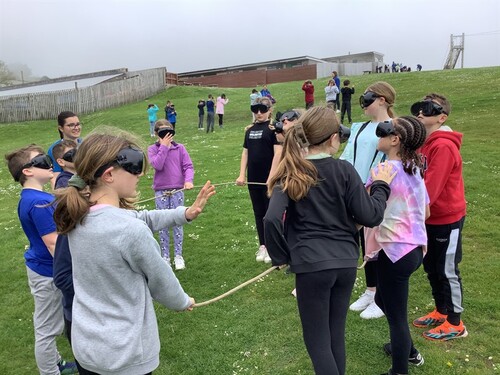
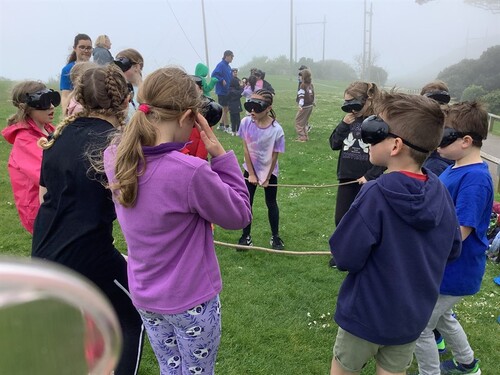
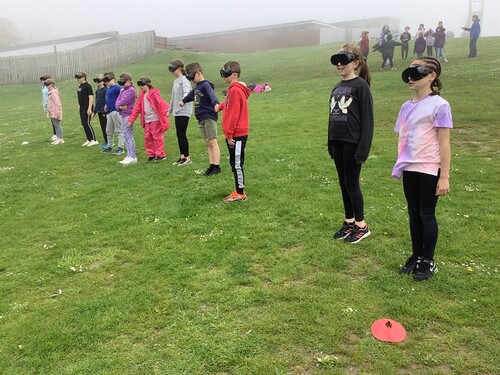

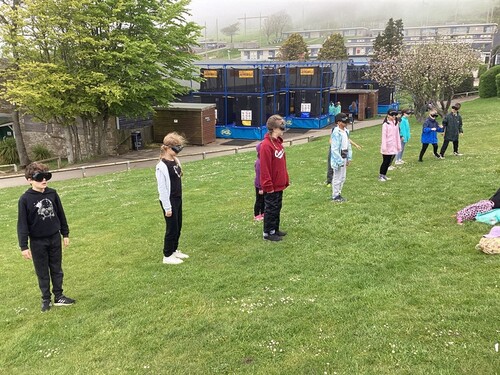
For Year 5’s International Day, we were able to start our Geography topic as it was all about India. Karthik shared some traditional clothes and information from his family from India. We researched where India was in the world using atlases, before creating our own Indian inspired henna hands.
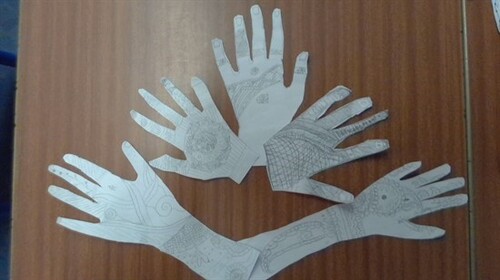
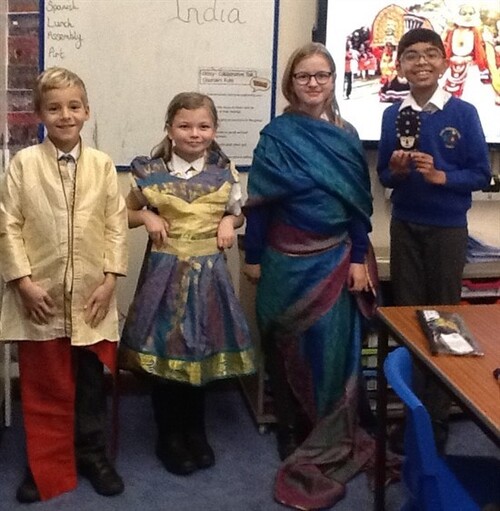
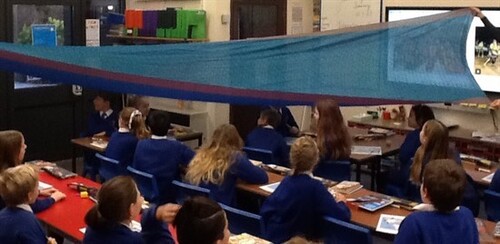
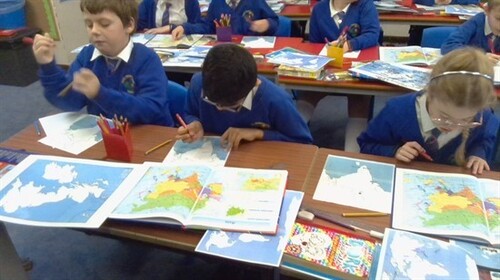
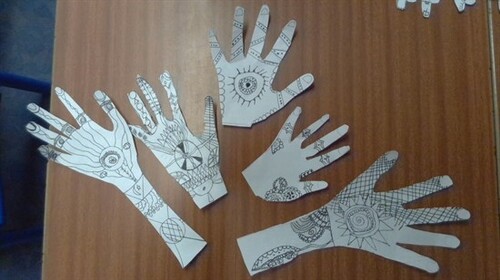
Year 5 have been out enjoying the snow!
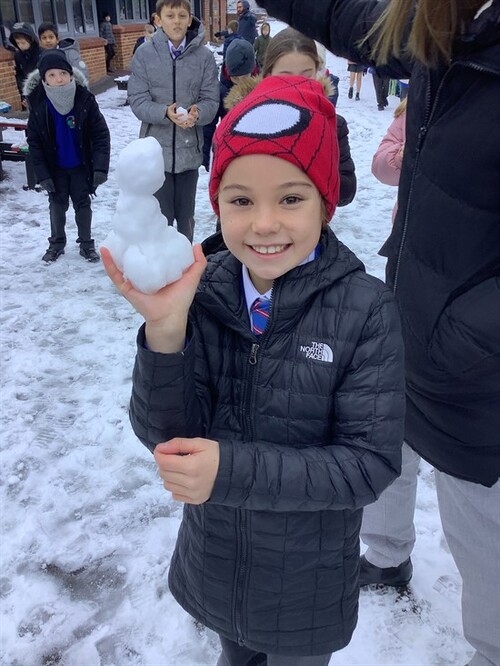
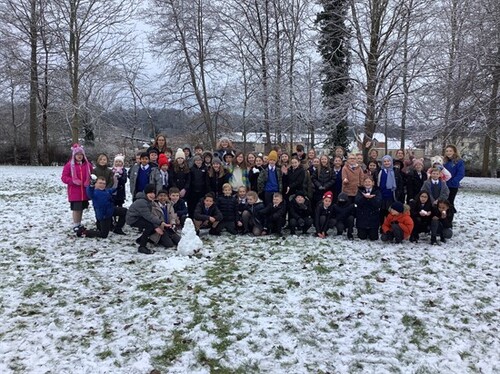
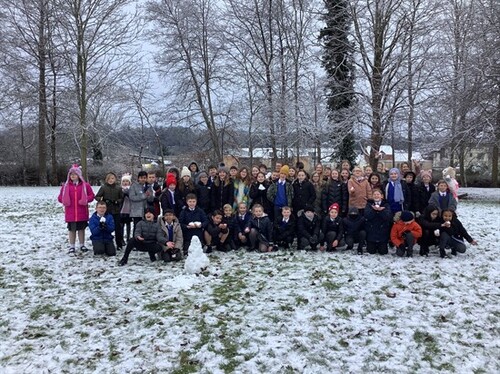
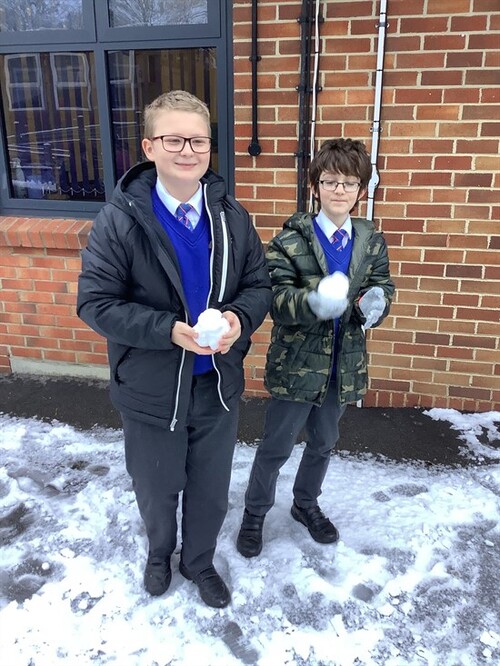
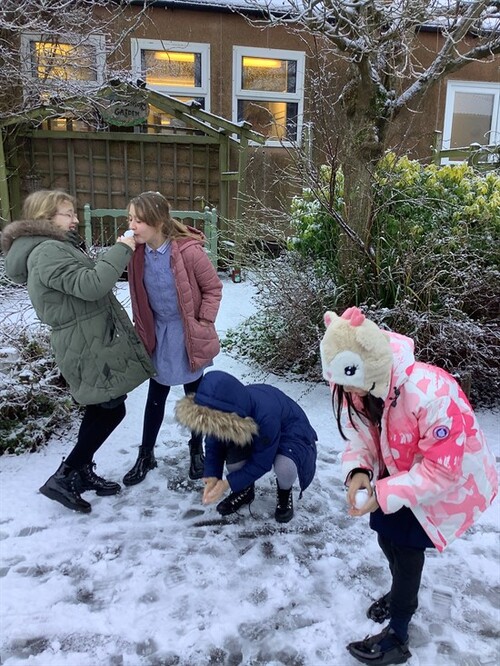
Year 5 enjoyed their christmas dinner!
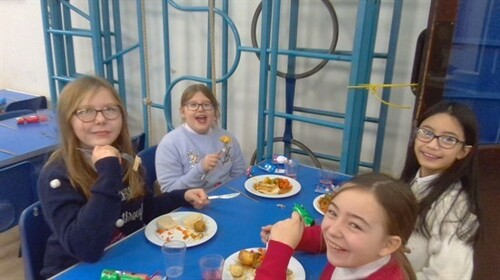
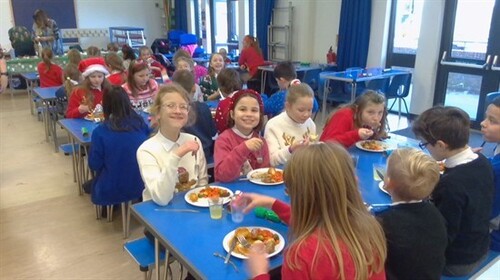
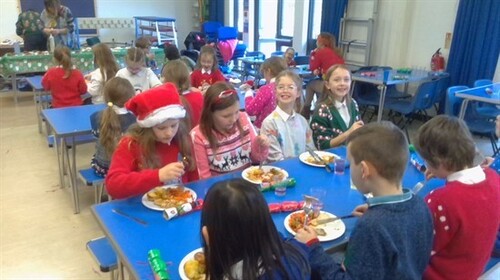
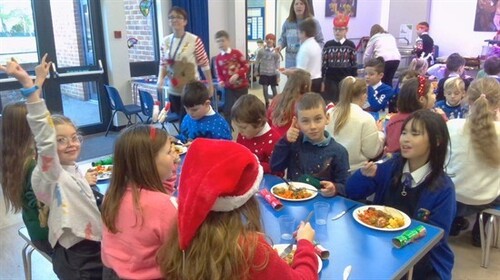
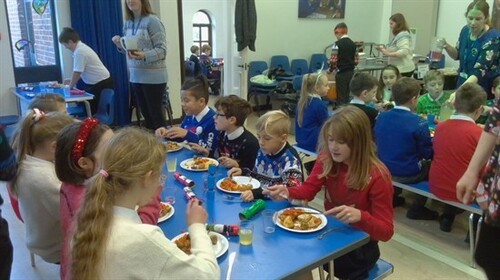
In our maths group, we have been investigating square number and finding all the square numbers up to 12 x 12. We made these practically and drew them in our books, as well as showing them on a multiplication grid. We also learnt the symbol for square numbers.
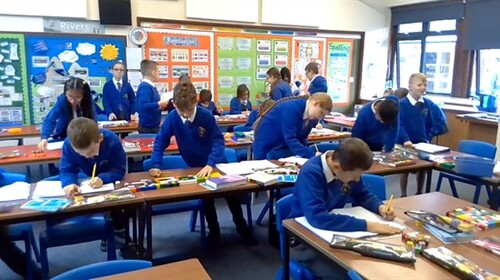
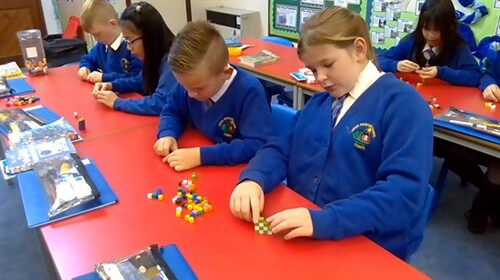
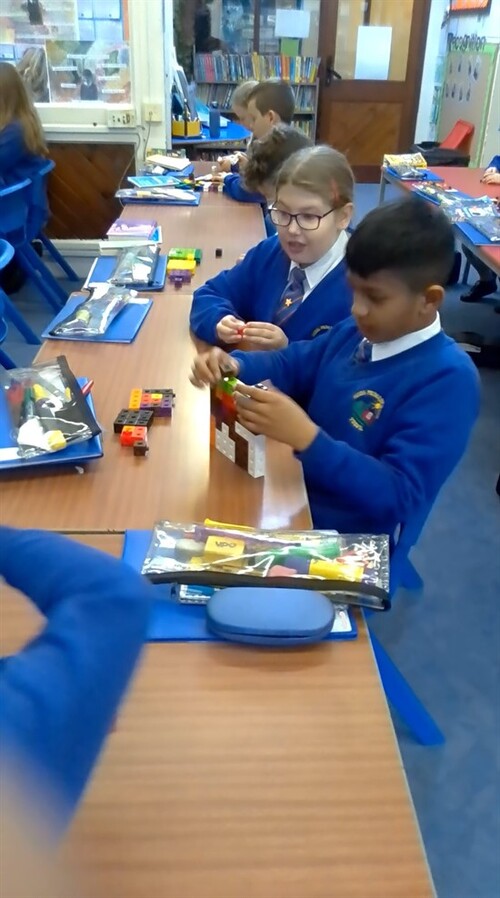
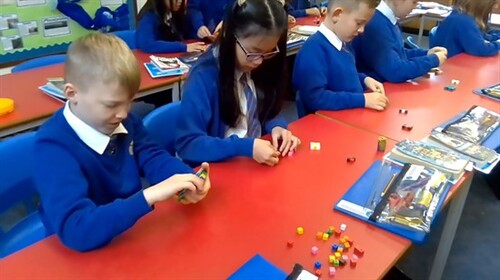

Today we got to share our Pick n’ Mix homework with Class 11. Our homework was all about South Africa to aid our new topic in English. We learnt about animals, famous people, African landmarks and many other topics!
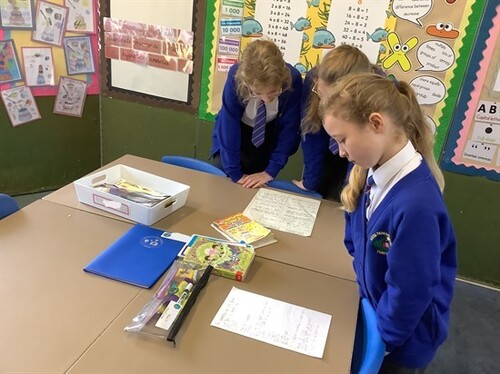
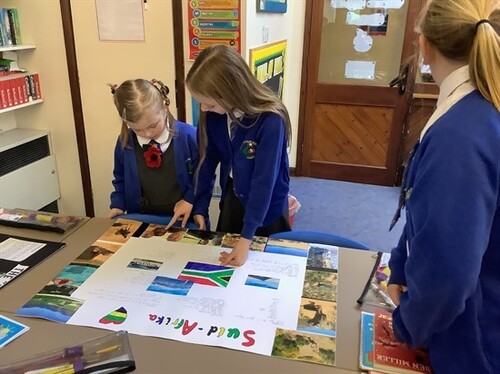
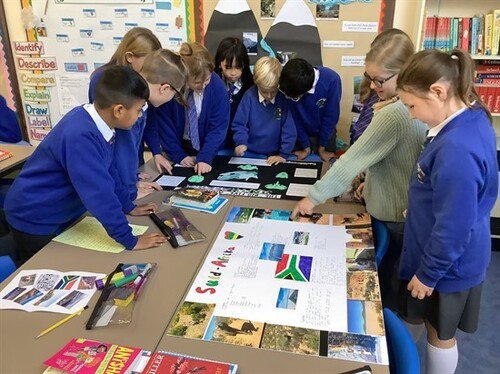
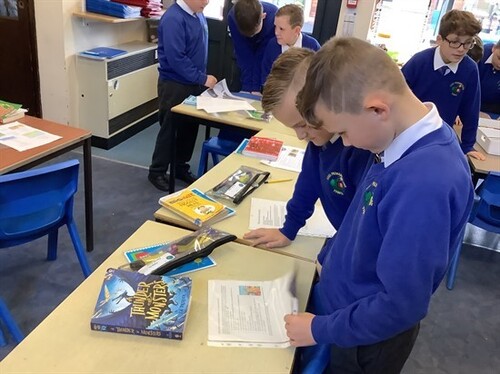
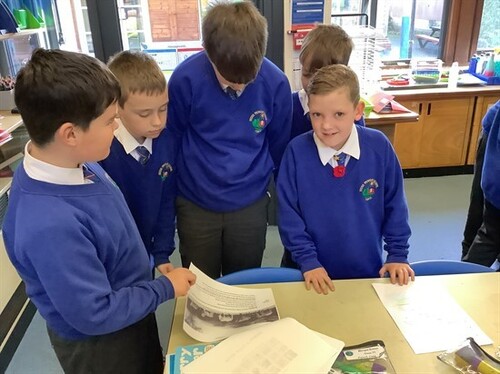
Without tasting, how could you find out which water sample would be suitable to drink?
We were then set the challenge of imagining we were on a desert island and needed to find a source of drinking water, but both were dirty. We had to ensure that neither of them contained salty water.
We made filters using filter paper, sand, gravel and stones before passing each sample through it. Frankie explained that each layer would remove smaller particles and debris before passing through the filter paper which was really fine. We left a small sample of each filtered water in the windowsill to evaporate to check for salt. We then left it for several days.





This week we have been looking at African art with a focus on an artist called Gakonga. We thought about how his pictures made us feel and the techniques he used before colouring mixing. We created backgrounds and then experimented with brush strokes to paint on people.
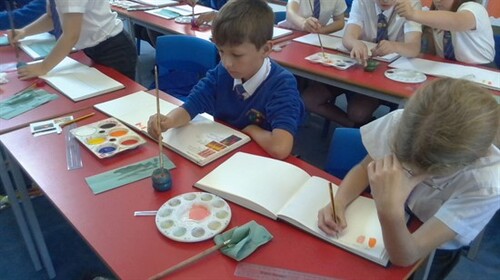




The start of our musical journey…
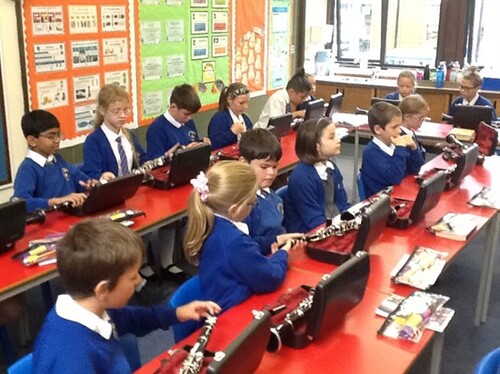
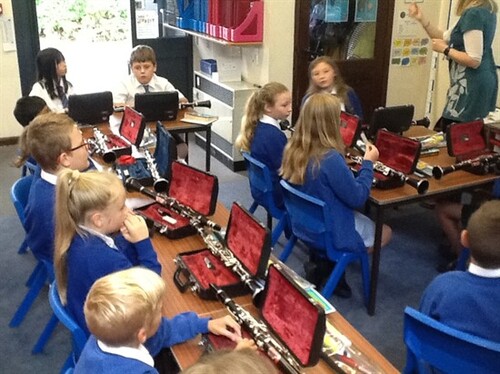
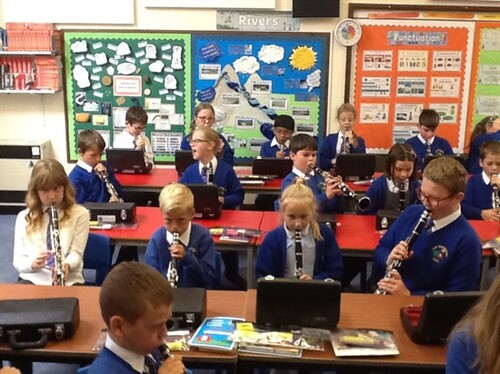
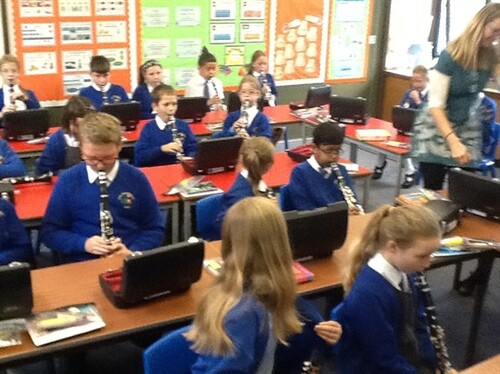
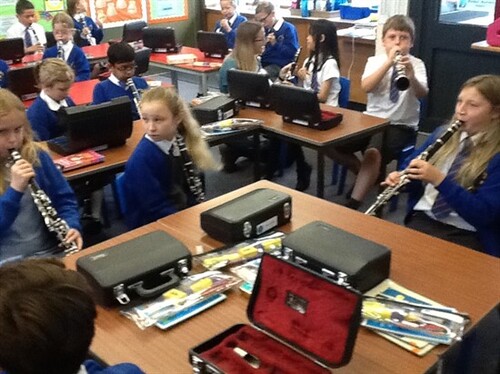
In Geography today, we looked at the Year 5 pick and mix homework for our topic ‘Rivers’. We explored both classes and wrote down 3 facts that we found out from someone’s homework.
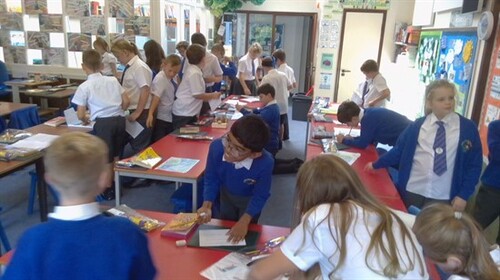
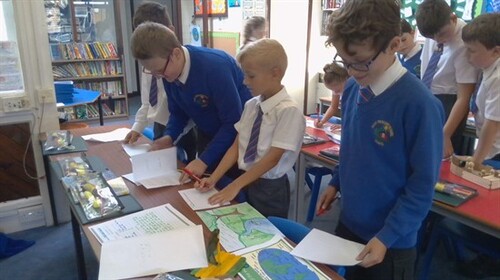
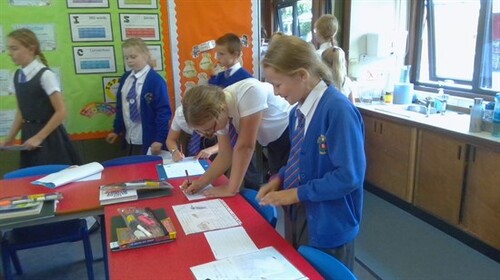
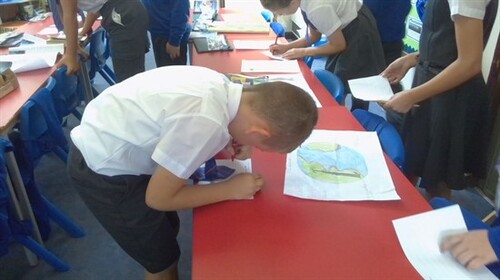
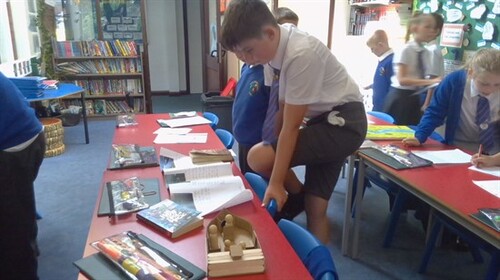
In small groups, we were given 6 pieces of newspaper and a strip of masking tape. With only these materials we had to create the tallest tower which was capable of standing independently. We discovered that this was not as easy as it appeared and there were lots of different designs, but they were very wobbly and many were unable to stand. The task allowed us to analyse our collaboration and teamwork skills. Afterwards, we discussed the skills that we used in our groups and shared these before awarding ‘The Tallest Tower’ winners and ‘The Top Collaborators’. Mrs Hillier-Nickels was really impressed with all our teamwork skills. “What fantastic collaboration, compromise and communication in Class 12.”
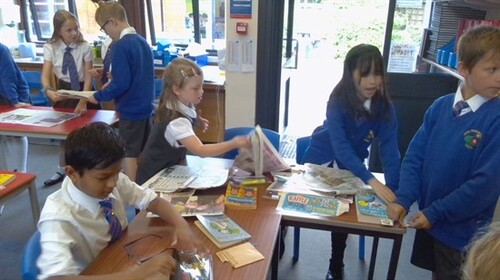
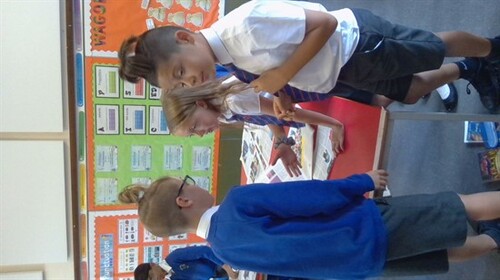
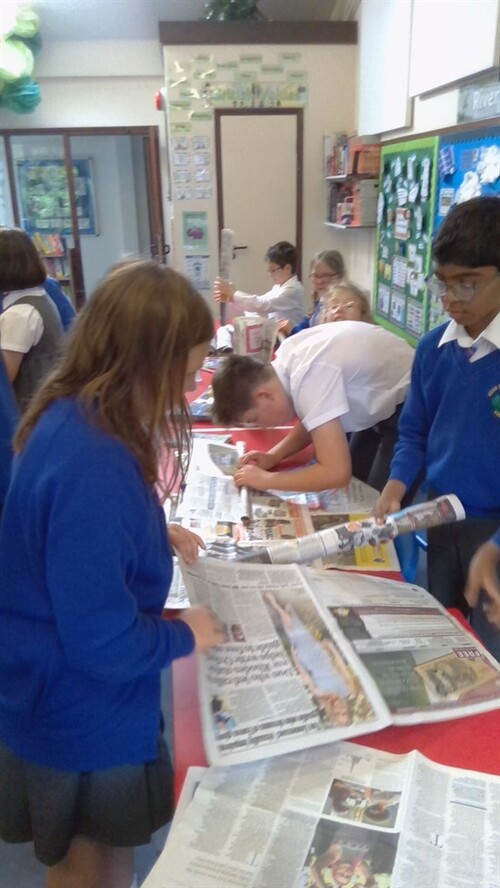
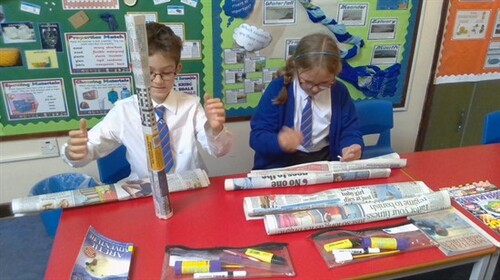
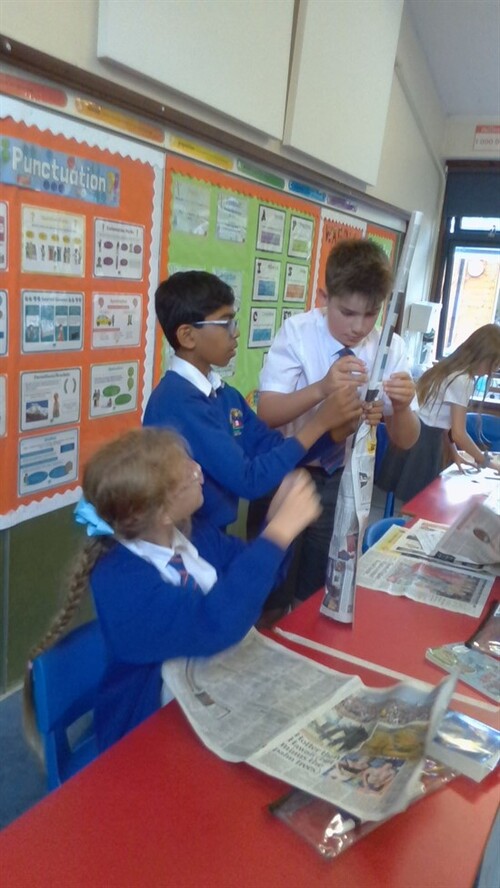
Today we had an exciting Livestream lesson from the Small Peice Trust in conjunction with Leonardo which linked with our Science Topic on Forces. The DT project involved us becoming Engineers for the morning.
Firstly, we were given some information about gliders, then used this to design our own glider. We worked in pairs to produce three designs and chose our favourite, justifying why we thought it would be the most successful.
Next, we built our gliders using only the resources we had been given. After we had created our prototype we tested them outside, before adjusting and tweaking our designs. Sometimes, we had to adjust the weight as it was too heavy at the front and nose-dived, at others we had to change some of our embellishments, wings or tails designs. Finally, we had a class test drive and watched each other’s gliders, before evaluating our designs.
We were very grateful to have two expert Engineers with us from Leonardo who helped and advised us throughout the morning. Many thanks Caleb and Sophie!
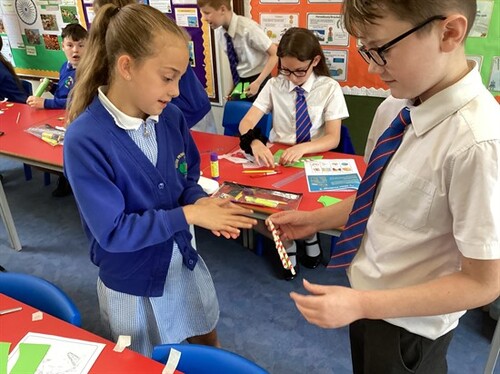
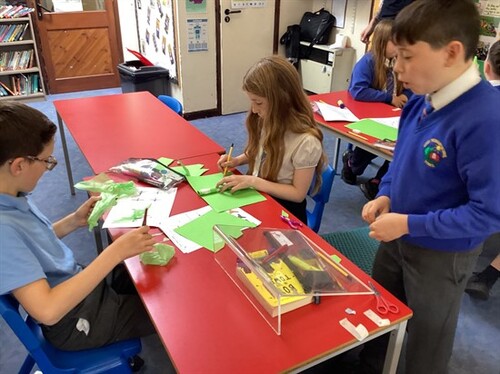
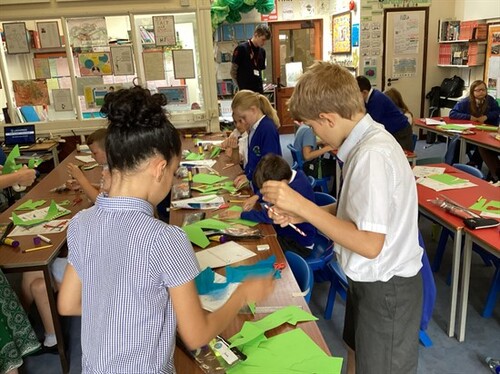
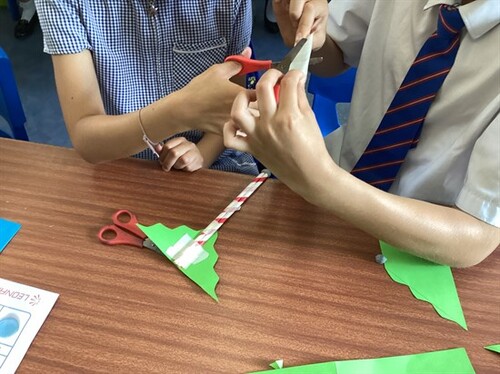
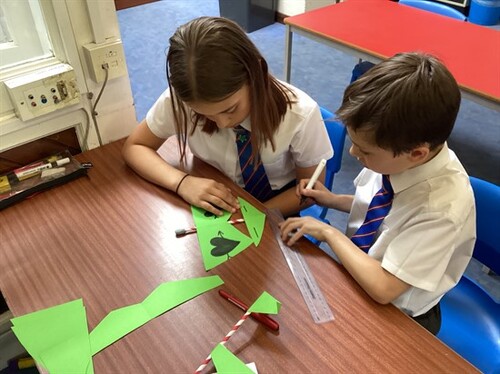
We celebrated the Queen’s Platinum Jubilee in school. Firstly, we read a book by Michael Morpurgo called 'There Once is A Queen' and discussed the Monarchy linking this to our Tudors topic and Queen Elizabeth I.
Having helped to put out lots of tables and chairs at lunchtime, we then joined the rest of the school on the playground. We sang the National Anthem and some other Jubilee songs, before watching the Year 2 Country Dancing followed by many of us in Year 5 dancing around the Maypole showing the dance we had been learning and practising before the Summer Fair.
Finally, we dodged the showers and managed to eat lots of delicious cakes altogether. It was a special afternoon and lovely to be able to celebrate with the whole school.
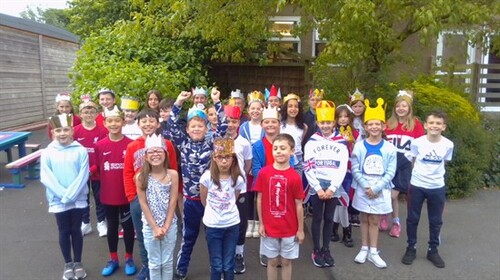
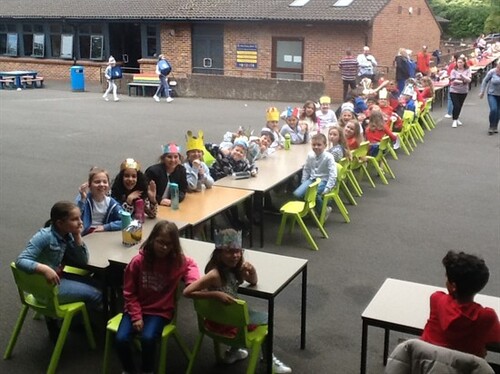
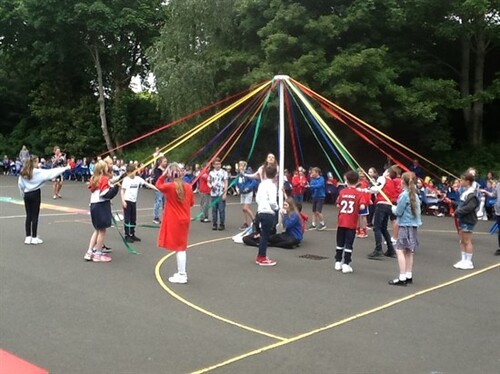
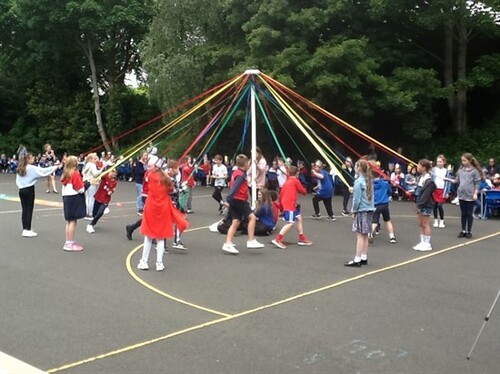
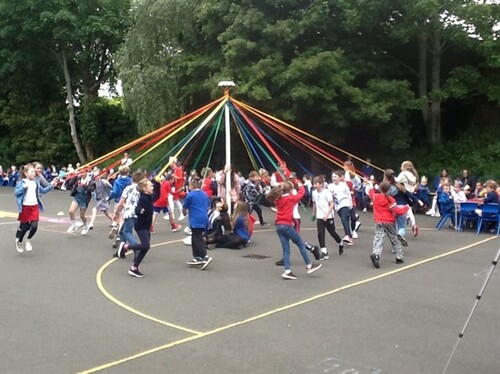
We had a brilliant week at PGL where everyone faced their fears in some form and had a fantastic time. It was lovely to see how everyone shone and you should be very proud of all you achieved. The photos are testament to this.
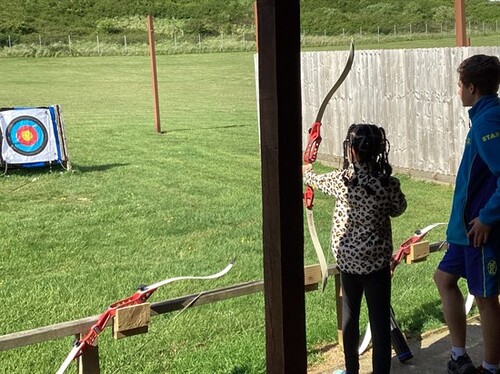
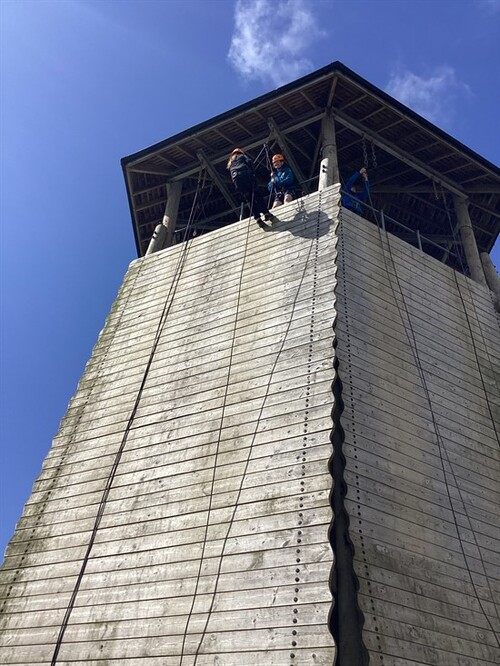

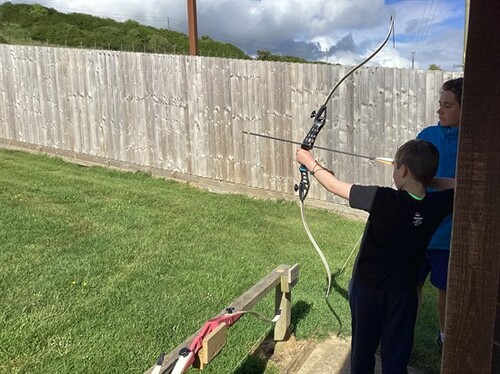

Everyone is having a great time! Here are a few photos from the first couple of days.

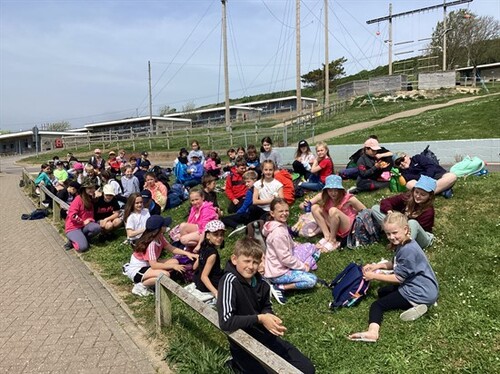
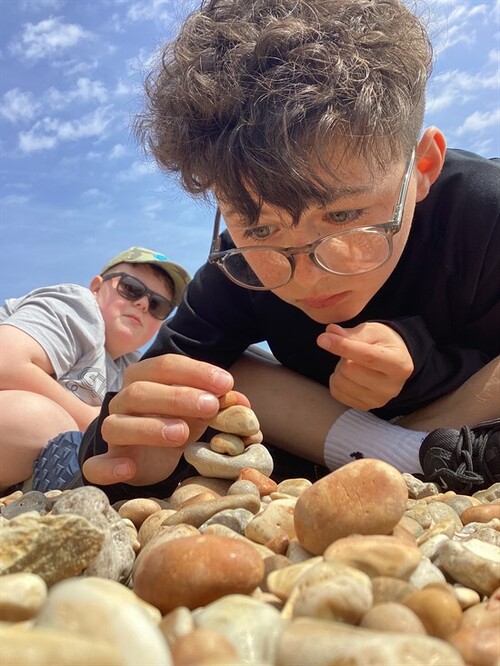
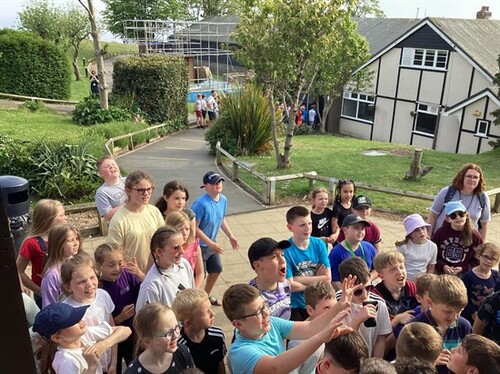
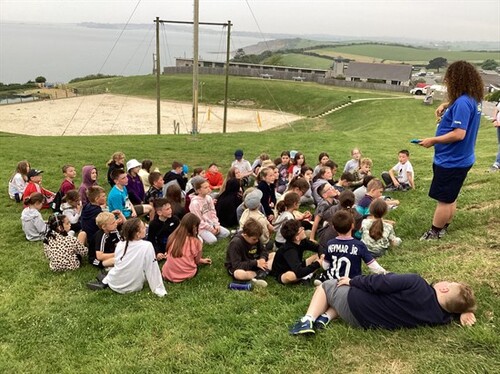
A follow up visit from Tim
(Water Treatment Works)
Today we had a visit from Tim who showed us around Sutton Bingham a few weeks ago. He came to talk to us at the end of our Geography unit on rivers and to help with information for our Earth Day tomorrow.
We revised lots of the information we had learnt during our visit and lots of us were able to answer questions on from the trip:
• The dam at Sutton Bingham was built in the 1950s as Yeovil was getting bigger.
• One of the problems is that people can take out too much water causing rivers to dry up.
• The Sutton Bingham reservoir can hold up to 2600 million litres of water.
Wessex Water takes water out of the natural environment, cleans it and then distributes it to customers. This collection of water happens at Sutton Bingham while the treatment of water happens at the Penn Hill Sewage Treatment Works. We looked at how we use water at home and why our water is dirty and needs to be cleaned.
We then conducted an experiment to see what might cause blockages in the system and what we should and shouldn’t out down the toilet. Using 0.2l of water in a container, we added toilet paper, tissue and a wet wipe. Then we shook the container for 1 minute before seeing what happened to the material we had added. We had some surprising results and realized that toilet paper is the only thing that should be flushed down the toilet. Thank you for coming to visit us – it was very imformative!
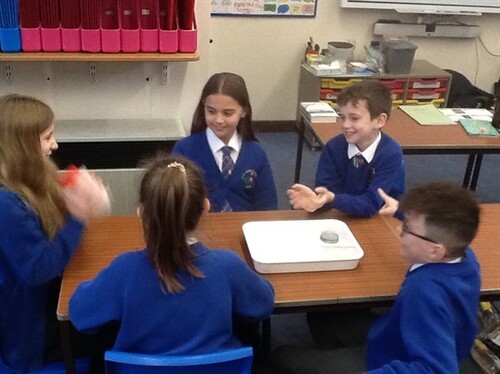
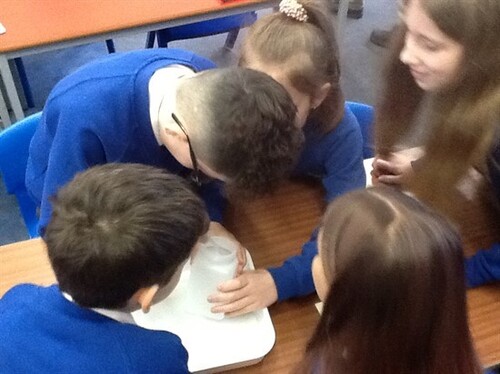
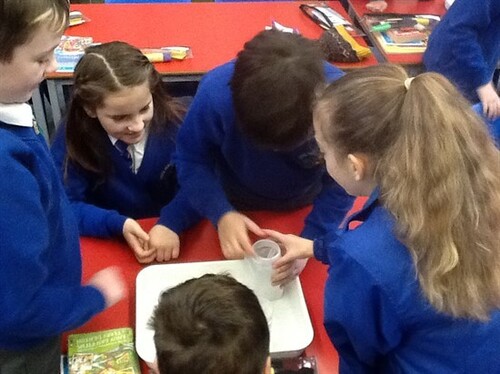
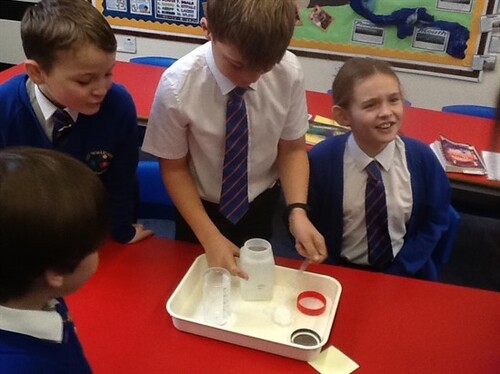
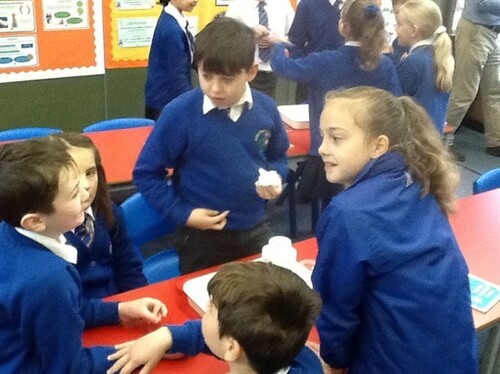
We went to the Wessex Water site out at Sutton Bingham. There we met Tim, who talked to us about rivers and the water cycle, explaining how Wessex Water work with the natural environment to get enough water for the local area. He talked to us about the different processes the water goes through to be cleaned, telling us that most of our water comes from the reservoir. Unfortunately we were unable to visit the water treatment centre, but we did get to walk out over the dam and explore the surrounding area.
This half term we have been investigating materials and their properties. We have tested materials to find why they are suitable for specific purposes testing whether they are transparent, opaque, waterproof or absorbent and whether they conduct electricity.
We have also investigated which materials were soluble and which were insoluble. Firstly, we predicted which of the substances (sand, flour, salt, sugar, chocolate, coffee, gravel, rice) would dissolve and thought about why. We then devised a fair test using the same amount of water (100ml) and material (2 teaspoons). Finally, we discussed our results.
We discovered that salt, sugar, flour and coffee are all soluble. However, sand, gravel and rice are insoluble. Chocolate was partially soluble and I think if we’d left it longer it would have dissolved as there were bits in the water as the chocolate was shredding.
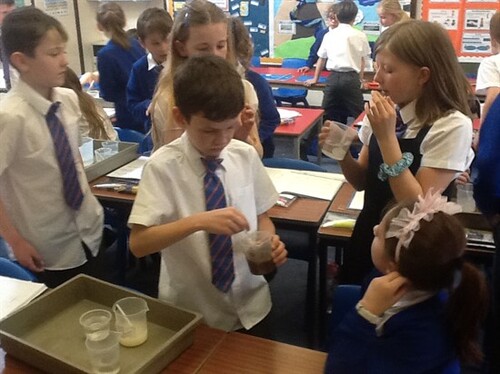
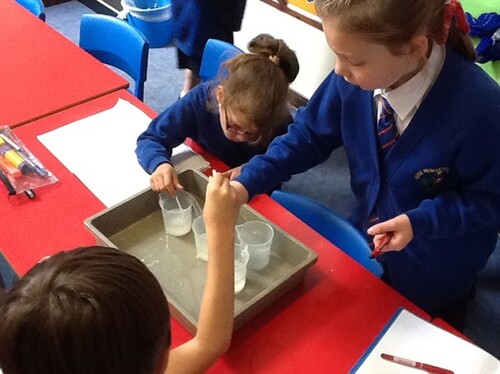
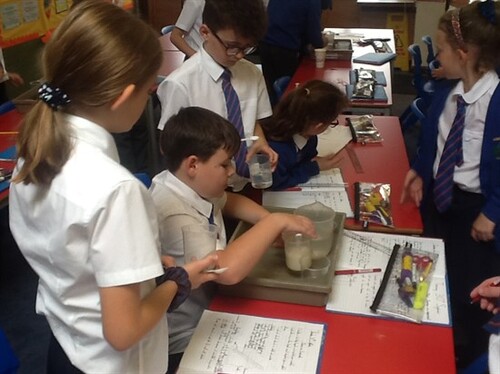
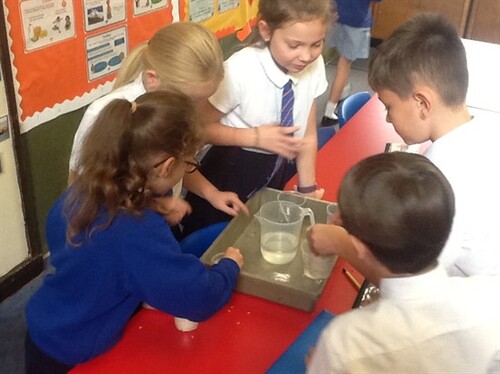
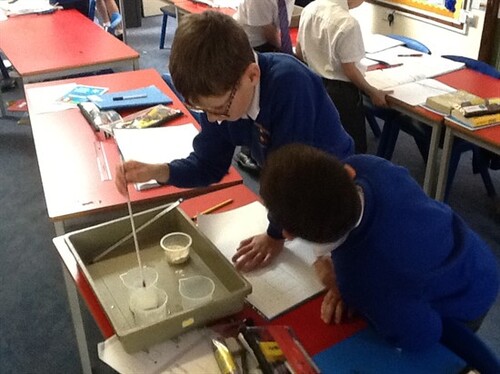
We have now started our brass lessons and are enjoying taking our instruments home.
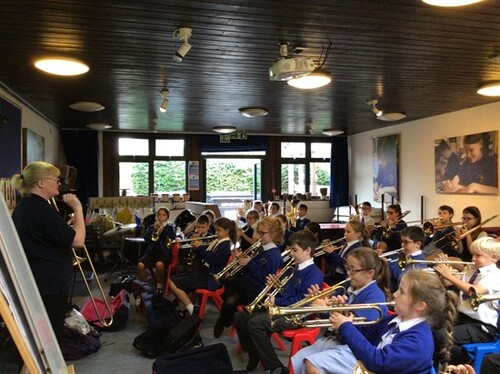
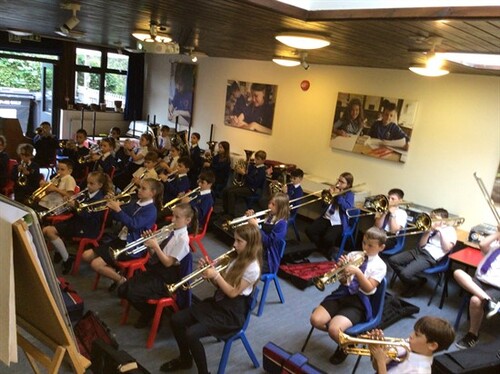
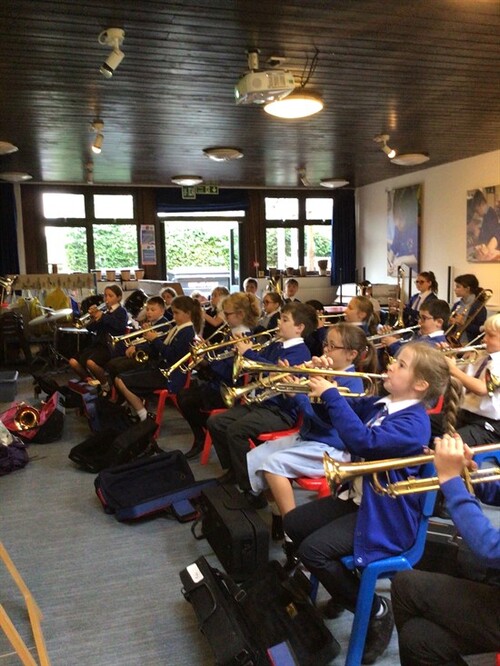
In Geography, we have been looking at the course of a river and thinking about all the features we would find in the upper, middle and lower courses. We even create our own rivers and thought about the positive and negative affects humans can have on the river along with its many uses. Next half term, we will be building dams!
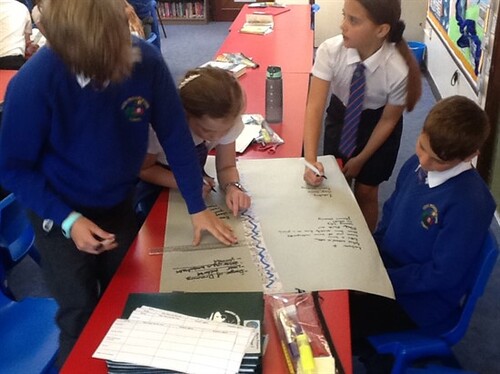
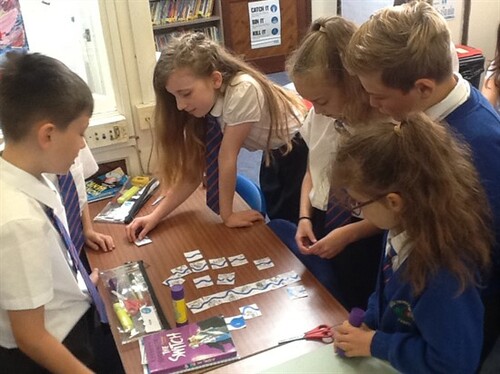
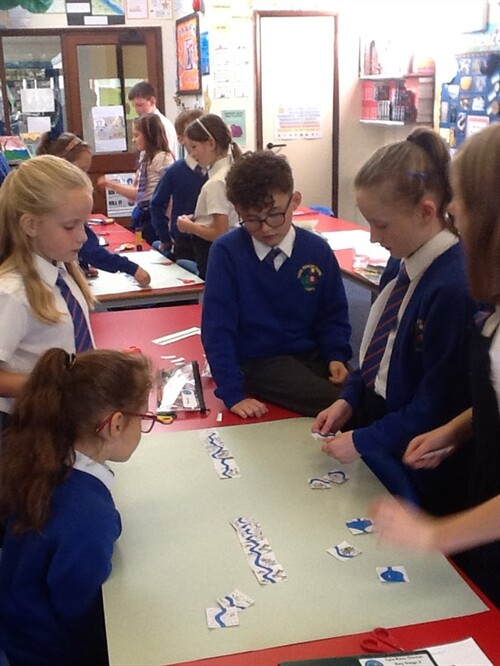
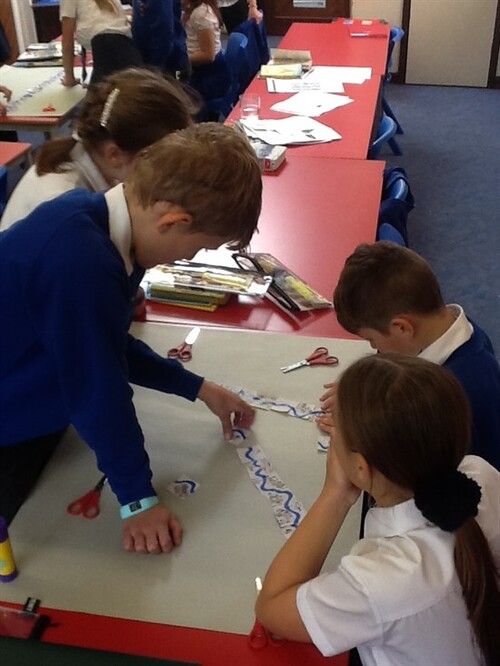
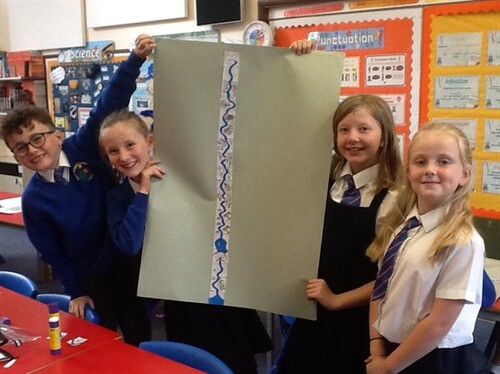
We spent a lovely day at The Bear Trail near Exeter. The site has a very muddy obstacle course that we were all able to take part in. We spent the morning in our groups tackling every obstacle – some were high, some were wobbly, most were muddy! After lunch we had the chance to go and explore the course on our own – the favourite was definitely the giant slide that finished in a huge puddle of muddy water! Some of us enjoyed lying in the mud and covering our faces in it. We all had a great time and got rather grubby.
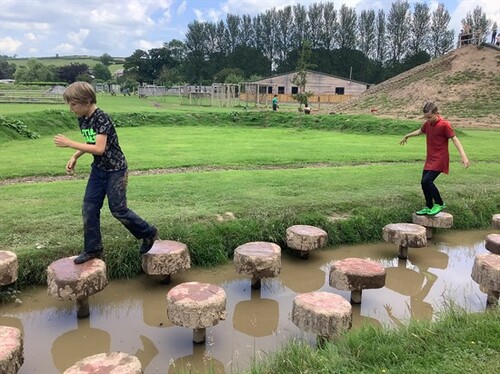
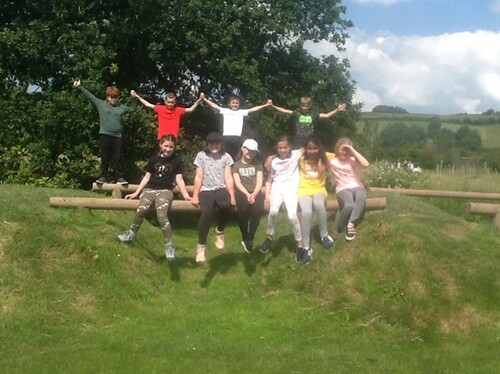
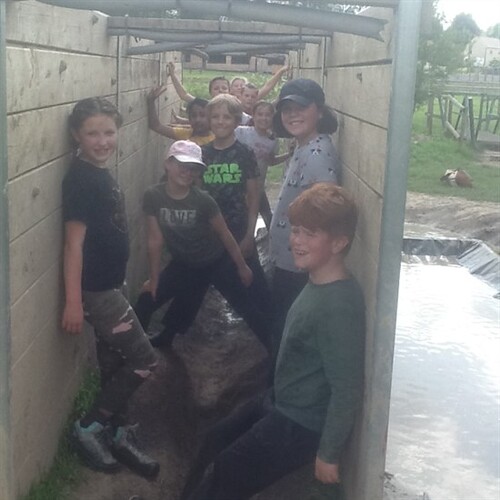
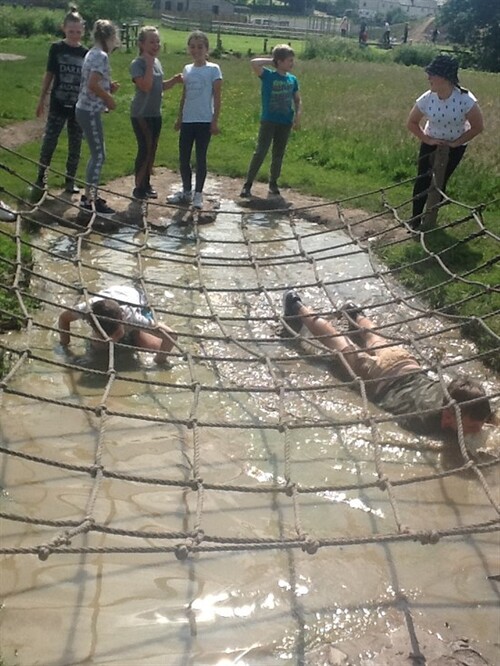
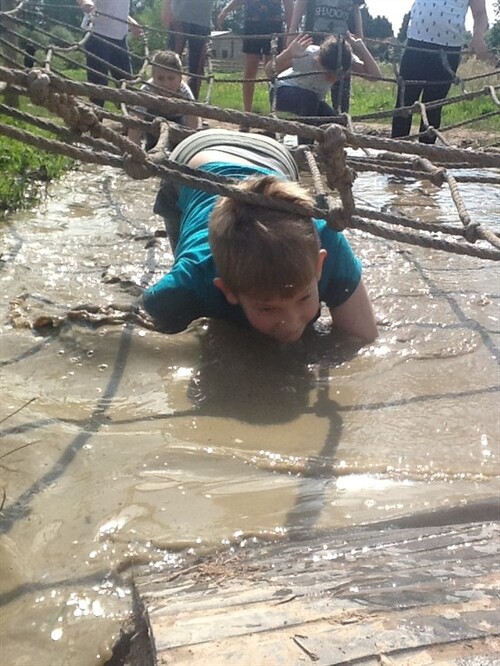
How does the size of a parachute affect the speed it falls at?
We discussed air resistance and watched a video before discussing how we could test how air resistance acts upon a parachute.
Firstly, we worked out the area of the three different-sized parachutes using our maths skills: Length x Width = Area. We kept all the other variables the same and made our parachutes.
Outside, we dropped our parachutes over the wall and timed how long it took for them to fall to the ground.
To make it a fair test, we dropped each parachute three times and then found the average by adding the three results together and dividing by the number of times we dropped it. We discovered the larger the parachute the slower the drop because the canopy caused more air resistance.





On Friday 5th March Huish decided to observe 'Unplugged Day' - a whole day of school using no technology! As well as publishing our survival guides and continuing with our work on fractions, Mrs Farmer and Miss Barnes helped us to make 'space rock cakes'. These differ from normal rock cakes with the addition of popping candy and edible glitter. In the afternoon we made 'stained glass window houses' to put up at home. We also went outside and made some 'natural art'.
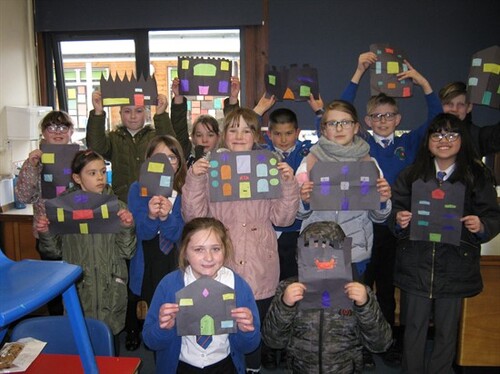
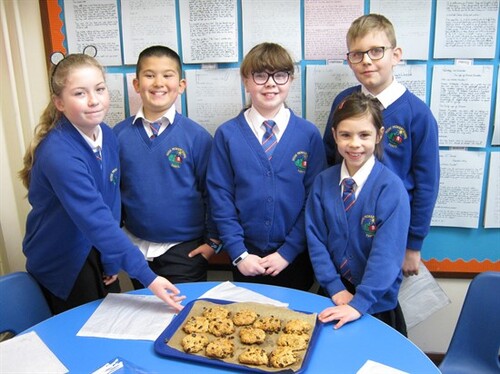
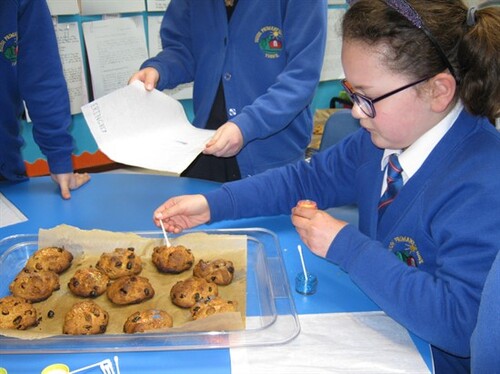
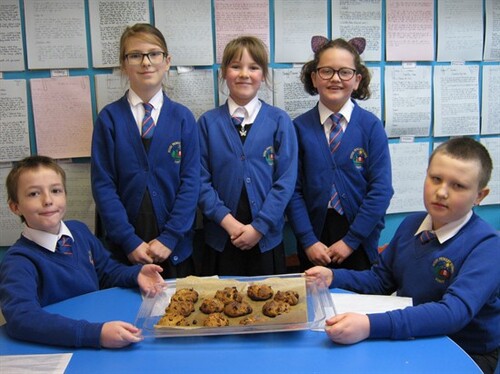
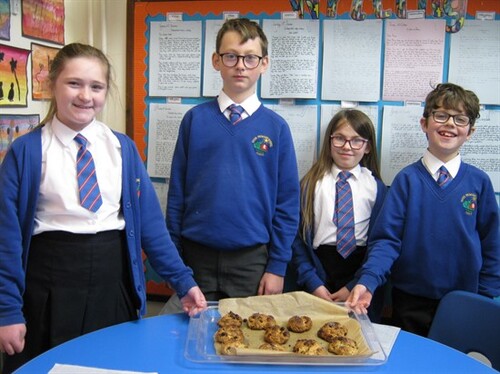
This year we have taken part in the Yeovil community project to create window art for others to enjoy. In school, we are creating a collaborative project which will be displayed in the hall window. Have a look when you’re out for your exercise and see if you can spot it as you walk past our school. At home, some of you have also been creating beautiful designs to display in your windows. Let us know if you have taken part or if you spot any wonderful examples around town.
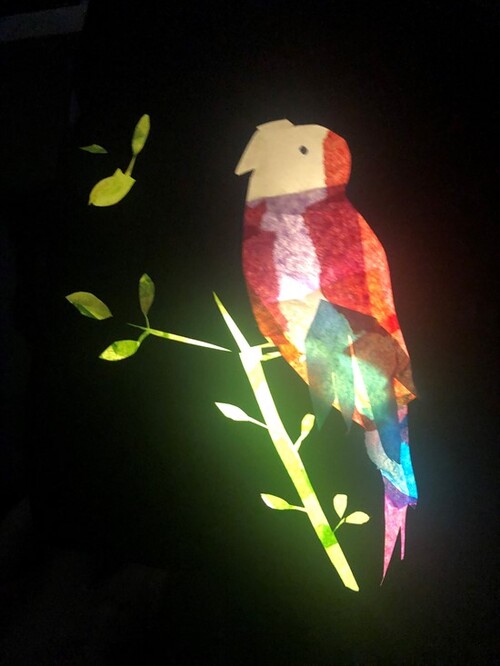
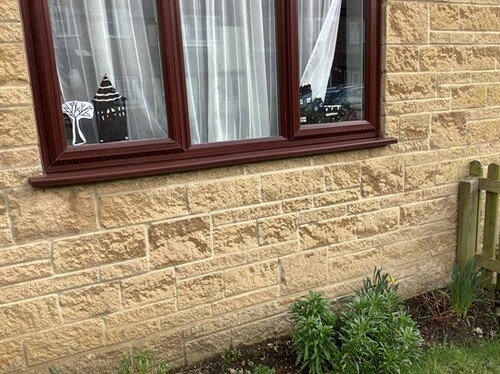
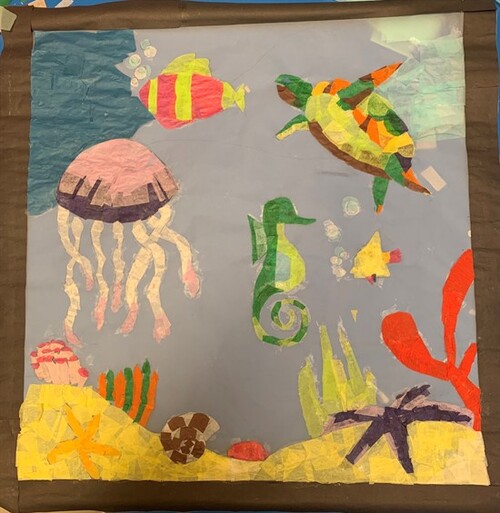
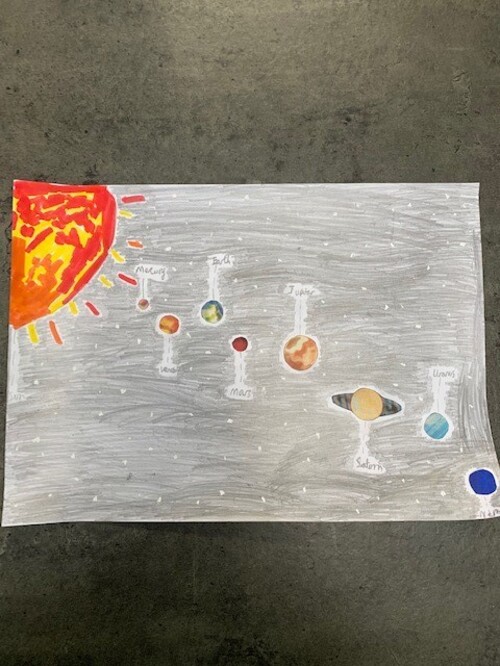
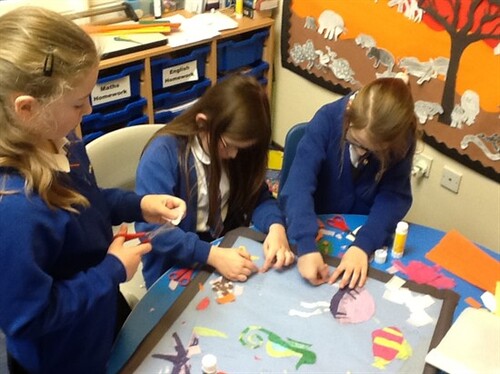
This week, we celebrated Children’s Mental Health Week where the theme was ‘Express Yourself’. As part of the week, we thought about our happy place, our emotions, we looked at the Disney film ‘Inside Out’ and the book called ‘The Boy, The Mole, The Fox and The Horse’, as well as many other activities involving music and art.
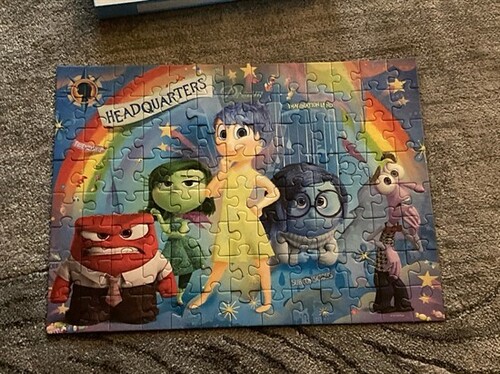
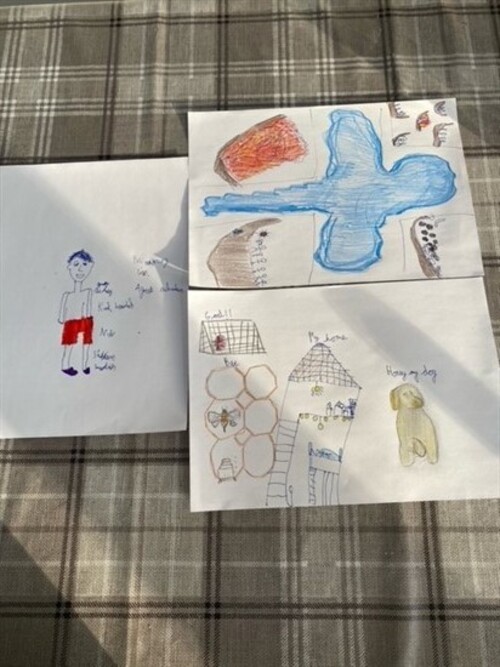
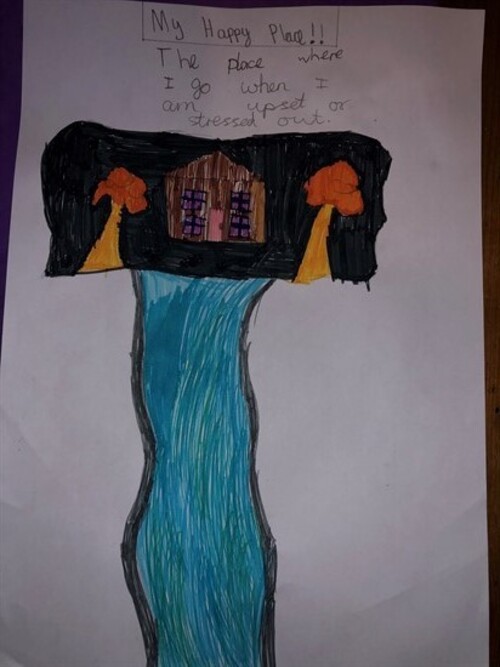
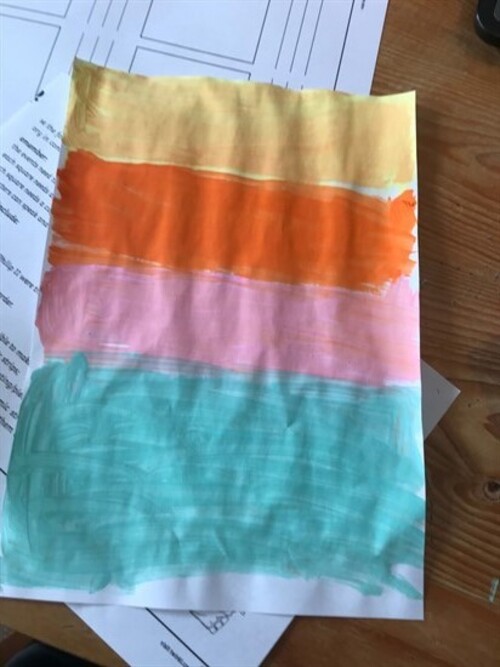
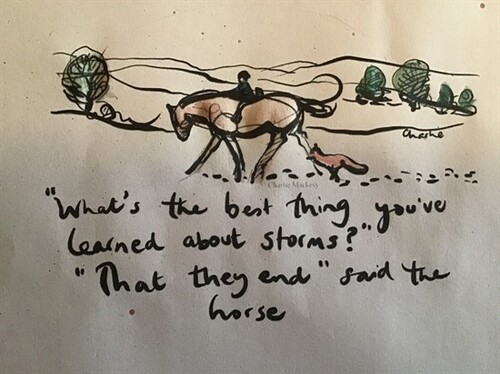
A topic we have all enjoyed exploring is our solar system. We have investigated the different planets, looked at why seasons occur and how we get day and night. We have also used biscuits or a wheel to show the different phases of the moon. It’s always more fun when you get to eat treats after your science lesson!
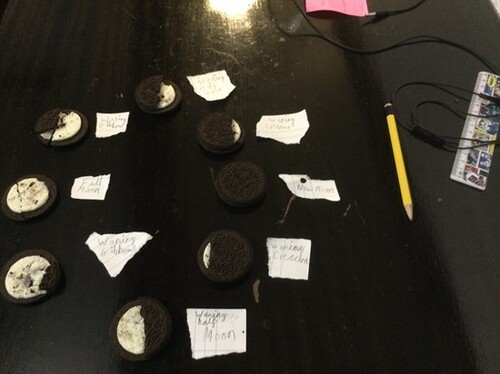
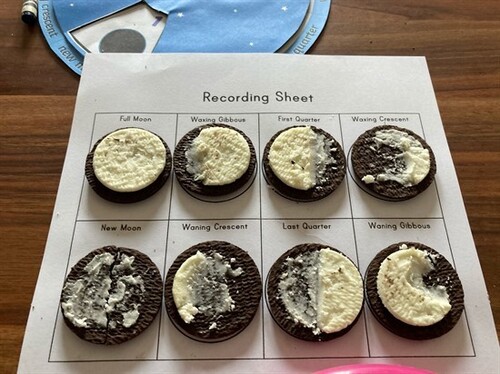
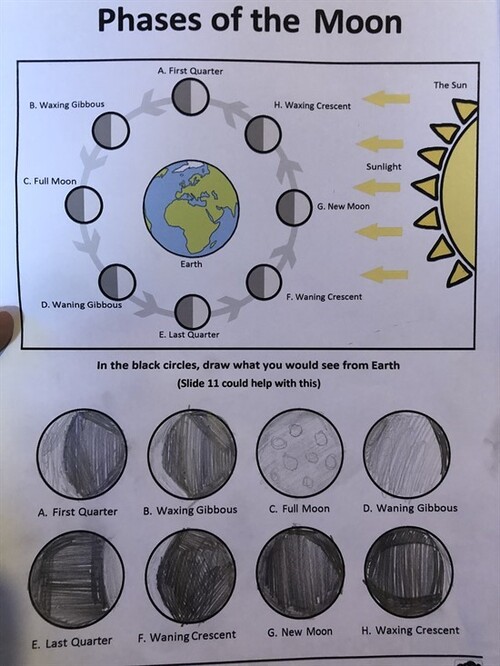
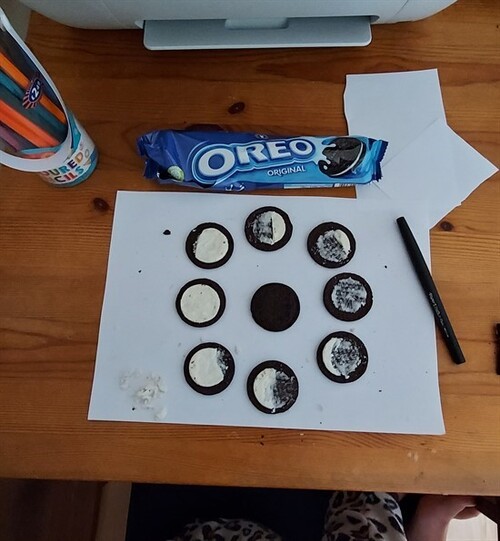
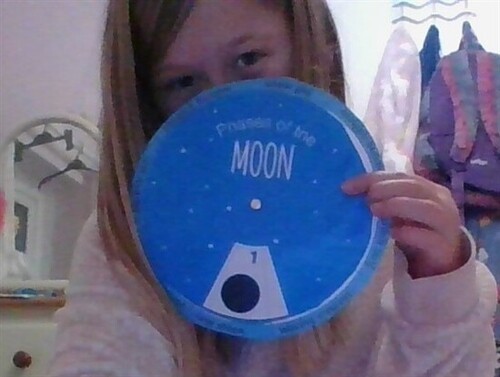
In Year 5, we had lots of fun, last week, learning all about Australia. We discovered facts about the wildlife, country and culture. Have a look at some of the amazing work we did!
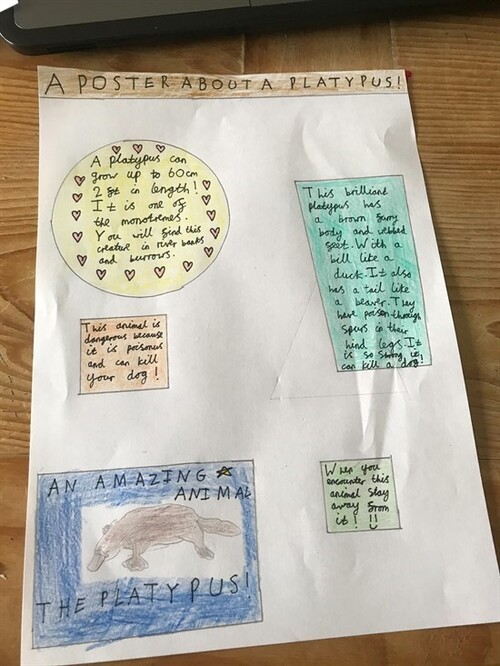
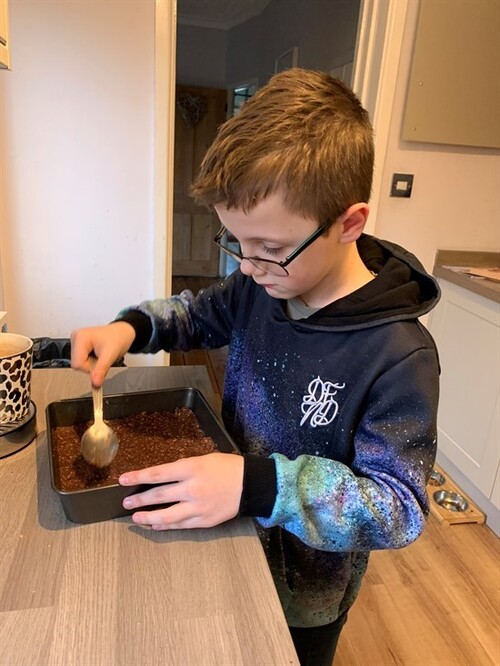
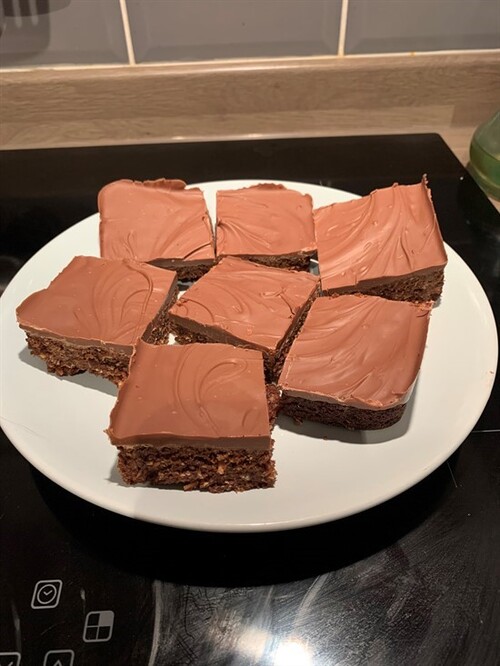
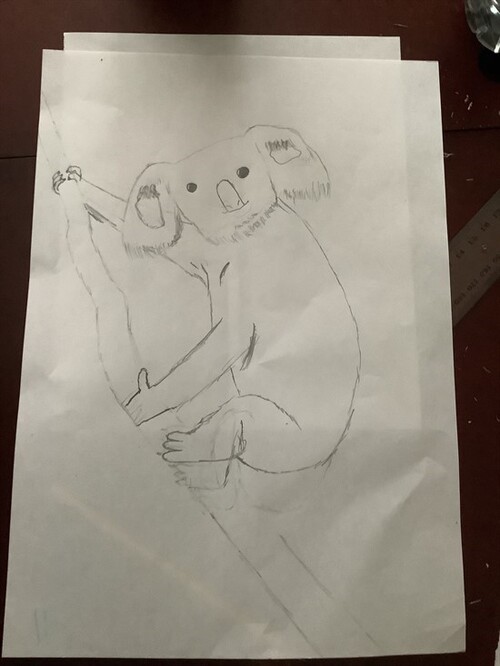
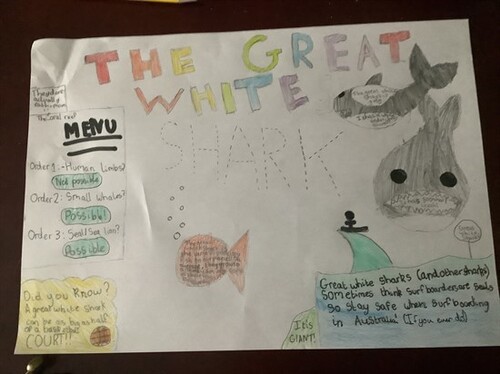
This week in art we created some beautiful Tudor Roses using materials around our homes and those of us in school made some for our display. Well done everyone!
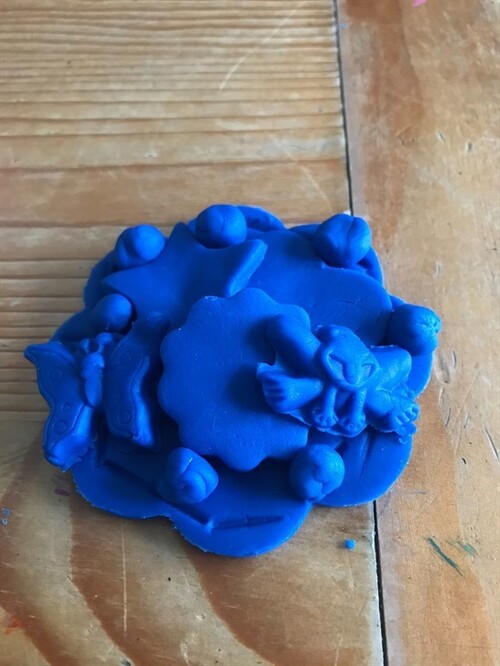
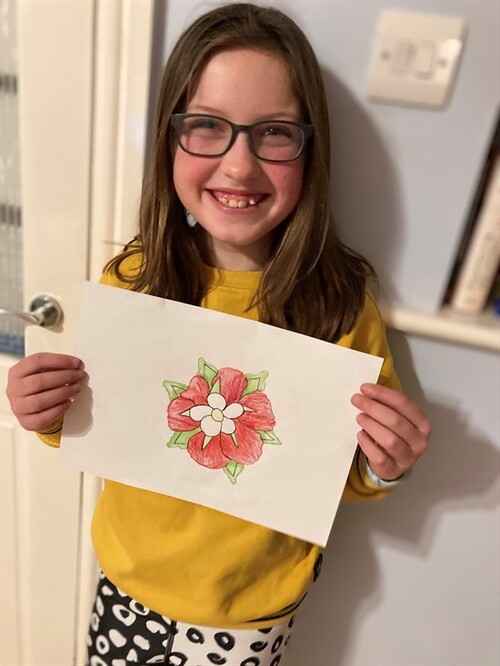
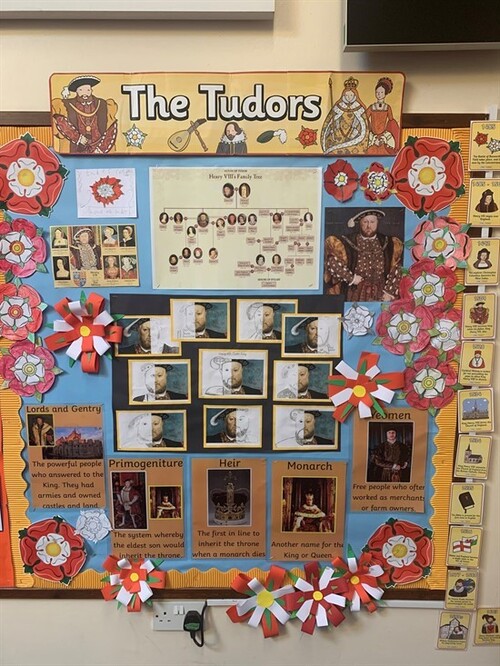
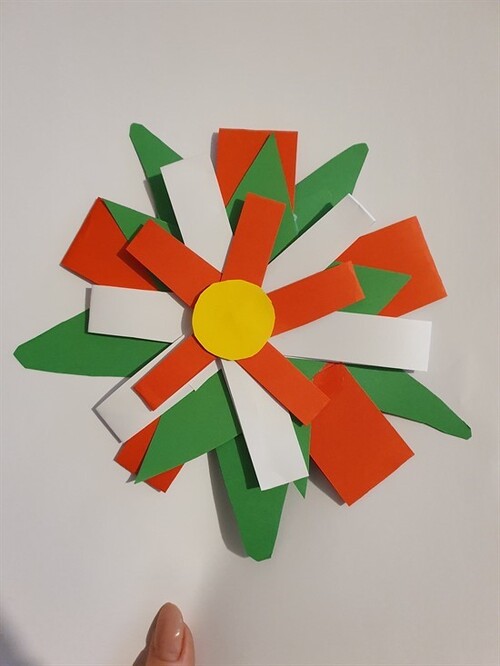
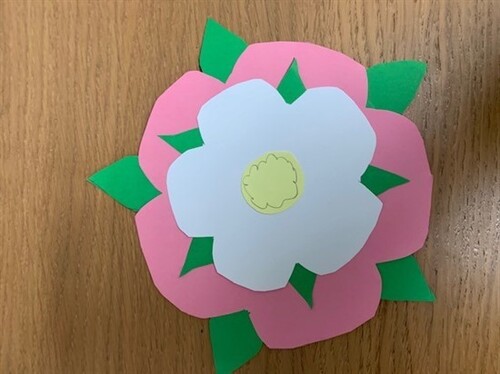
This week, to start our first full week of home learning, we created some planetary mountain scenes using just our pencils. We used lines and shading to create a dramatic effect and then some of us added some glitter to the night sky. Have a look at our gallery of pictures that we created both in school and at home.
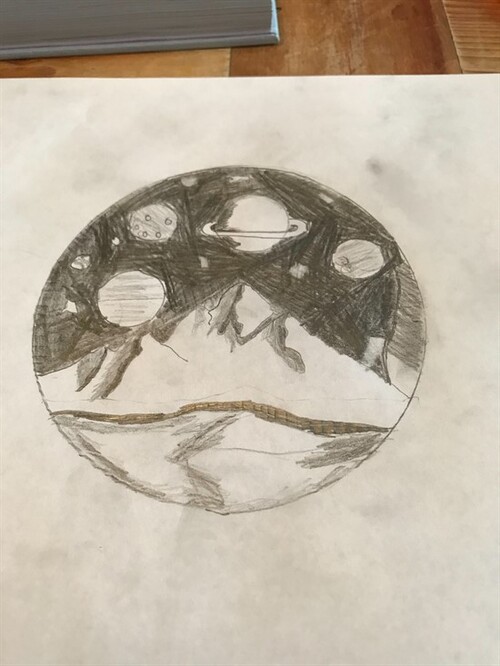
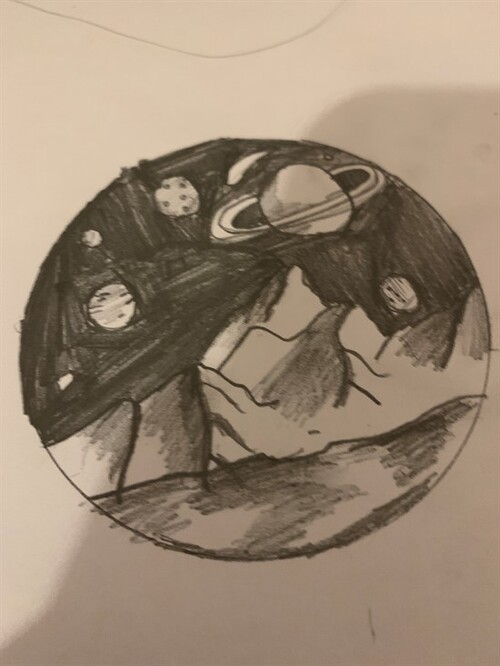
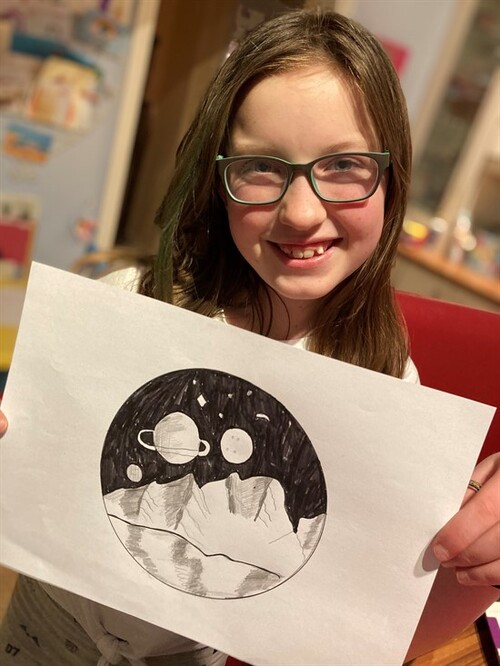
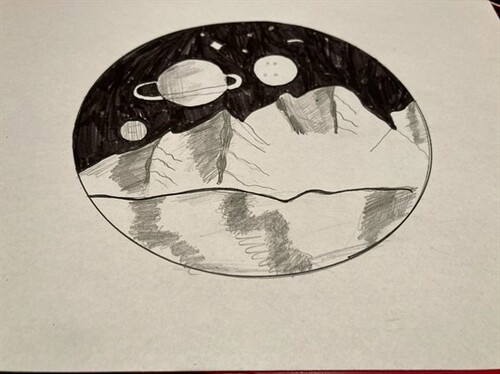
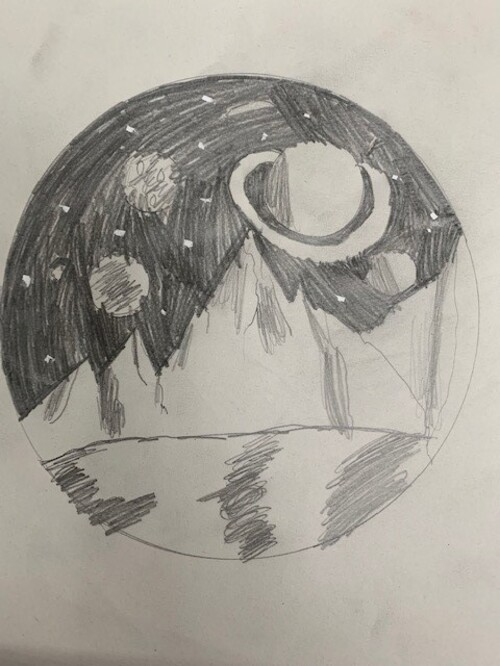
We introduced the next Tudor King, Henry VIII. We started by looking at a portrait and discussing what we already knew about this famous king. We discussed portraits and sketching techniques. Having been given half a portrait of King Henry VIII we then had to complete the rest using pencil.
Today, we looked at the symbolism of the coats of arms, what the animals, colours and patterns represented. Then we created our own coat of arms and thought of a motto that would represent us.
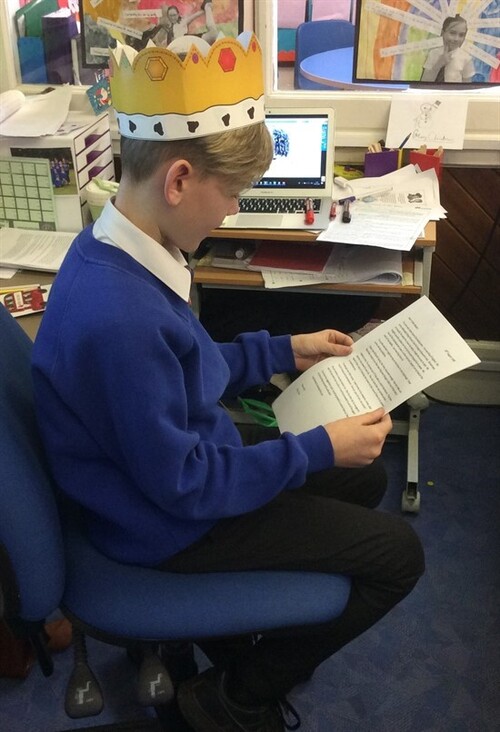
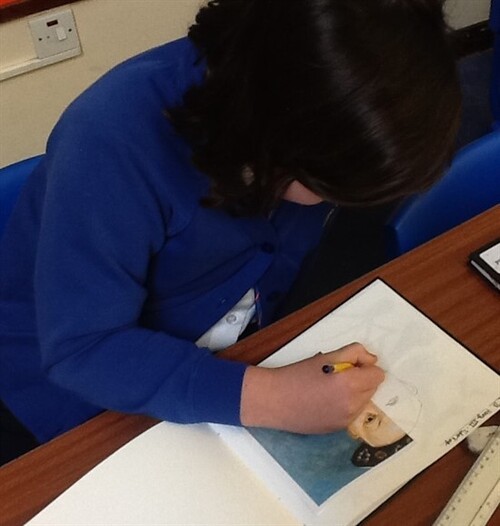
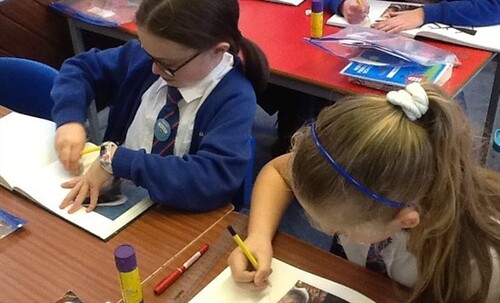
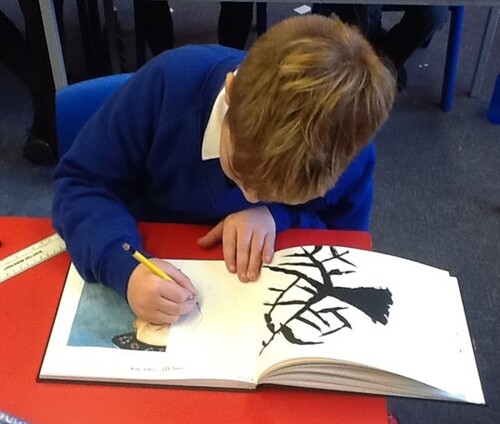
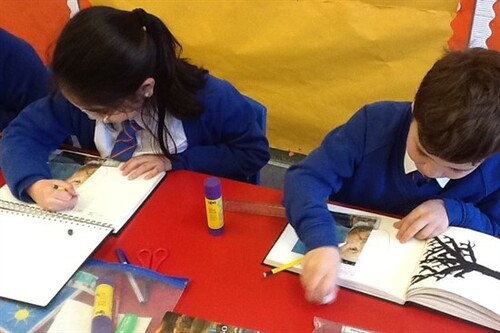
Year 5 had our Christmas party today. We really enjoyed 'throwing some shapes' on the dancefloor, and playing party games like 'Pass the Parcel' and' Musical Statues'. The afternoon was finished off beautifully with a drink and some cake. All of year 5 would like to wish our family and friends a very happy Christmas.
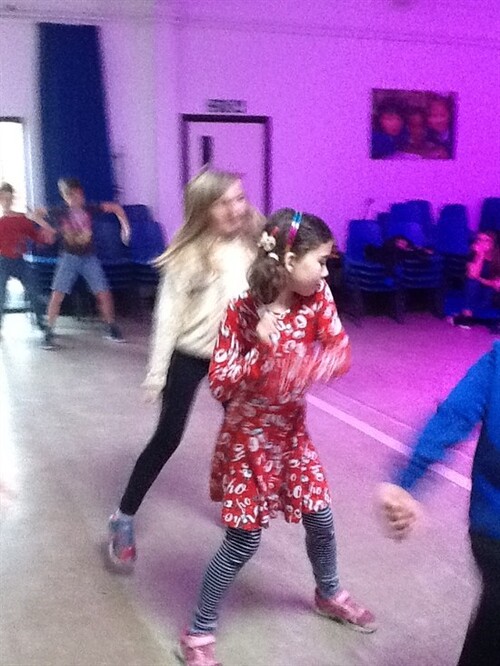
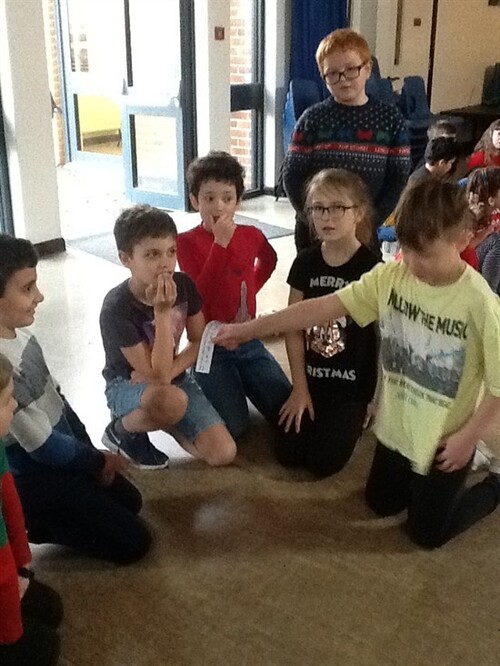
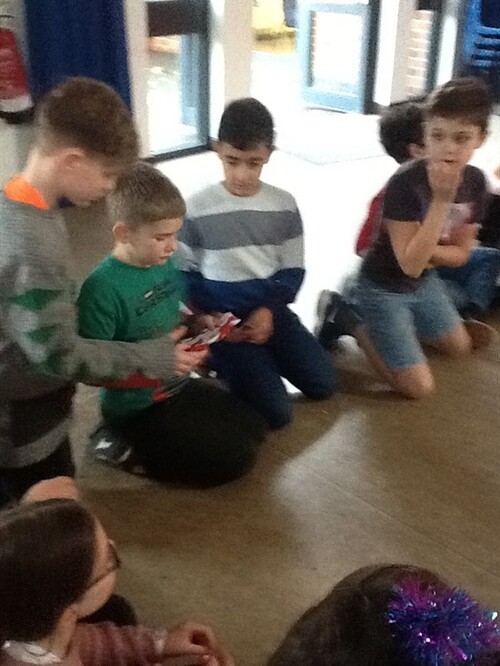
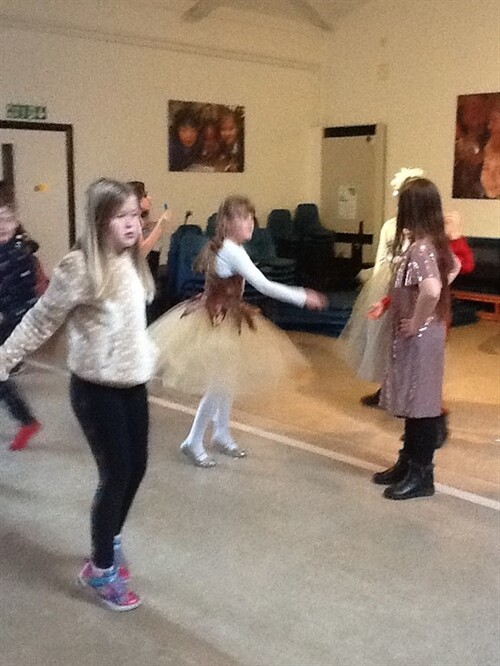
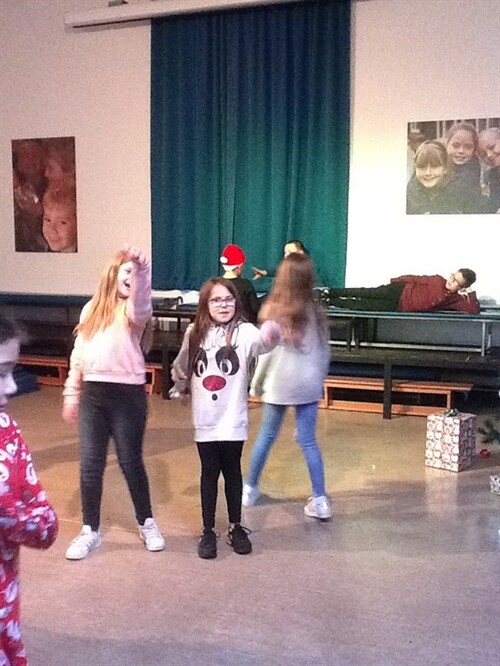
Before we started our Christmas party, we had a fun morning of arts and crafts where we made Christmas decorations and Christmas cards.
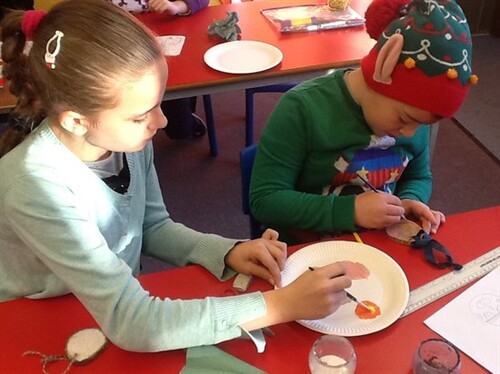
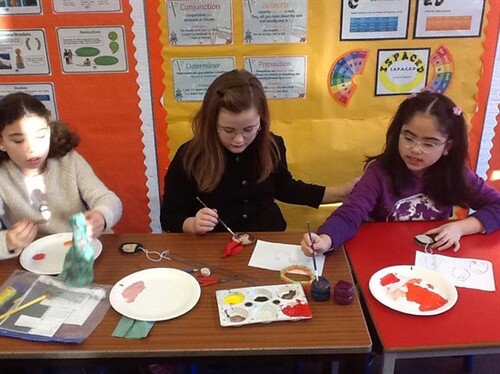
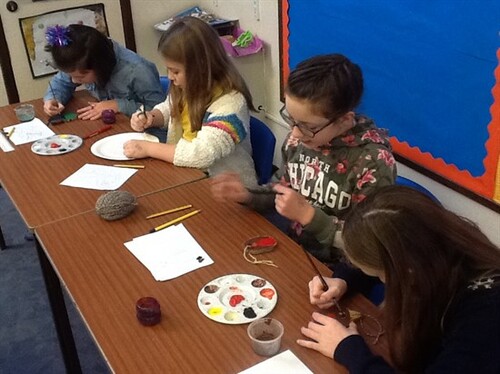
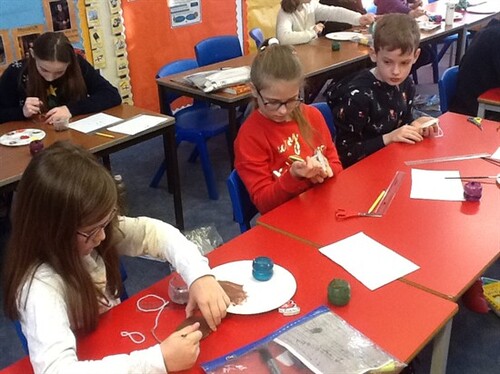
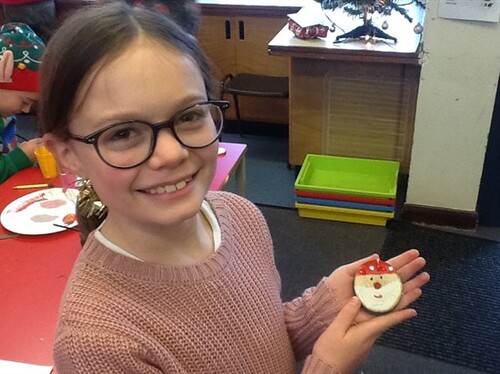
To launch our History topic, we started by looking at pictures of historical artefacts from Tudor Times. We discussed what we thought the objects were, what they were made from and who might use them. We had some interesting ideas.
Next, we discovered that some of our class had fallen ill and had to visit the wise woman of the village or the barber to find a cure. There were some very interesting ideas in Tudor medicine and we decided that we preferred today’s medical practices.
In another lesson, we used role-play to learn about Primogeniture – the system by which the eldest son inherits the land ad titles on the death of the father. This was the system used for royal succession until recent years.
We learnt all about the ‘War of the Roses’ in this lesson. In the middle of the 15th Century a civil war raged through England for more than 30 years. The opposing sides of the battle were each represented by a rose. Half of us were Yorkists and half of us were Lancastrians.
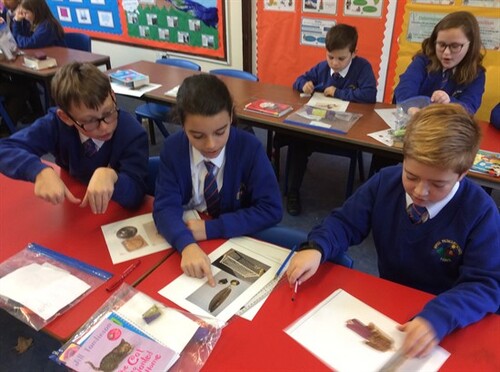
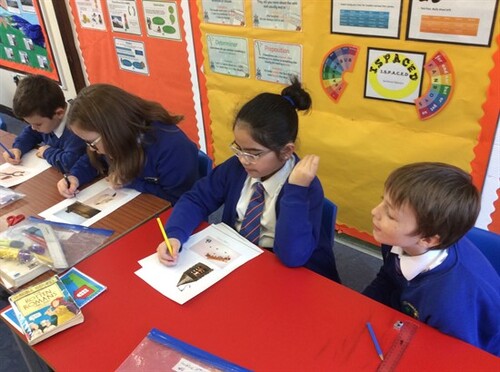
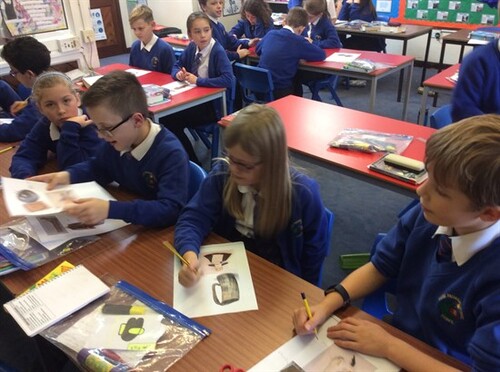
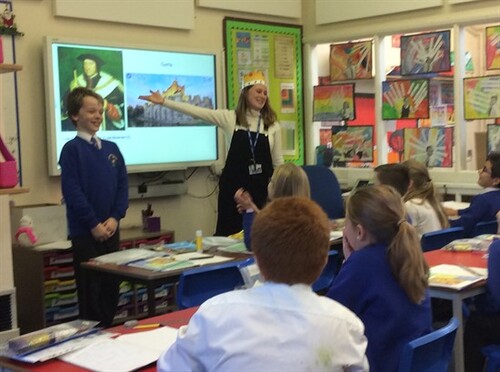
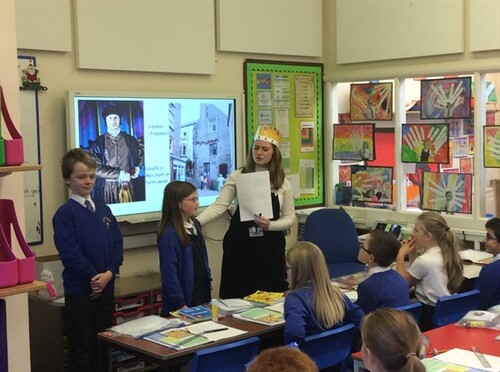
This year may have been very different for all of us but some traditions remain…Huish Christmas Dinner! Although, the arrangements were slightly different, we celebrated in our classrooms with music, crackers and a delicious turkey dinner with all the trimmings. We even enjoyed telling our jokes and a game of charades afterwards. It was delicious!
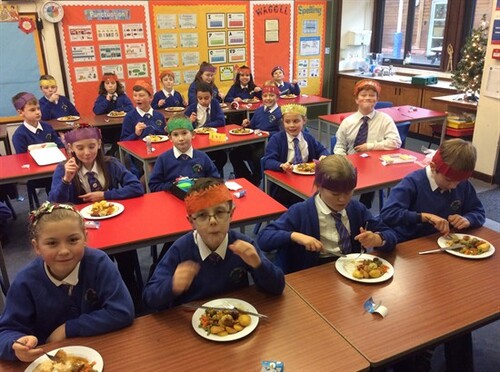
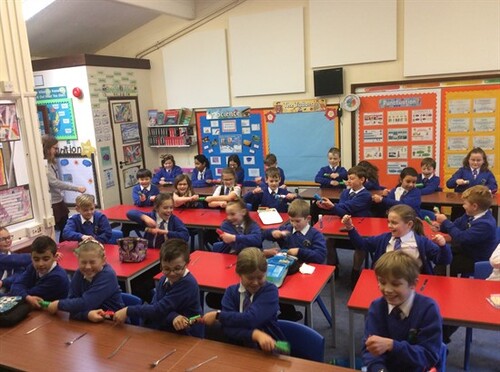
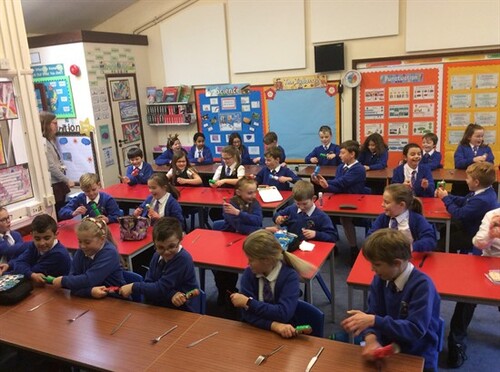
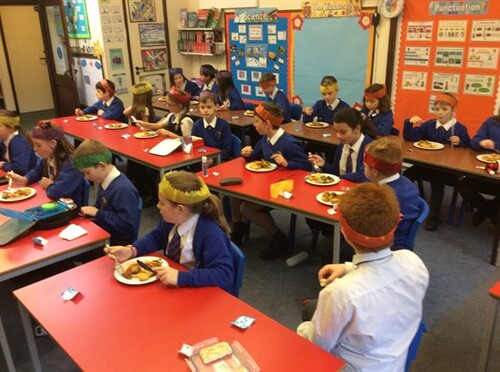
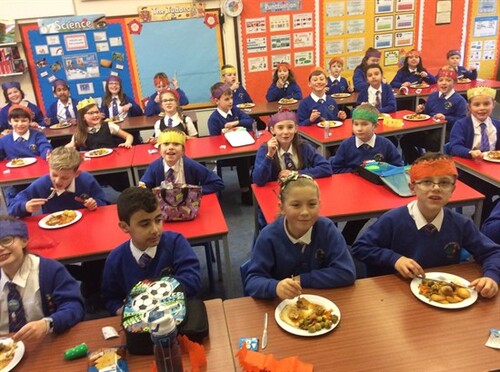
This term we have been looking at materials and conducting lots of experiments to investigate their different properties. We have made plastic from vinegar and milk, filtered dirty water making our own filtering system and tested out thermal insulators.
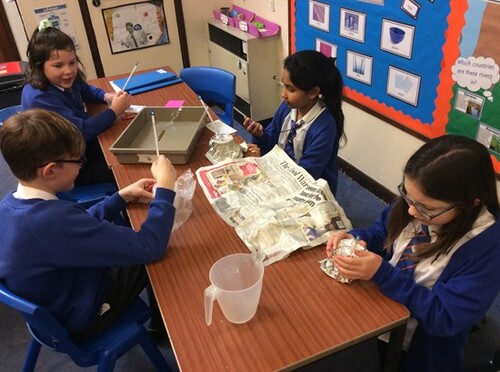
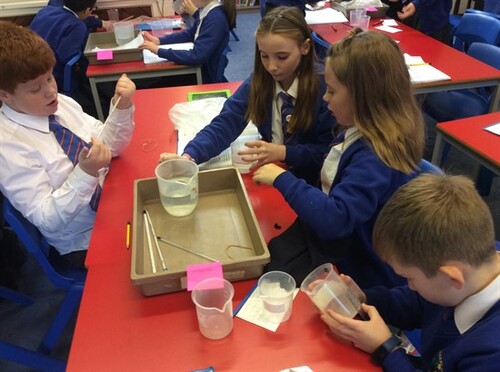
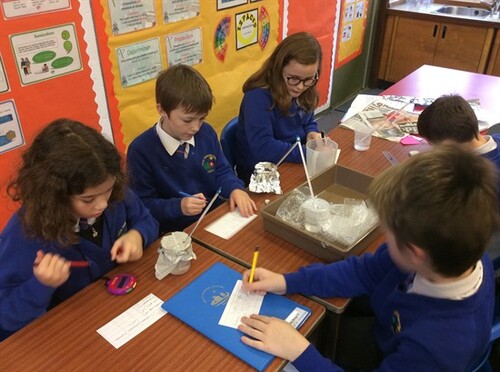
We have all settled in brilliant to Class 12 after such a long absence and we have all been impressed by the efforts of all the children showing a fantastic growth mindset. It is also lovely to welcome two new children to the class.
Class 12 looked at a range of abstract artists including Kandinsky, Klee and Mondrian. We discovered that abstract art is modern art which does not represent images of our everyday world. After discussing our opinions about the different artists and styles, we used wax crayons to create a design and then watercolours to paint over the lines. We discovered that the crayon repelled the paint. Having had our photographs taken while we struck a pose, we cut these out and stuck them onto our artwork. These pieces of art show information all about us and pour displayed in the classroom and on our corridor display board.
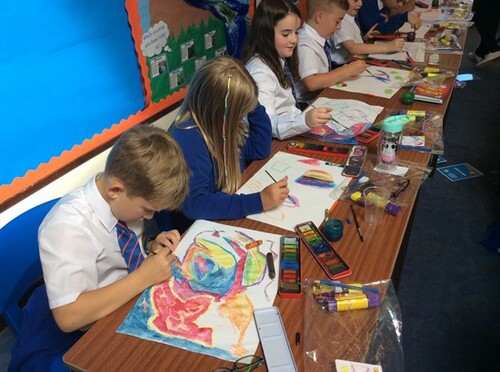
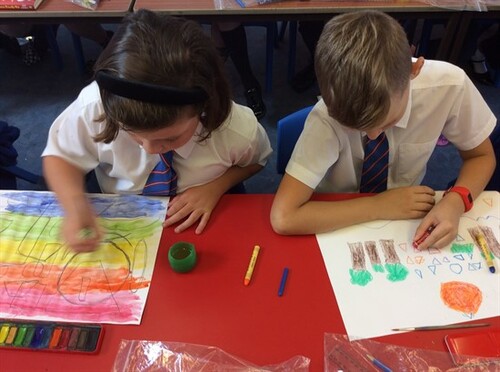
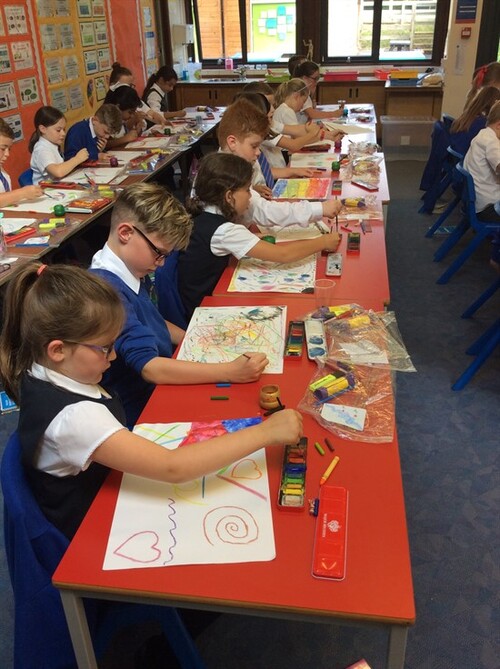
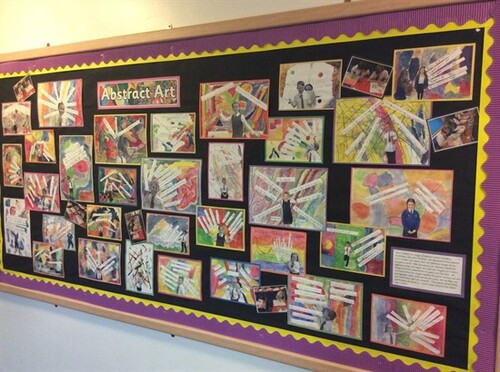
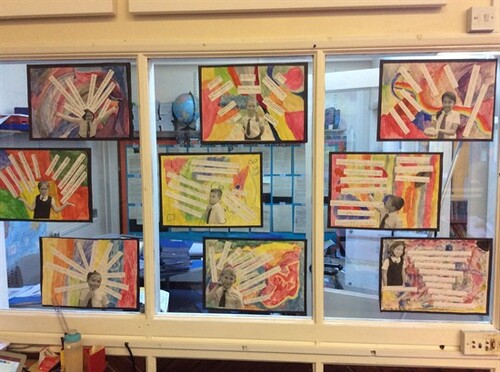
In maths we have been looking at Place Value and doing lots of work on the value of digits depending on their place in the number with numbers up to 1,000,000. We have also been looking at ordering and comparing as well as rounding numbers. In one of our lessons, we looked at house prices and populations so that we could see these larger numbers being used in real life. In our basic skills sessions, we have been looking at mental addition methods and finding different ways to add without using column addition. Keep practising at home along with your times tables.
Narrative writing has been the focus for our English lessons with a focus on a graphic novel by Shaun Tan called ‘The Arrival’. This story has no words, only pictures which we have used to infer information about a refugee and wrote a variety of genres using this as a stimulus.
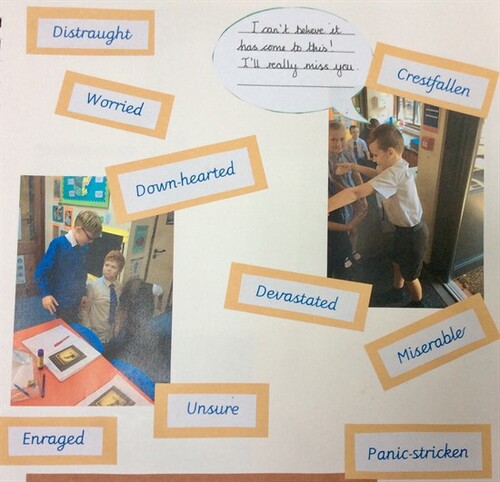
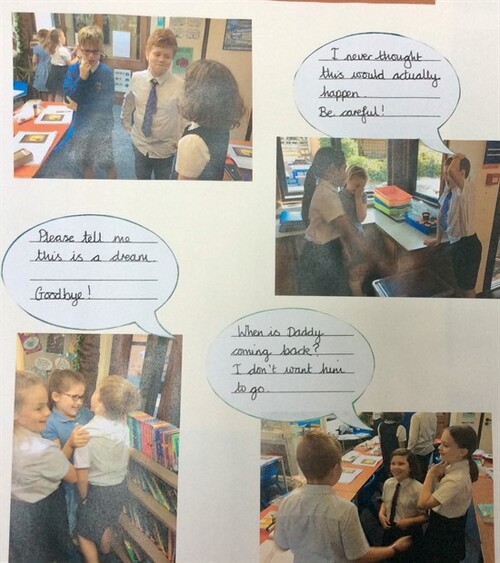

In Science, we have been learning about different materials and have carried out experiments to discover the different properties. Perhaps you could explain to your adults some of the new vocabulary we have been using such as permeable, impermeable, rigid, flexible, opaque, translucent and transparent. This week we conducted an experiment to see which materials were soluble and which were insoluble in water after we had made our own predictions.
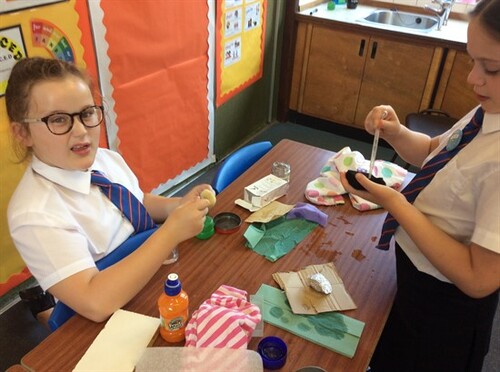
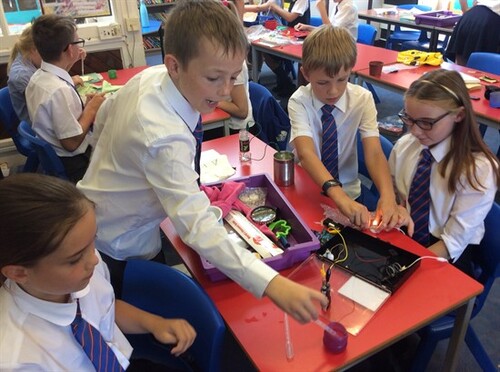
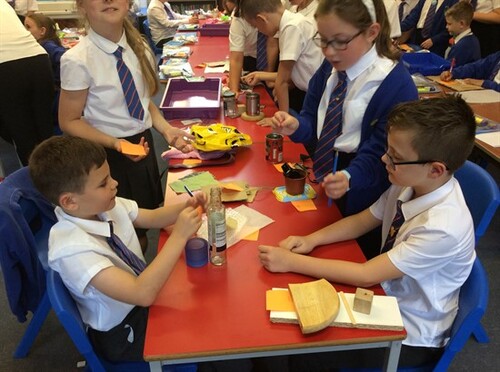
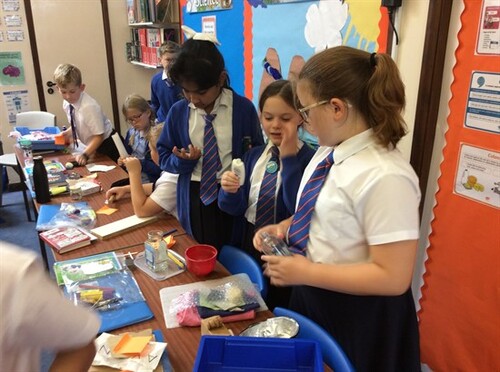
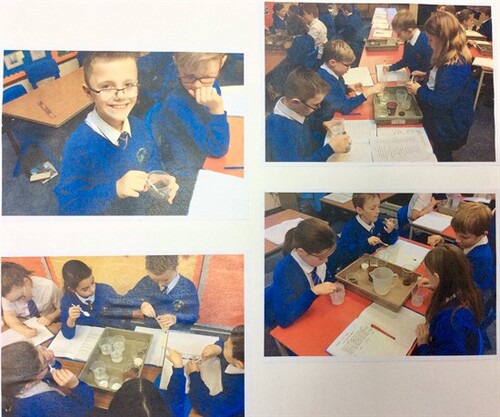
It was lovely to see photos of Nathan and his dad role playing a dilemma for RE this week.
He saw a council worker cutting down an ancient tree in his local area (pic 1) , and quickly became angry, telling the council worker 'Stop that! How dare you?' (pic 2). Acting as Humanist would, Nathan approached the council worker to ask him what he was doing and why. The council worker explained that the tree had become diseased and was in danger of falling down and injuring someone, upon which 'Humanist Nathan' gave the council worker a round of applause. Well done Nathan for teaching Dad about Humanism.
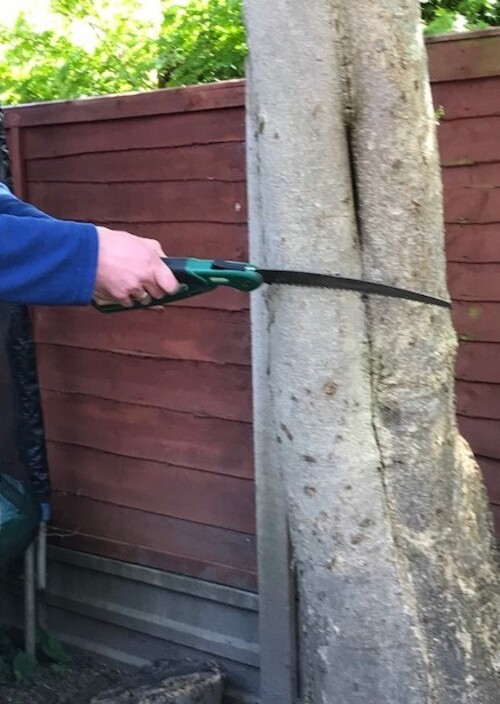
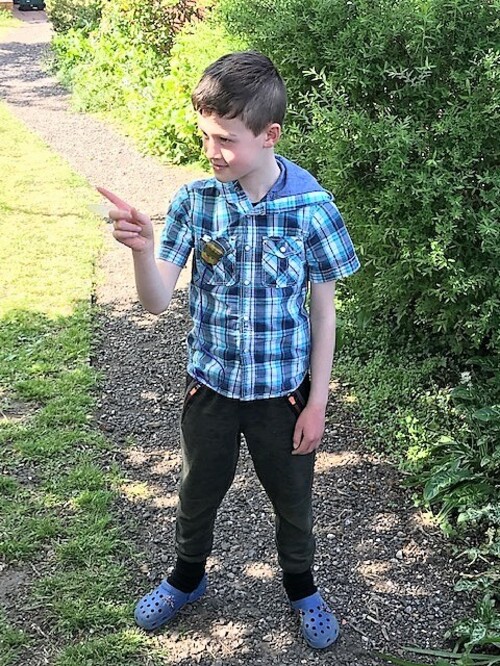
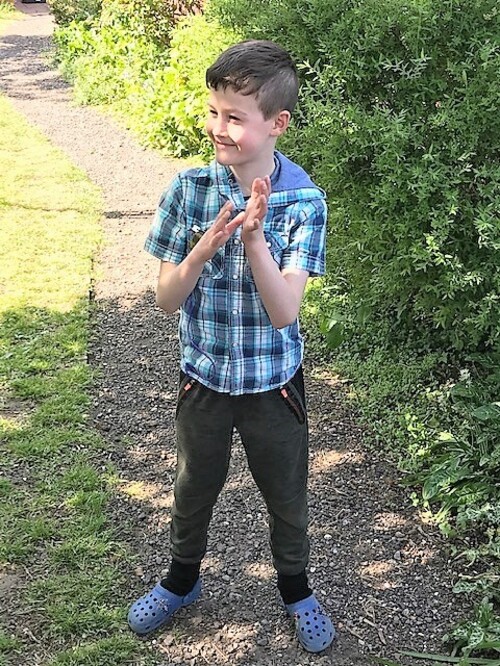


Year 5 have also been writing penpal letters to West Abbey Care Centre which we emailed on Wednesday. Well done to all the children for working with our local community at this time (This was an image from Wilbur’s letter). Hopefully we’ll hear back from them soon.
Look at some of the new things, as well as the home learning, that have been happening in Class 12 over the last few weeks with cooking, planting and lots of art and craft activities to name a few.

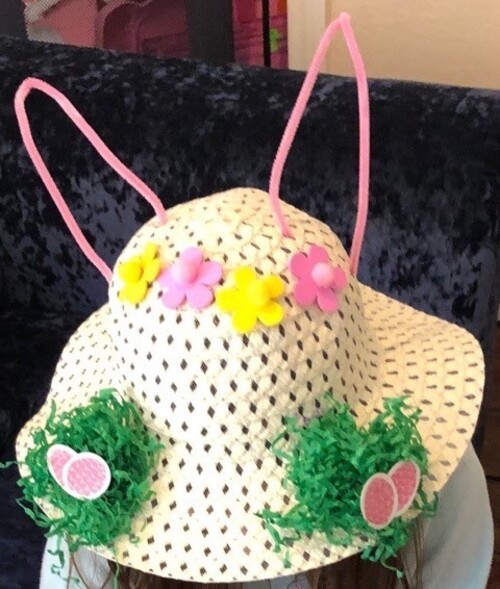
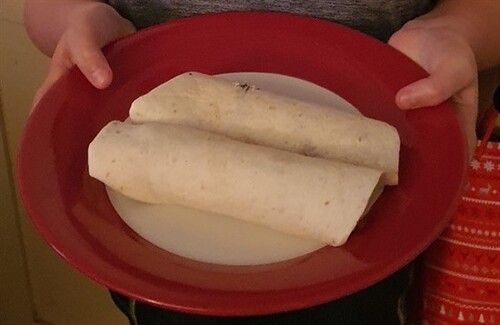
It has been wonderful hearing your news and seeing the effort that so many of you have been putting in this week to produce some excellent pieces of work.
I know for some of you, it’s also been a bit tricky getting into new routines but keep trying, start each day afresh setting yourself new goals and feel proud of the things you do achieve. I know you can all do it!
Thank you for all the work you’ve shared. Here are a few examples from this week. Well done!





Have a look at some of the characters we came dressed as today for World Book Day in Class 12. We looked amazing - well done, everyone!
What book characters can you spot?
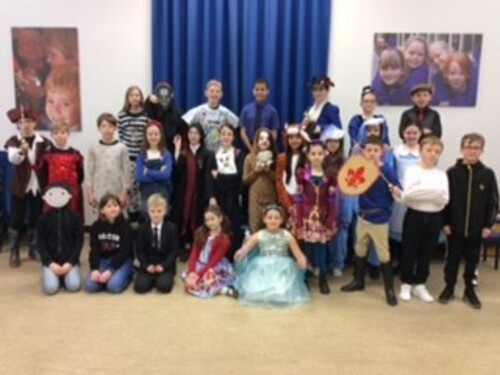

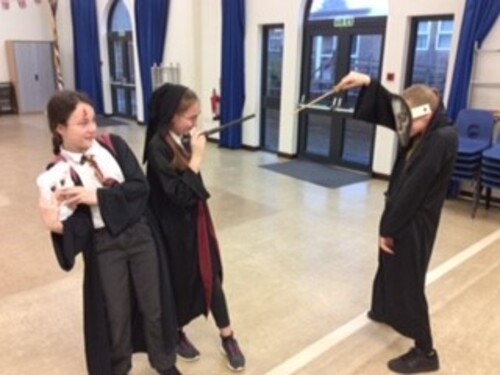
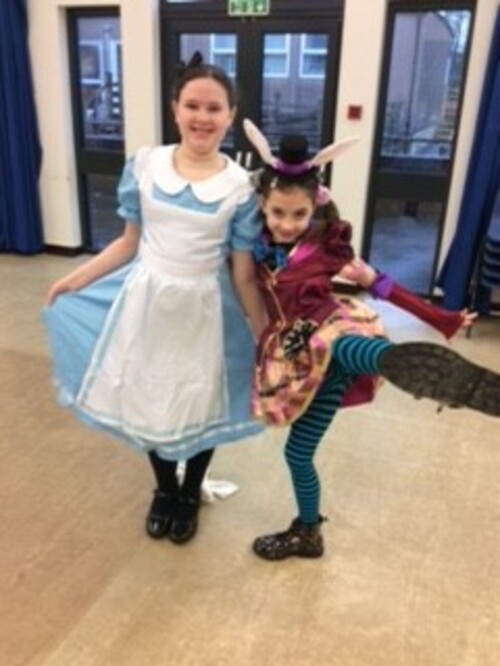
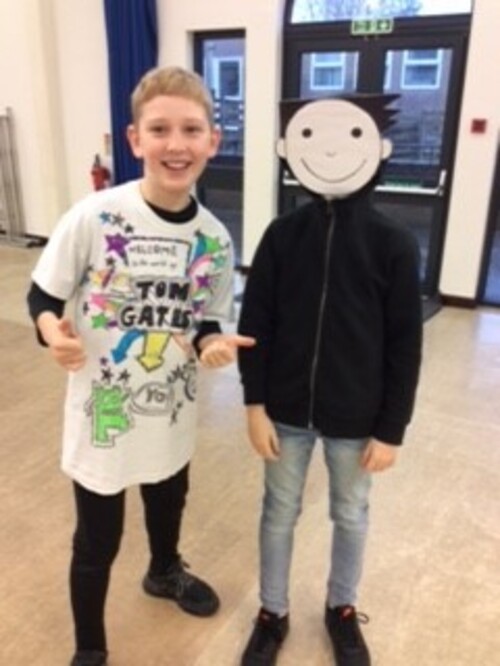
Year 5 tried the technique of pouncing to copy portraits of William Shakespeare as part of Arts week. We used a pin to outline the portrait, then pushed charcoal through the holes of the copy to make a 'join the dots' copy into our sketch books. It was a difficult technique, but we were pleased with our finished portraits.




This half term, we have been investigating databases using PurpleMash 2Investigate.
We thought about the use of databases in our lives: holidays, house hunting, shopping, SIMS (school database) etc.
We completed some research on the solar system (linked to our Science topic) and created some TOP Trumps style forms.
Finally, we were ready to create the database using 2Investigate.
For our English homework we wrote the next part of a story called the Evil Genie that we had studied in our Guided Reading Sessions. Class 11 and 12 teamed up and enjoyed listening and sharing our stories. We spotted how different they were even when we had a similar theme to write about.





Our International Day started with a discussion and learning key facts about Africa, plotting the countries on a map using our atlases, looking at the physical and human geography of Africa.
We attended an African dance workshop where we learnt an African style dance from our instructor Claire.
We researched our own facts about Africa using the laptops and iPads. Some of us also investigated Africa using Google Earth and looked at how far away it was from the UK and how large the continent is.
Our final task was studying African art by Gakonga (Kenya). We thought about the colours, images and techniques as well as discussing the feelings that the artwork created.
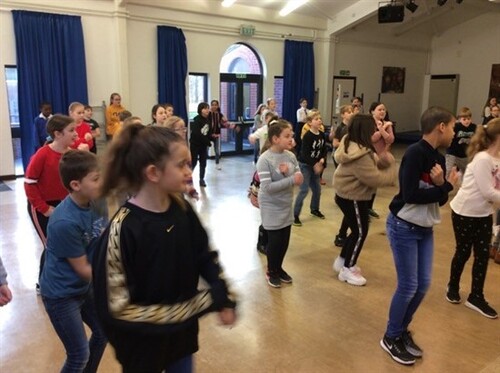
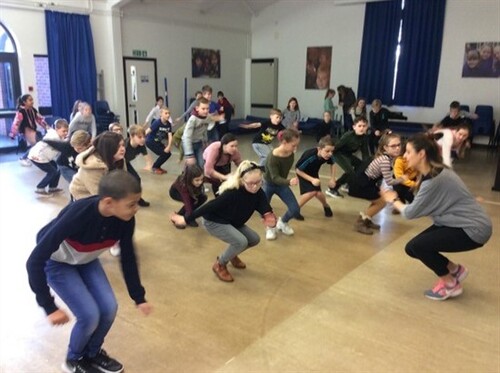
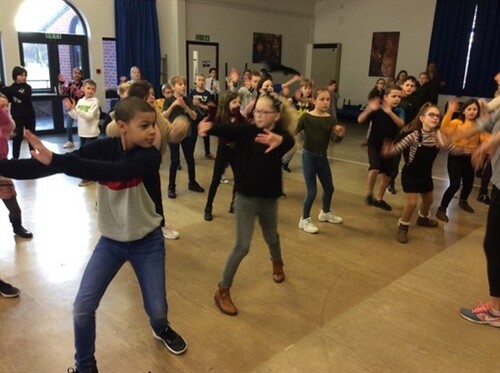
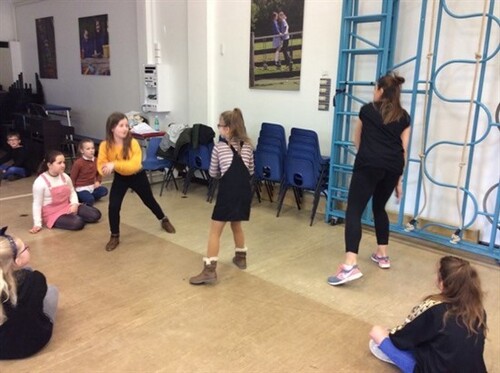
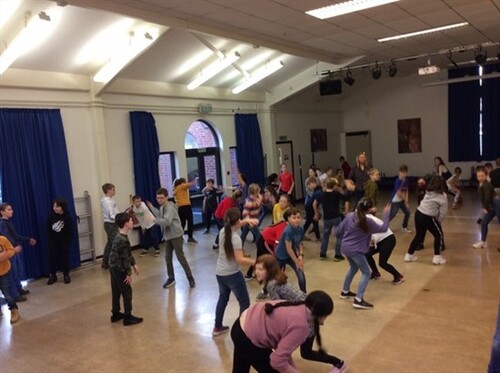
Over the last 6 weeks we have participated in a PSHE and drama programme organised by the charity CrimeStoppers. It has helped us look at our community by focusing on healthy relationships, online safety, diversity and crime so we are empowered to cope with some of the challenges we may face. We have had great fun taking part in lots of drama, discussion and made many thoughtful comments. Some of us have been filmed, while others will be performing at Westlands. We have all learnt the CrimeStoppers number where we can report things anonymously 0800 555 111.




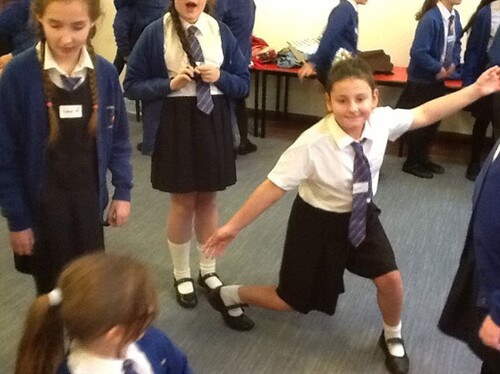
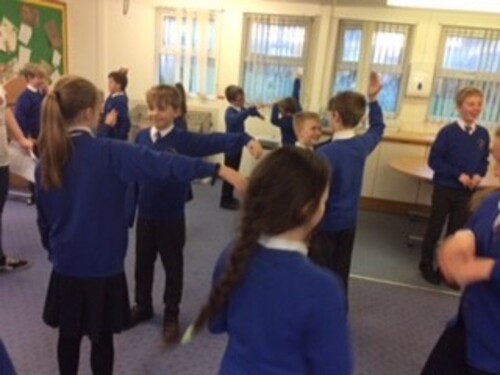
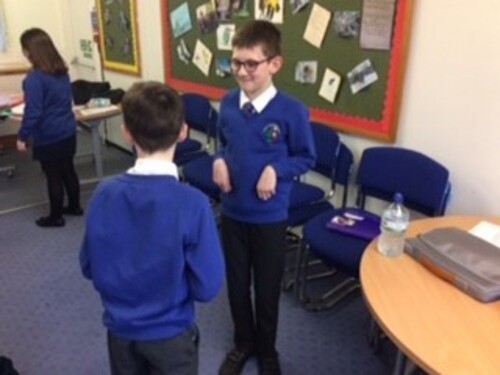
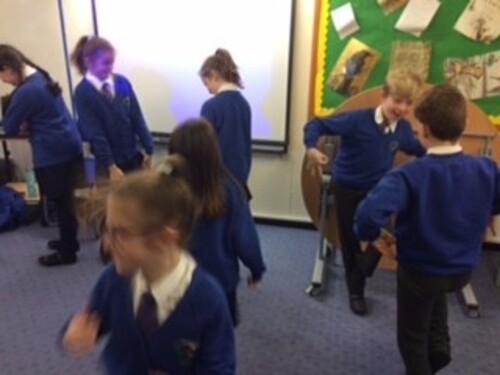
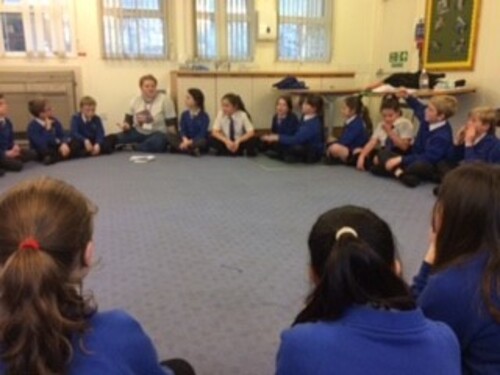
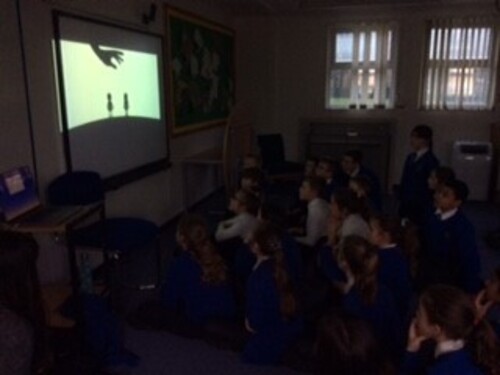
On Wednesday 20th November Class 12 enjoyed a fascinating morning with Wessex Water at Sutton Bingham Water Treatment Works and Reservoir.
When water enters the treatment works it is first filtered to remove any large impurities like sticks and leaves. Then aluminium sulphate is added and the water is stirred, so that all the dirt sticks together. The dirt can then be skimmed off and taken to the sewage treatment works, and the water is filtered through sand and activated carbon, before chemicals are added to make the water safe for drinking.
After the treatment works, Tim, our guide, escorted us over the road for a closer look at the reservoir. The reservoir was made around 70 years ago when a dam was built to stop some of the water flowing through the river. The reservoir stores water to ensure there is enough to go around in times of high demand. It is also a popular area for leisure activities such as sailing, fishing and canoeing. We really enjoyed our trip, and learnt a lot about how Wessex Water work to keep our water supply clean and plentiful.


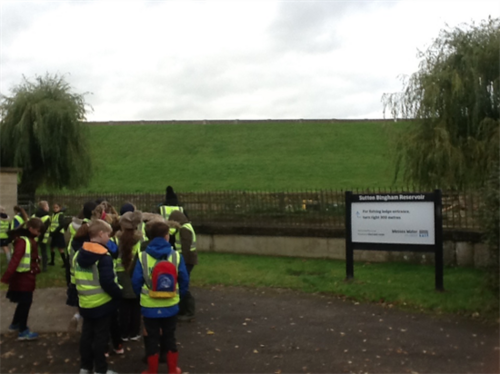
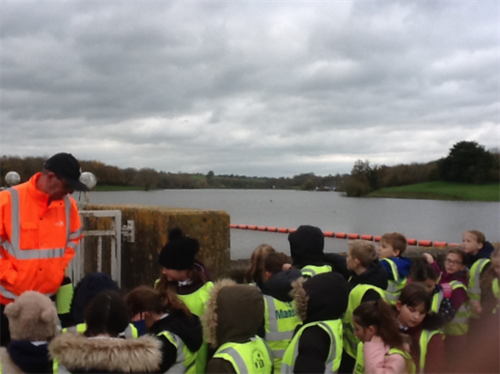
This morning we welcomed Mrs Eveleigh for our first clarinet lesson. We learnt about the different parts of the mouthpiece - who can remember which part was the ligature? We were then given a delicate reed to attach to the mouthpiece before trying to make our first sound. This was very tricky initially but with perseverance and a lot of puff, we all managed to create a sound. To finish our lesson, we even managed to play our first piece of music,‘Batman’ using just the mouthpiece.
Tonight we will bring home a letter asking for parental permission so we are able to take our clarinets home to practise, starting next week.
REMEMBER clarinets must be in school every Tuesday morning as we have our lesson at 9.00am.
A great start to learning our new instrument, Class 12!





On Tuesday we performed our class clarinet concert. We have spent the year learning the clarinet, how to read music, composition and performance skills. This culminated in us sharing some of our favourite pieces with parents on Tuesday. We have been learning some complicated, Grade 1 pieces and performed the theme tune to Wallace and Gromit, the song Giants and Skyfall. Chester & Kyra bravely played a duet they had practised in class and we all showed how much our musical skills have developed over the year. Hopefully, some children may decided to continue to learn the clarinet next year through private lessons. We’d like to say a big thank you to Mrs Bell and Mrs Eveleigh who have taught us this year. Well done Class 12.




This week some of us were lucky enough to visit Westfield Academy for a Science Day. There were four sessions throughout the day, so we learnt a little about biology, chemistry and physics. In our first session we did some taste and smell tests to study our senses, threw tennis balls at a glass screen to look at how our nervous system reacts, watched the teacher make 'elephant’s toothpaste’, mix vitamin tablets with water to make film canisters pop and use a plasma globe to make hair stand on end - and all of this was just in the first hour!! In our biology session we dissected a chicken wing to learn about the different parts bodies are made up of. For chemistry, we had to solve a crime to see which pen (and which criminal) had written a fraudulent cheque by using chromatography paper to separate inks. Finally in our physics session, we made circuits to turn on a light bulb, and then added in switches and buzzers to see how we had to change the circuits so that it still worked. We then looked at how to properly draw a circuit.
It was a fantastic day and a massive thank you to the Westfield science department for the hard work they put into the day.

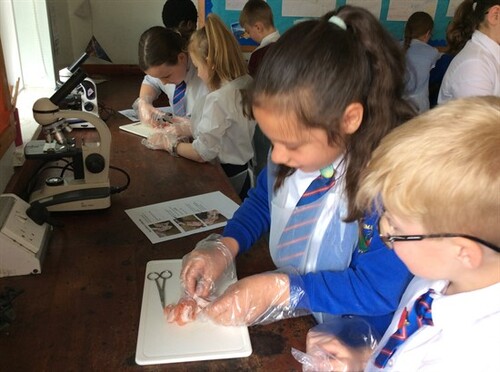
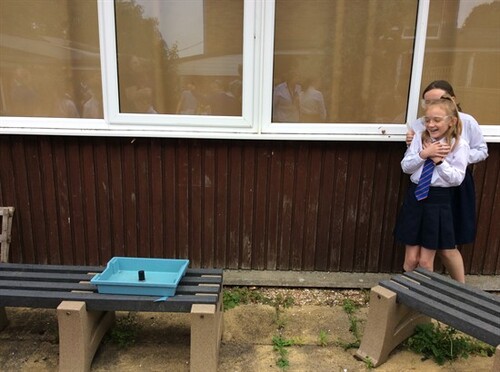
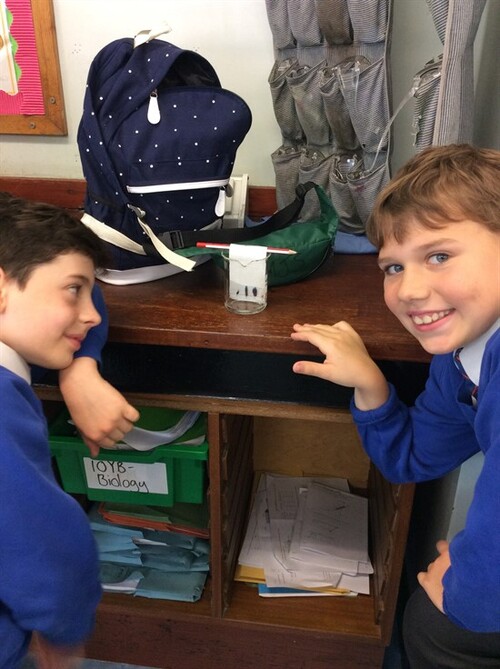
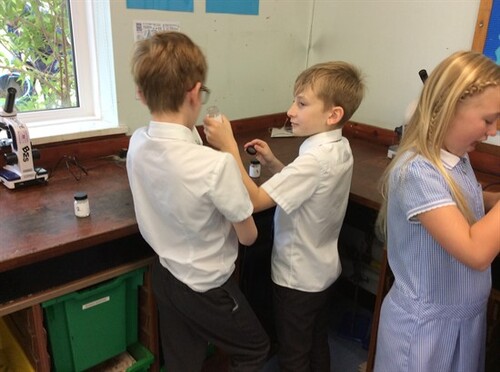
Today, as part of our geography topic on India, we worked in teams to create a vegetarian curry for our lunch. This involved peeling and chopping carrots, onions, potatoes and garlic. When we had prepared all our ingredients we cooked them in a saucepan on the hob, adding lots of spices such as chilli powder, ginger, cumin and coriander. We added tomatoes and water to our ingredients and simmered it for 25 minutes before our delicious curry was ready.
The cooks in the school kitchen kindly coked rice to accompany our meal and we layed the tables in our groups before we dished out our curry. It was delicious and we enjoyed our lunch which we followed up with a sweet brownie! A great team effort everyone - well done!





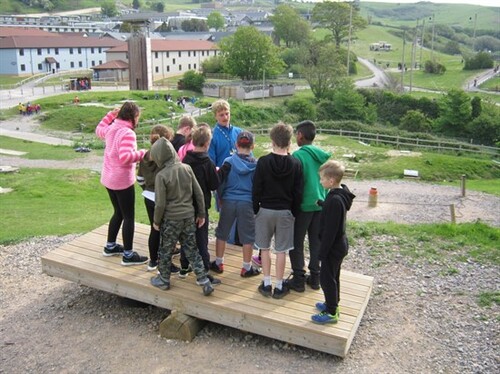
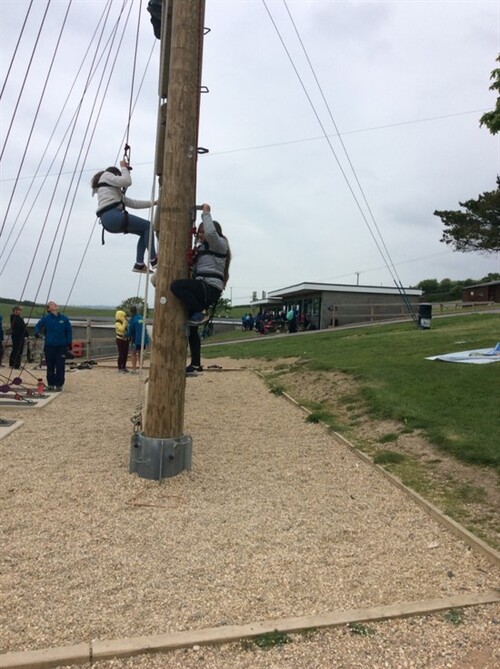
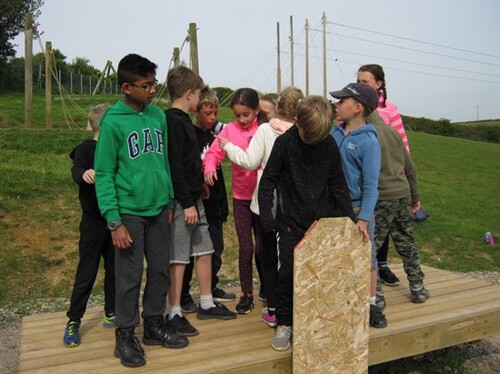
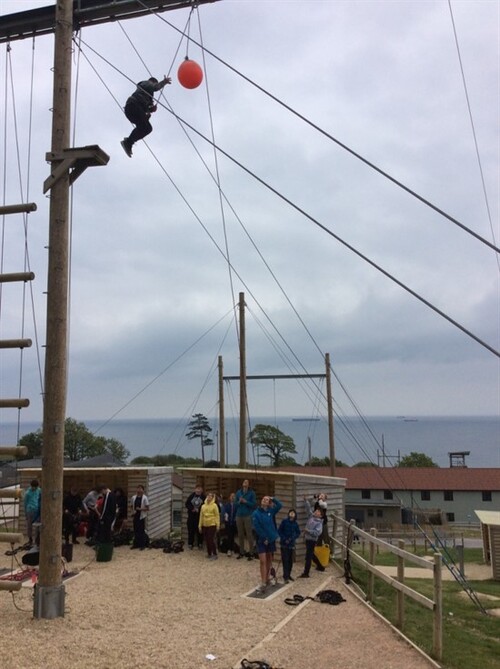
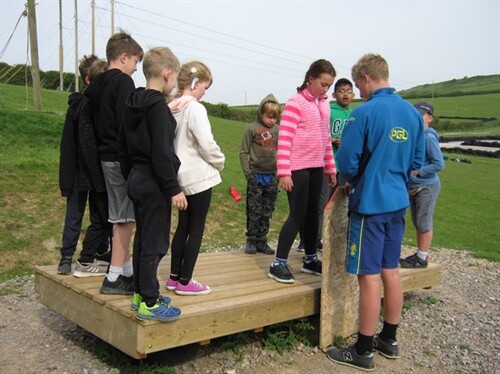
Just a few extra photos from Thursdays activites:
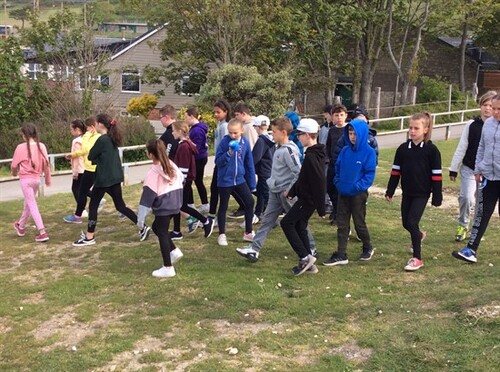
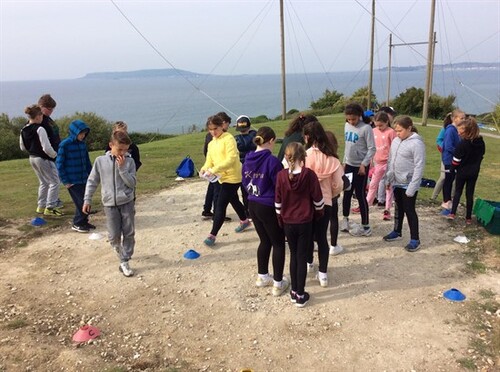
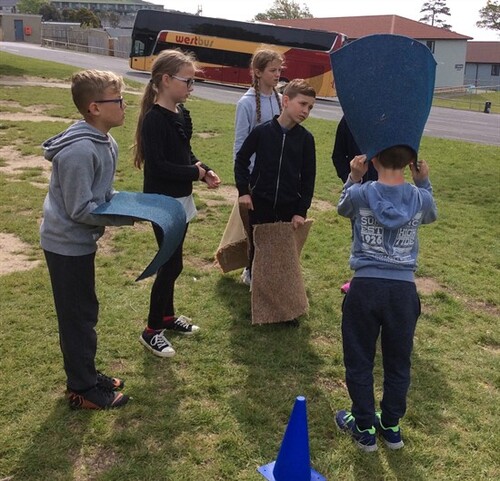

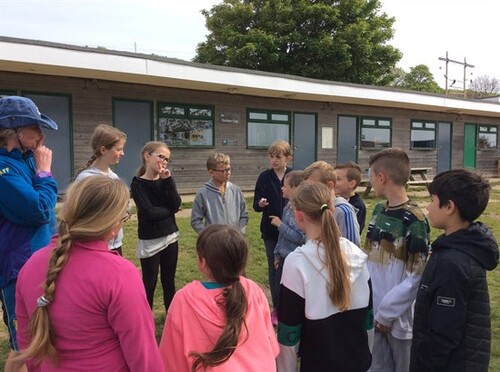
The children are all enjoying the fantastic weather and all the activities at PGL. They have had visits from Mr Hillier-Nickels and many other staff members and looking forward to their disco tomorrow night.
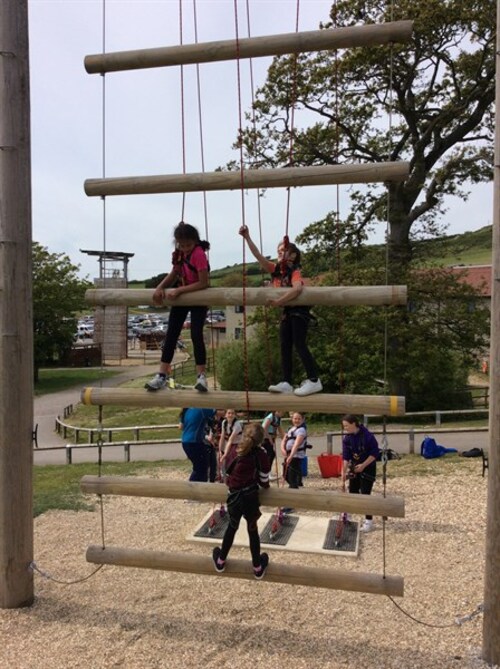
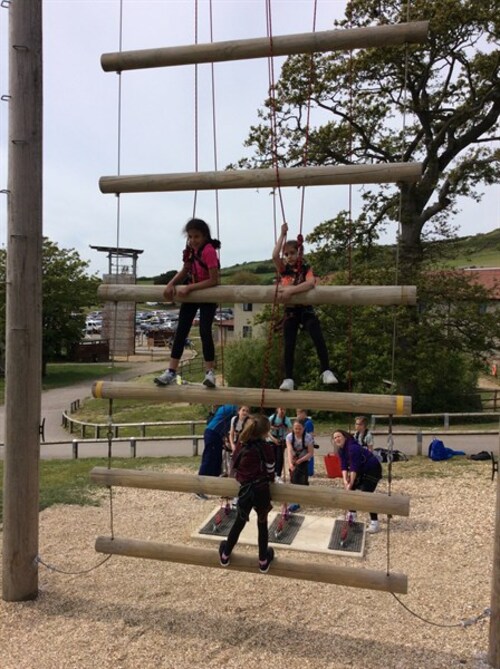
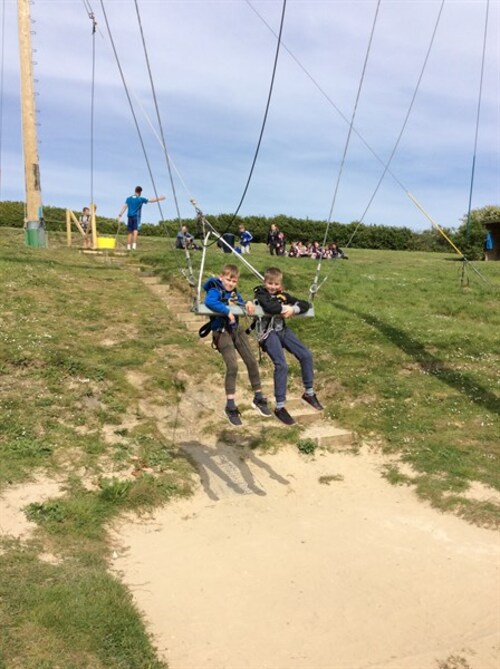
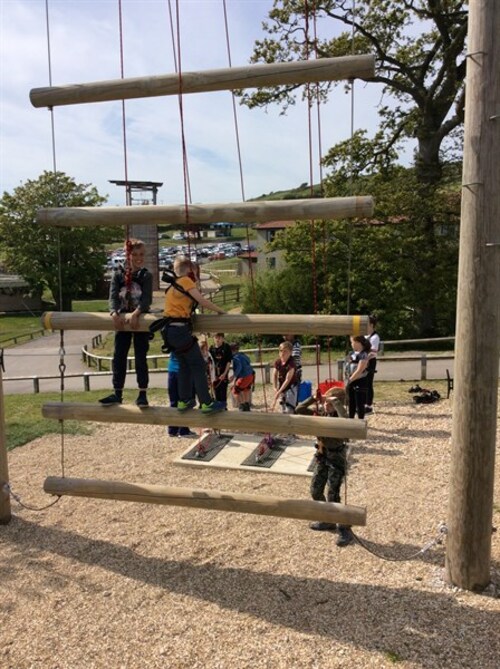
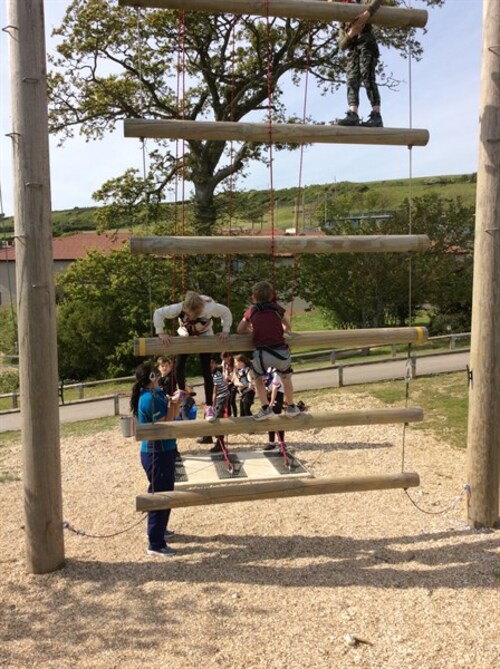
This half term, we have taken part in an engineering project in Year 5. Firstly, we looked at different inventions and how they had helped people overcome problems or made life easier. Then we had to think of an issue that affects people and design something that would help solve it. We drew and annotated our designs before writing a letter to convince a panel why our invention was a good idea and how it would work. We had lots of imaginative ideas! Tell your adult all about your design.
To finish our project we were visited by an engineer, Mr Deane, who talked to us all about engineering and some of the projects he has worked on. We looked at different aircraft and sea craft. We watched a video about engineers who have built submarines. Mr Deane showed us an experiment to demonstrate how a submarine floats and sinks in the sea. We had to use our thinking skills to overcome a few problems we encountered. We then got the opportunity to ask lots of questions. I wonder who will become the engineers of the future in our class.





Thank you very much to the Road Safety Team who came and talked to us on Monday about how to stay safe on the roads, especially when crossing. It was a good reminder of all the things we should all do when we are using the roads. We were also lucky to receive some great gifts to help us remember the messages and stay safe when we are out and about. Perhaps you could share what you learnt with your families.


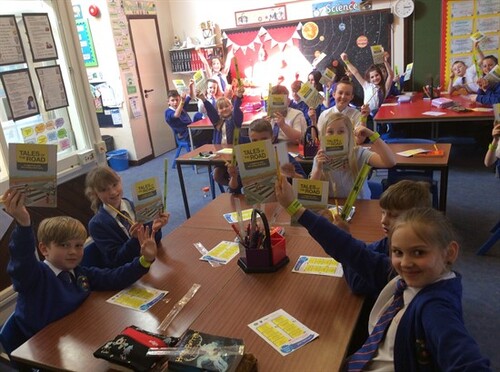
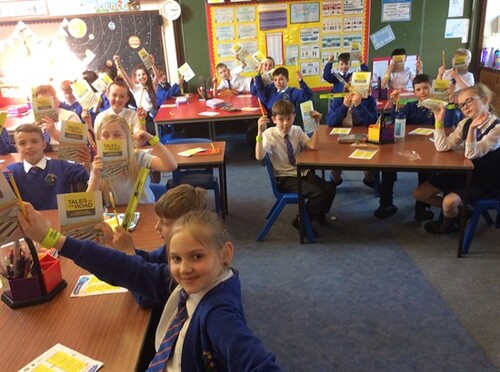
Congratulations, Anabelle!
We would like to congratulate Anabelle for coming runner up in the Yeovil Community Arts Association 500 word short story writing competition. She wrote a fantastic, creative story about the creatures that live at the bottom of the lost property bin. We were lucky enough to go to Yeovil library to support Anabelle as she received her prize. This was attended by the author Tamsin Cooke, two YTFC players and the Mayor.
Tamsin Cooke then gave a talk and shared with us her top story writing tips in a fun, interactive, action-packed way. Many of the class shared their ideas and joined in the acting as we recreated the scenes from the story we created together. We all had a great morning! Well done to all of you who entered such fantastic stories and to Anabelle for her original idea.
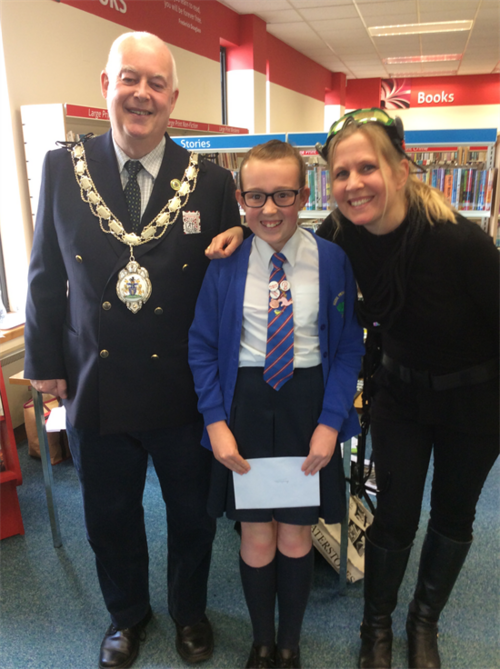

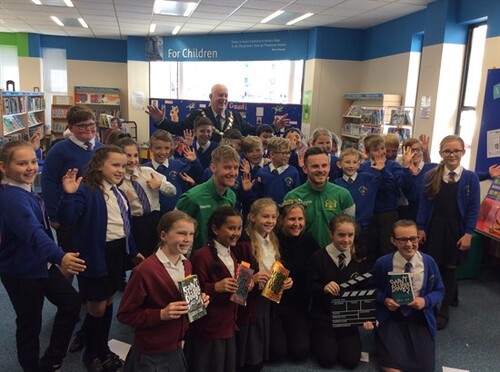
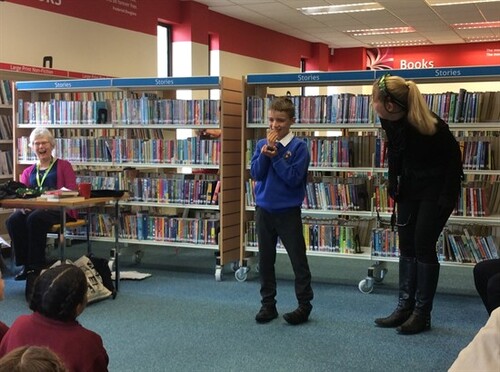
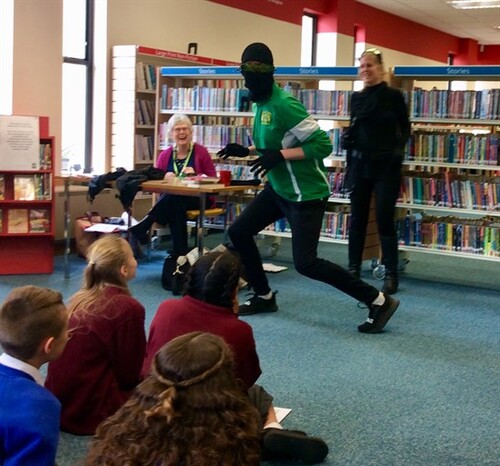
We learnt about how the Tudors often used salted foods on long voyages to help with their preservation – essential as refrigeration hadn’t yet been invented!
We used a slightly modern version of the old recipe - their biscuits didn’t use butter or milk, just water! We made sure to carefully measure all the ingredients out before mixing and rolling the dough. It’s safe to say that the salty “hard tack” biscuits were met with a mixed response, but at least we didn’t have to tap them to get the maggots out!
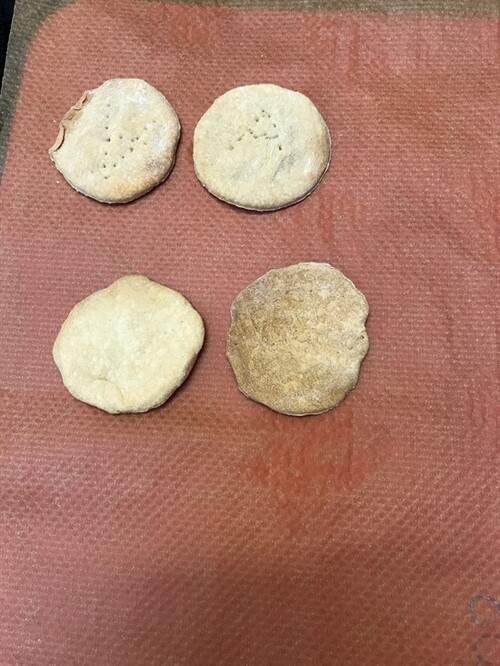
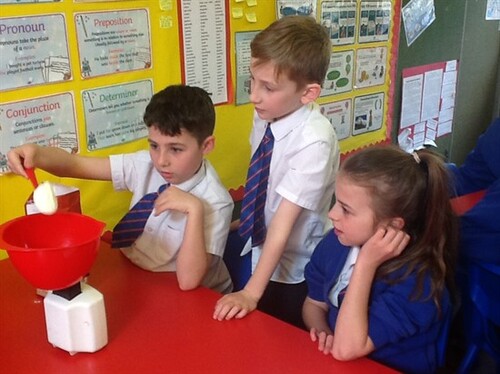
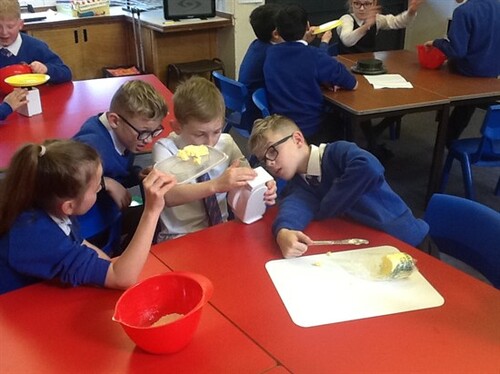
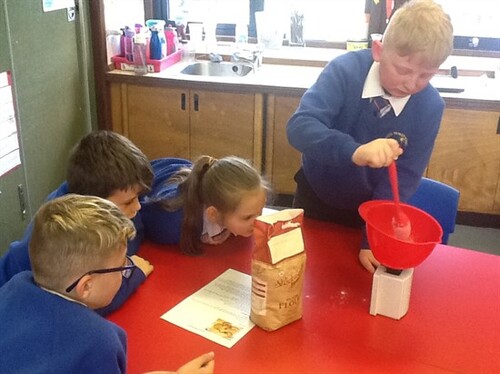
We are really excited to have received this email and want to say how proud we are of all your story writing efforts with huge congratulations going to Anabelle. Please read on...
‘The Yeovil Community Arts Association ran their children's short story competition, and we would like to thank all the pupils of Years 5 and 6 for entering such fantastic stories. Tamsin Cooke said it was the hardest task she had ever done to select the top few.
The good news is that your student Anabelle is one of our three runners-up. There should only have been two as part of the competition, but the standard was so high and the stories all so different, and each excellent for being so, that we have three runners-up.
There will a presentation with the author Tamsin Cooke who will also be giving a talk.
Thank you Huish for putting in such a superb effort. Also, congratulations to Anabelle.’
After several practises and a huge collaboration with all the children in Year 5, we brilliantly performed our version of the Highwayman poem by Alfred Noyes. It was amazing to see the fantastic reading, acting and choral performance which was arranged with lots of contributions, enthusiasm and ideas from everyone in Year 5. A huge well done to you all!





This week we celebrated book week with a focus on nature and poetry. We were lucky to have Pete the Poet join us on Thursday and teach us about performance poetry. He also helped us with our poetry writing and we explored lots of new vocabulary. We thought about the kingfisher and shared lots of ideas before writing our own poems in groups. We created some fantastic images through the power of words.
Also during the week, we have practised our performance of The Highwayman poem and have written our own poem about trees after exploring our school grounds to gain inspiration. We were surprised by how many stories we had about trees that were special or significant in our lives.
In the afternoons, we created some beautiful artwork using pastels and watercolours on the theme of nature and the book ‘The Lost Words’.
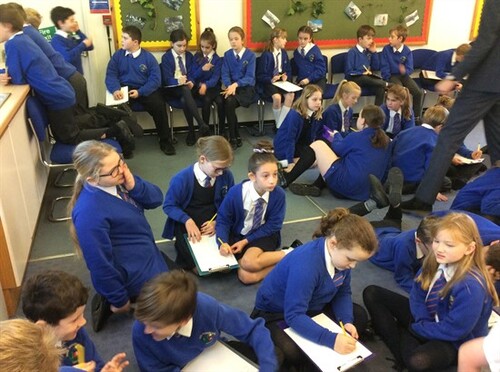
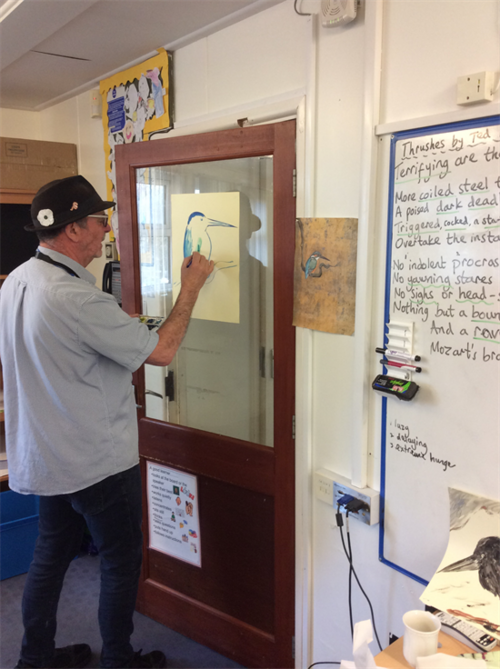
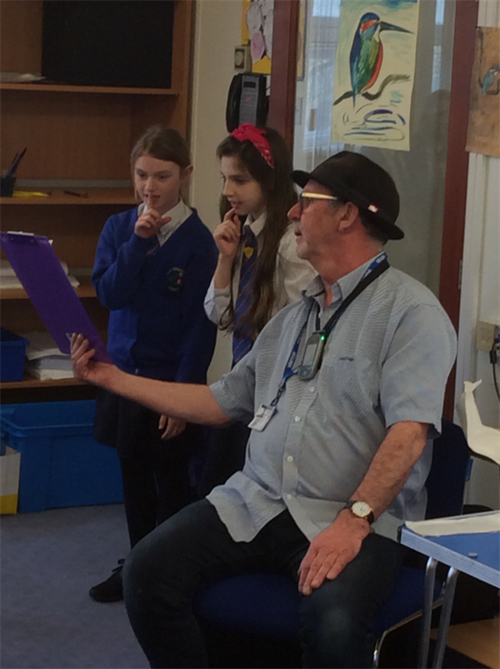
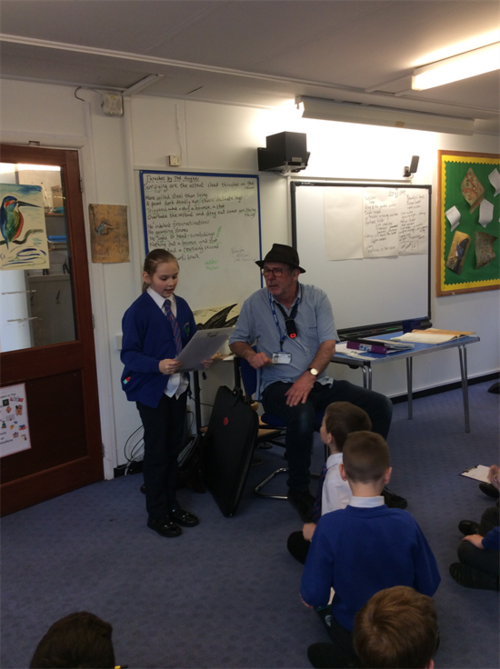
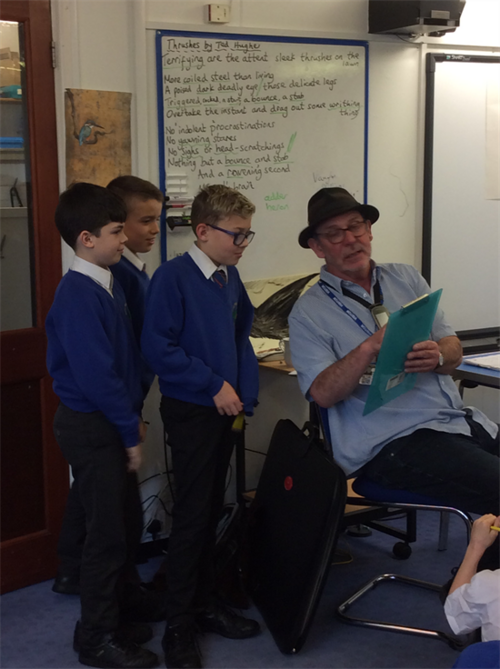
We would like to say a big thank you to all the parents & grandparents who joined us today for our clarinet concert. A huge well done to all the children who played, sang, introduced and organised the concert so brilliantly. It was incredible to see the difference from when we first started in September, where the children learnt to put their clarinets together in the right order and then tried to make a sound (or a squeak), which was very tricky. To now, when they are able to read music, understand the dynamics of a piece and have found real enjoyment in playing a variety of notes and music individually and as a group. We are enormously proud of all your achievements.
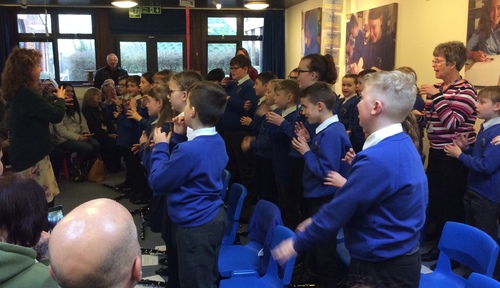
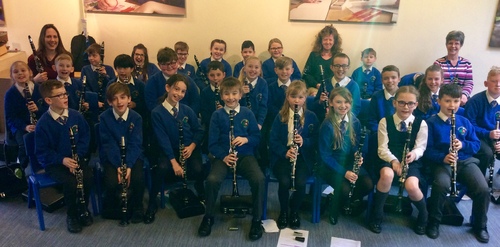
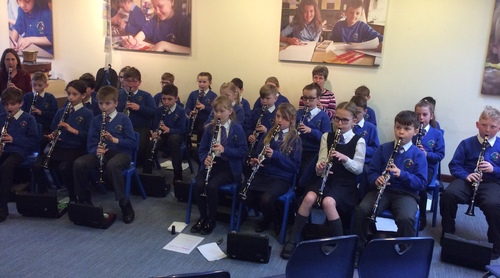
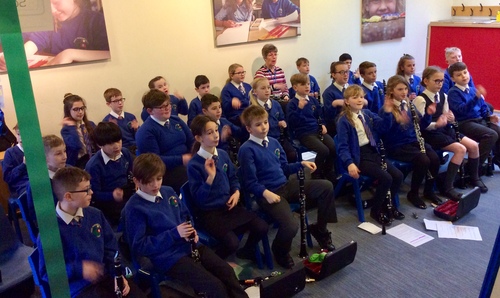
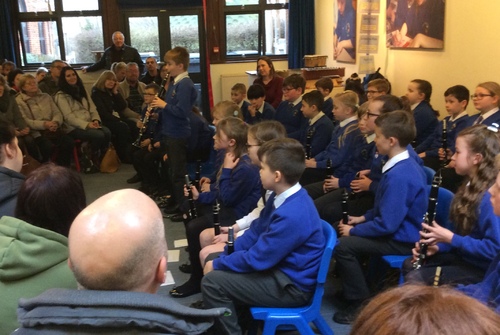
We have been looking at lots of Science this year and been finding out about and testing different materials.





We have been learning the clarinet on Tuesday morning and have made amazing progress! We are looking forward to sharing this with our family in our mid-year concert on Tuesday 12th February.


We have been on two great trips in the first term to Ninesprings and Sutton Bingham where we looked at the journey of a river and how our water is treated.
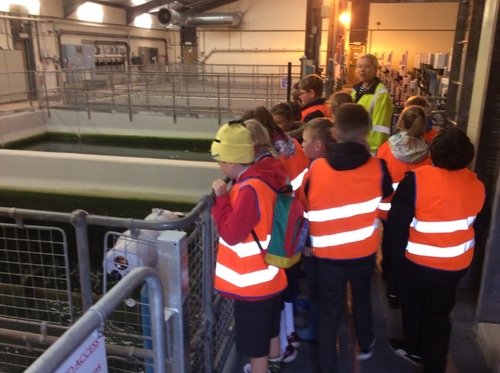
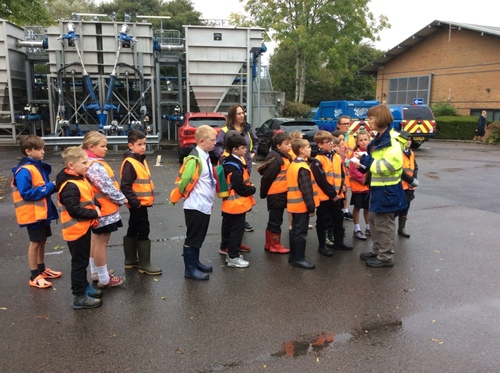


What is a factor?
Today we made arrays to discover the factors of different numbers before moving on to using our times tables to help us find all the factors of a number. We discovered that numbers with only 2 factors (1 and itself) are called prime numbers.
12
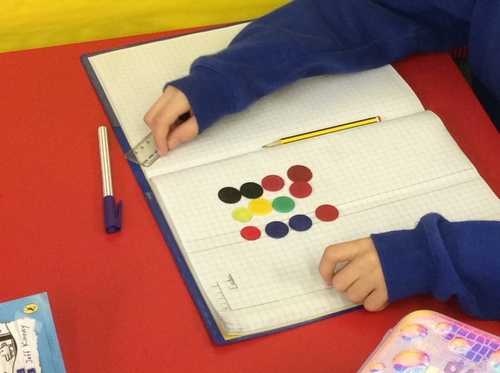
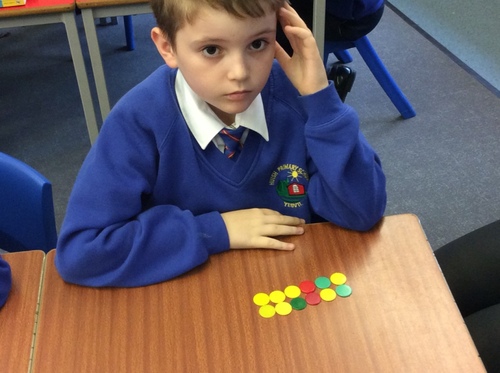
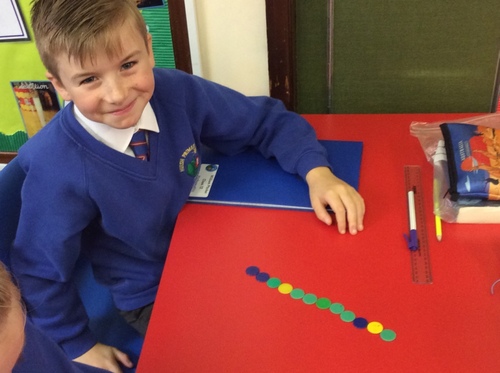
20
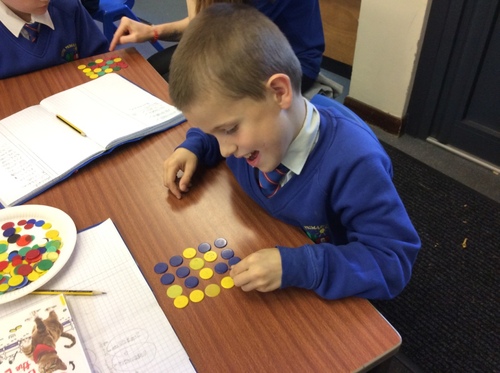
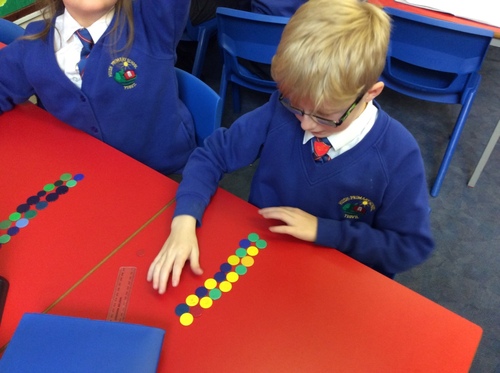
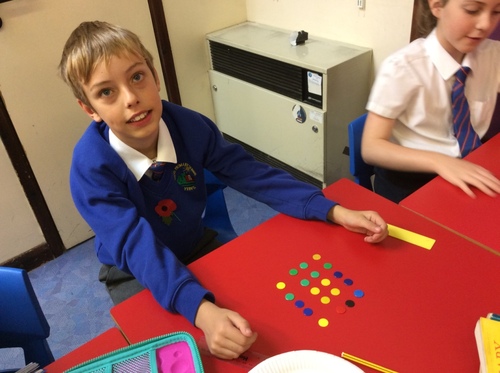
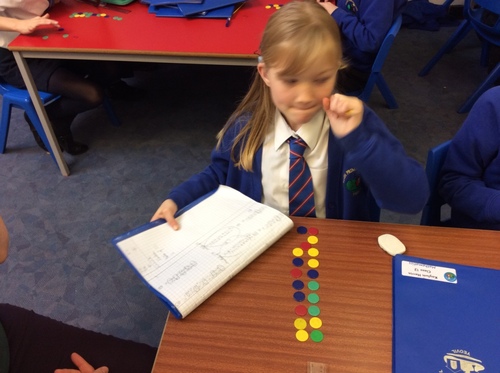
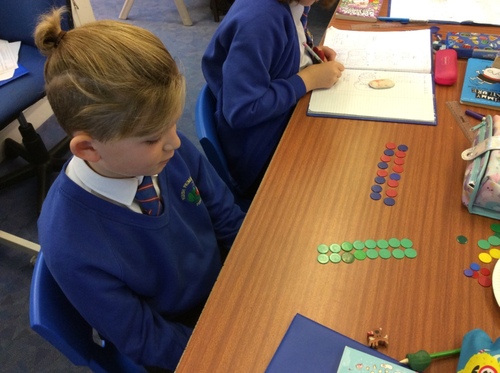
What is a multiple?
Today we looked at what a multiple is and used different sided dice to create multiples. We investigated which multiples we could make.
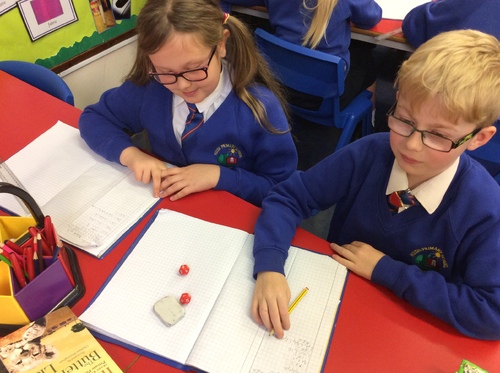
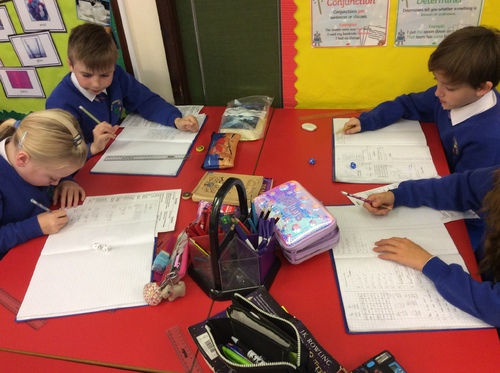
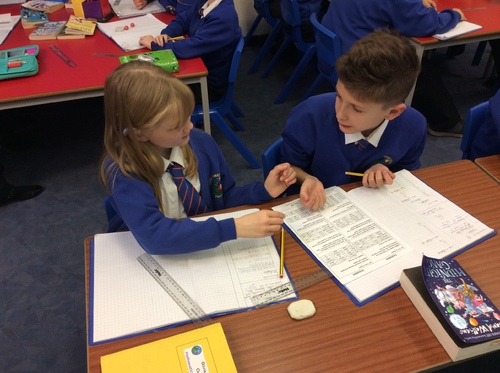
Division
We used our knowledge from Year 4 of dividing 3-digits numbers by a 1-digit number to divide up to 4-digit numbers by a 1-digit number.
Using place value counters, we partitioned the number and then grouped it to understanding the short division method.
We transferred this to the written short division method.
